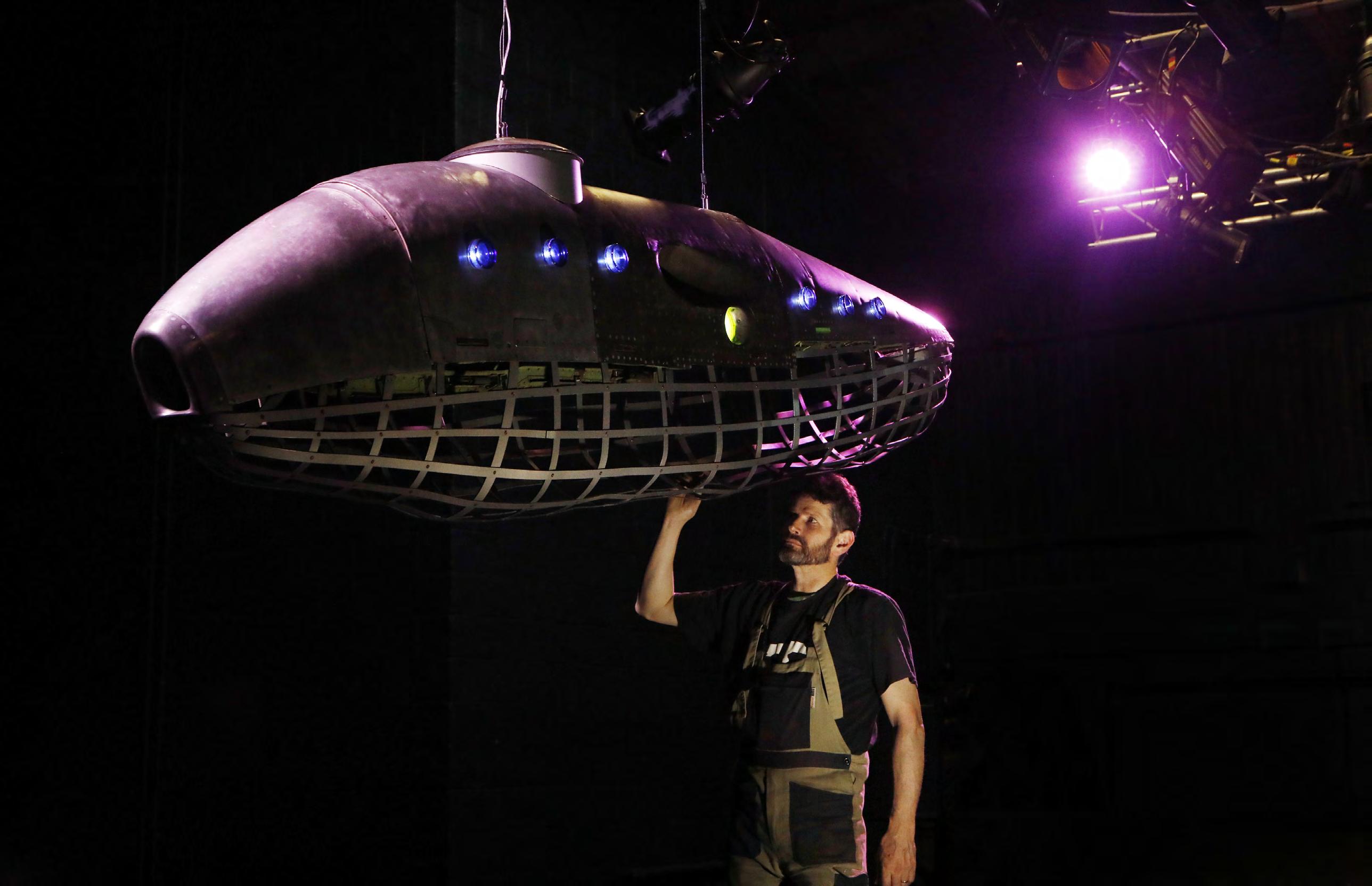Design & Cra s Council Ireland
Annual Report and Financial Statements





















Design & Crafts Council Ireland
Annual Report and Financial Statements 2024





Design & Cra s Council Ireland
Annual Report and Financial Statements





















Design & Crafts Council Ireland
Annual Report and Financial Statements 2024




Design & Crafts Council Ireland (DCCI) is the national agency for craft and design in Ireland. We support designers and makers in developing their businesses in a sustainable way, and advocate for the societal benefits of craft and design. DCCI’s activities are funded by the Department of Enterprise, Tourism and Employment via Enterprise Ireland.
DCCI provides practical supports to emerging and established designers and craftspeople through a range of programmes and service. As of 31 December 2024, DCCI has 65 member organisations and 3,854 registered client enterprises.
Our Team
DCCI’s Executive Team is responsible and accountable for the leadership and day-to-day management and operation of the organisation. The team acts within the approved policies of the DCCI Board of Directors (the Board) and is consistent with the priorities of its clients.
The Executive Team comprises of the CEO and heads of department. The heads of department report directly to the CEO and provide regular updates to the DCCI Board on the work of the organisation. The CEO reports to the DCCI Chair and Board.
DCCI’s office and the DCCI National Design & Craft Gallery are located in Castle Yard, Kilkenny, with twenty four full-time employees. The centre of excellence is located in Sessions House, Thomastown, Kilkenny (Jewellery & Goldsmithing).
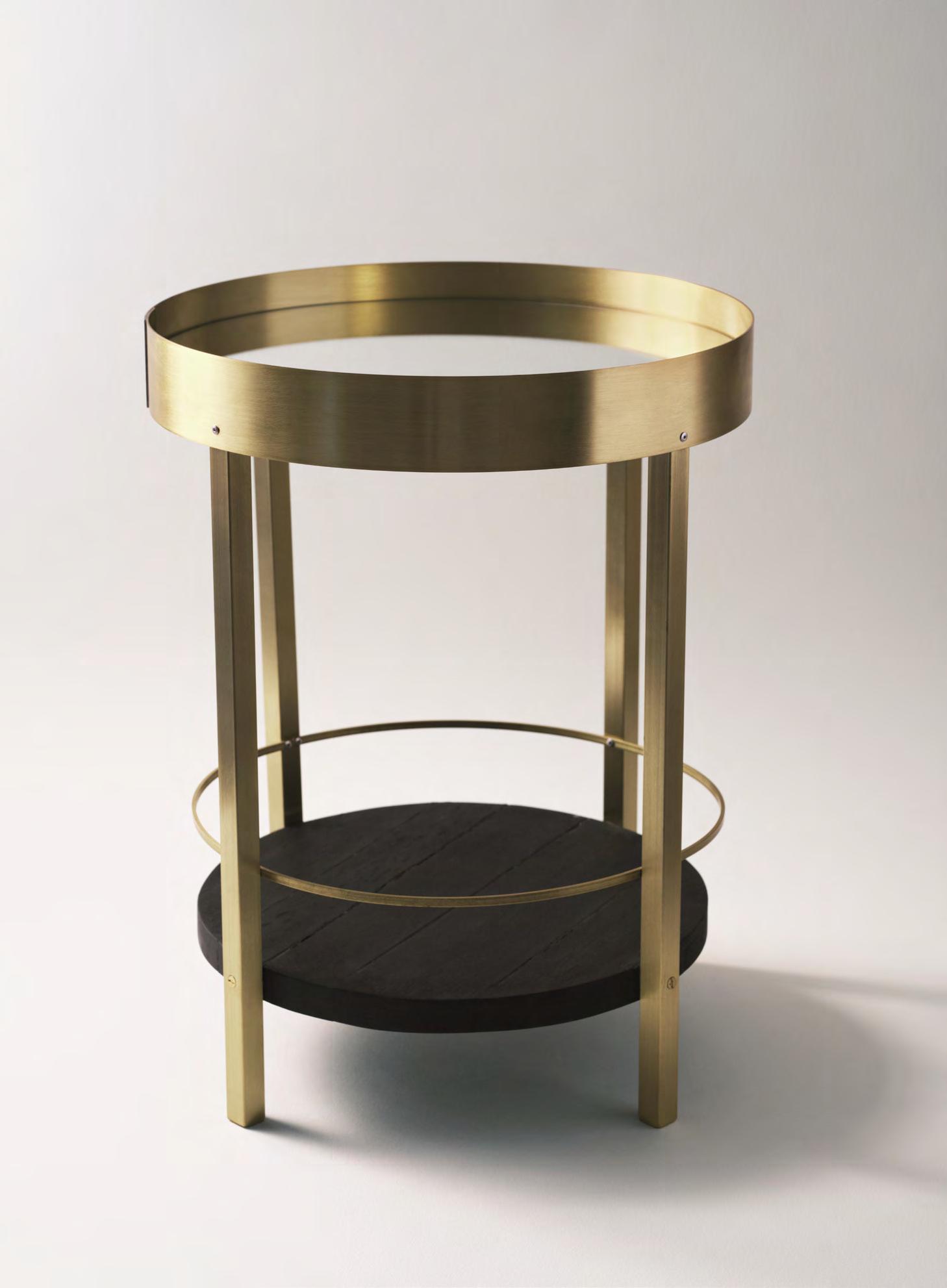
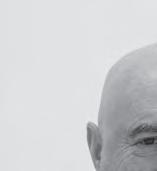


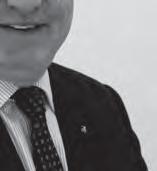

Peter Hynes Chair, DCCI
At the heart of Ireland’s rich cultural identity lies an enduring tradition of Design and Craftsmanship – a tradition which continues to evolve, inspiring and shaping our collective creative future. Design & Crafts Council Ireland (DCCI) plays a pivotal role in championing this vital sector, ensuring that Irish makers, designers, and craftspeople are supported, empowered and celebrated on national and international stages.
Our mission in DCCI is to foster growth, facilitate innovation, and create opportunities for Irish Designers and Makers to flourish and prosper. We strive to fulfil this mission by nurturing emerging talent, promoting excellence in design and craft, advocating for sustainable practices, and facilitating access to domestic and global markets.
Through strategic partnerships and curated programmes, DCCI continues to position Ireland as a leader in the global design and craft landscape, while preserving the unique cultural heritage which defines Irish Craftsmanship and Brand Ireland.
DCCI assists our design and craft sector in navigating change, embracing new challenges and generating new opportunities. The 2022–2026 strategy is our key guide to building an ecosystem which is innovative, sustainable, and internationally connected for the benefit of the entire sector.
The past year, the third of the five-year strategy, has been a powerful testament to the resilience, creativity, and innovation of our design and craft community. Despite a rapidly changing economic landscape and continuing external pressures, Irish designers and craftspeople have continued to adapt, innovate with new products, and excel in areas including sustainability. They have demonstrated enormous commitment to
their craft by embracing new techniques, engaging with digital platforms, and exploring sustainable practices to meet changing demands and expectations.
From craftspeople preserving traditional techniques to contemporary designers pushing the boundaries of form and function, the Irish design and craft sector continues to thrive through diversity and adaptability. It continues to deliver in aesthetic and technical terms and to provide important perspectives, context and contributions socially, culturally, and economically. Its resilience is testament to individual talent and to the collective strength of a community which values collaboration, creativity, and cultural identity.
This spirit has shaped the success of our key programmes in 2024, each one reflecting the dedication and ability of designers and craftspeople. Their work continues to inspire, not only within Ireland but increasingly internationally, making Irish design and craft synonymous with authenticity, innovation, and excellence.
As we reflect on these achievements, we are deeply proud of the creativity which defines our sector and are committed to building on our current momentum in the years ahead.
At the core of the DCCI vision for the future is our commitment to the 2022 – 2026 strategic objectives, which focus on four key pillars: building capability and capacity to deliver growth; championing design; leading and demonstrating sustainability and delivering a future proof Council. These objectives have shaped our approach and underpinned every programme, initiative, and partnership undertaken throughout 2024.
In 2024, this focus was reflected across our programmes which provided platforms for makers to access new markets, develop entrepreneurial skills, and expand their business networks. Showcase 2024, Bord Bia Bloom and Gifted, all served as significant commercial events, connecting makers with buyers and encouraging the growth of local businesses. Sustainability remains a guiding principle across all our programmes and practices, and we are committed to empowering makers with the knowledge, resources, and platforms to adopt sustainable approaches in their design and production processes.
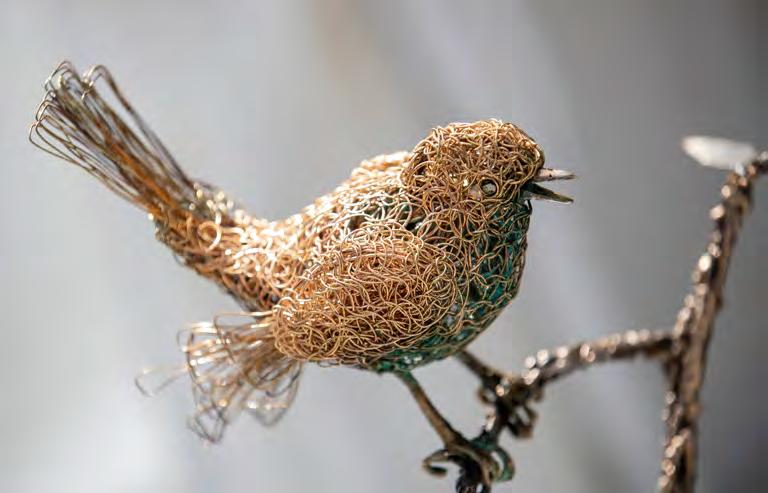
The Made Local campaign, which launched in 2020, demonstrated the value of supporting local economies while helping to drive sustainable economic growth in communities nationwide. One of the highlights of 2024 was the opening of the DCCI Academy Jewellery & Goldsmithing School in September, welcoming an initial cohort of sixteen students. This initiative is vital to our mission and will strengthen Ireland’s position as a leader in craft and design education, foster a new generation of highly skilled artisans, and ensure the long-term sustainability and global competitiveness of the Irish jewellery sector.
Championing Irish design and craft excellence on the world stage is a cornerstone of our strategy. In 2024, we advanced this objective by securing prominent international showcases and strengthening Ireland’s creative reputation. Through Collect 2024, which celebrated twenty years of the international fair at Somerset House, London, DCCI positioned Irish makers in premium international markets, unlocking new growth opportunities and broadening global reach.
The DCCI role as institutional partner to the Michelangelo Foundation in the Homo Faber programme, and to the EU Young Craft Booster programme has been instrumental in growing the global craft economy. Through the Fellowship programme and participation of Irish makers in the Homo Faber Biennial exhibition in Venice, the calibre of Irish crafts has been demonstrated to a vast international audience.
Irish Design Week brought global leaders in design including Colm Dillane, fashion designer of KidSuper; Mariam Issoufou, Architect and Sir David King to the Royal Academy of Irish Music (RAIM) in Dublin. The week served as a dynamic platform, celebrating, promoting and marketing how Design is a living, breathing part of everything we do. Forty-four events took place across various locations nationally. Disciplines included architecture, fashion, graphic design, climate design, and gaming. Discussions covered the importance of design diplomacy and creating a space for Irish design and making internationally.
A key priority for DCCI throughout 2024 has been the cultivation of talent and the promotion of excellence in every facet of design and craft.
Innovation is the engine of progress, and in 2024 DCCI continued to nurture an ecosystem where creative experimentation and new thinking can thrive.
Through the Future Makers 2024 programme, which celebrated fifteen years, we supported the emerging talents who are redefining the future of design and craft with innovative ideas, materials, and processes. The Irish Business Design Challenge was back for another year and showcased how innovation can create and sustain successful business. DCCI also invested in educational short courses and mentoring initiatives, ensuring that designers and craftspeople have the tools and the skills to innovate, while staying rooted in authenticity and heritage.
A key priority for DCCI throughout 2024 has been the cultivation of talent and the promotion of excellence in every facet of design and craft. We have maintained a strong emphasis on promoting excellence by ensuring that Irish makers have opportunities to engage with industry leaders, international buyers, and new audiences.
In all of these endeavours, DCCI remains focused on creating opportunities for sustainable growth, cultivating excellence, and positioning Ireland as a hub of creative innovation. By aligning our initiatives with the 2022–2026 strategy, we support the present success of our makers and build a strong, sustainable foundation for the future.
The programmes and initiatives undertaken by DCCI in 2024 have been pivotal in advancing
the objectives outlined in our 2022–2026 strategy. Each programme was carefully designed and executed to contribute to the sector’s growth, enhance global visibility, foster sustainability, and champion innovation. As we reflect on the year, it is clear that our collective achievements have not only strengthened Ireland’s design and craft sector but have also laid the foundations for future resilience and success.
The partnerships which we continue to develop enhance the effectiveness of each programme and reinforce the value of collective action in promoting the growth, sustainability, and global reach of Ireland’s design and craft sector.
A Year of Collective Achievement 2024 has demonstrated that when creativity is supported by strategic thinking and collaborative effort, extraordinary outcomes are possible.
We are proud of the progress made in advancing the 2022–2026 strategy and, as we look to the future, we remain committed to building on these successes in a sustainable way to ensure that Ireland is recognised as a location of excellence for design and craftsmanship.
Peter Hynes B Arch FRIAI Chair, Design & Crafts Council Ireland
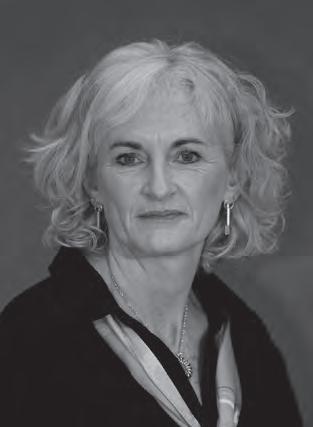
Mary Blanchfield Chief Executive Officer, DCCI
As we reflect on 2024, Design & Crafts Council Ireland (DCCI) takes pride in the impactful programmes and initiatives that have enriched Ireland’s design and craft landscape. Our commitment to fostering creativity, innovation, and sustainability has been unwavering, and this year stands as a testament to our collective achievements.
In January, Showcase — Ireland’s Creative Expo — returned to the RDS, welcoming thousands of international and domestic buyers eager to engage with Ireland’s finest designers and makers. This year’s event highlighted the resilience and ability of our design and craft sector, featuring over 300 exhibitors across diverse disciplines, from textiles and ceramics to jewellery and furniture. Sales from Showcase reached €26.3 million, a fantastic step up from the previous year.
DCCI was invited to showcase a representation of Irish makers at Collect 2024 in London, celebrating its twentieth anniversary, the leading international fair for contemporary craft and design. Ireland’s presence at this prestigious event highlighted the excellence of our craftspeople on a global stage, celebrating the innovation, technique, and cultural richness embedded in contemporary Irish craft.
Throughout the year, we were delighted to see a number of exhibitions come to the National Design & Craft Gallery. The Irish Woodturners Guild presented the Turning Turns 40 exhibition, a presentation of inspiration that demonstrated the versatility and breadth of possibility that draws so many people to craft — which Taoiseach Micheál Martin opened; and the Cork Craft & Design exhibition, a truly joyous and breathtaking display of a myriad crafts and beautiful pieces that expressed the energy and solidarity of this vibrant group of makers.
Educational and Professional Development for the Future
Education remains a cornerstone of our mission. DCCI Academy (DCCIA) offered a range of courses, from the foundation programme to the growth programme, and an introduction to finance. Notably, we commenced the Bachelor of Arts (Honours) in Jewellery and Goldsmithing in Thomastown, Co. Kilkenny, nurturing the next generation of skilled artisans.
We launched the first year of the Design and Craft Accelerator programme in which five businesses took part in a seven month programme with our partners in Portal, Trinity College Dublin. Those companies who took part included, Kopper Kreation; Badly Made Books; Urban Aran; Outcrop and Sully and Juno.
It was a great honour to once again be part of The Michaelangelo Foundation Homo Faber Fellowship where four duos took part in an eight month fellowship programme which resulted in an exhibition in the Biennale in Venice Italy in September.
Awards were in full swing throughout 2024, when we kicked off the year with the David Shaw Smith Award, awarded to master craftsperson Eric Philips by the late David ShawSmith’s son, Daniel Shaw-Smith. Our Future Makers Awards continued to support emerging talent and students, offering a platform for the next generation of makers and designers.
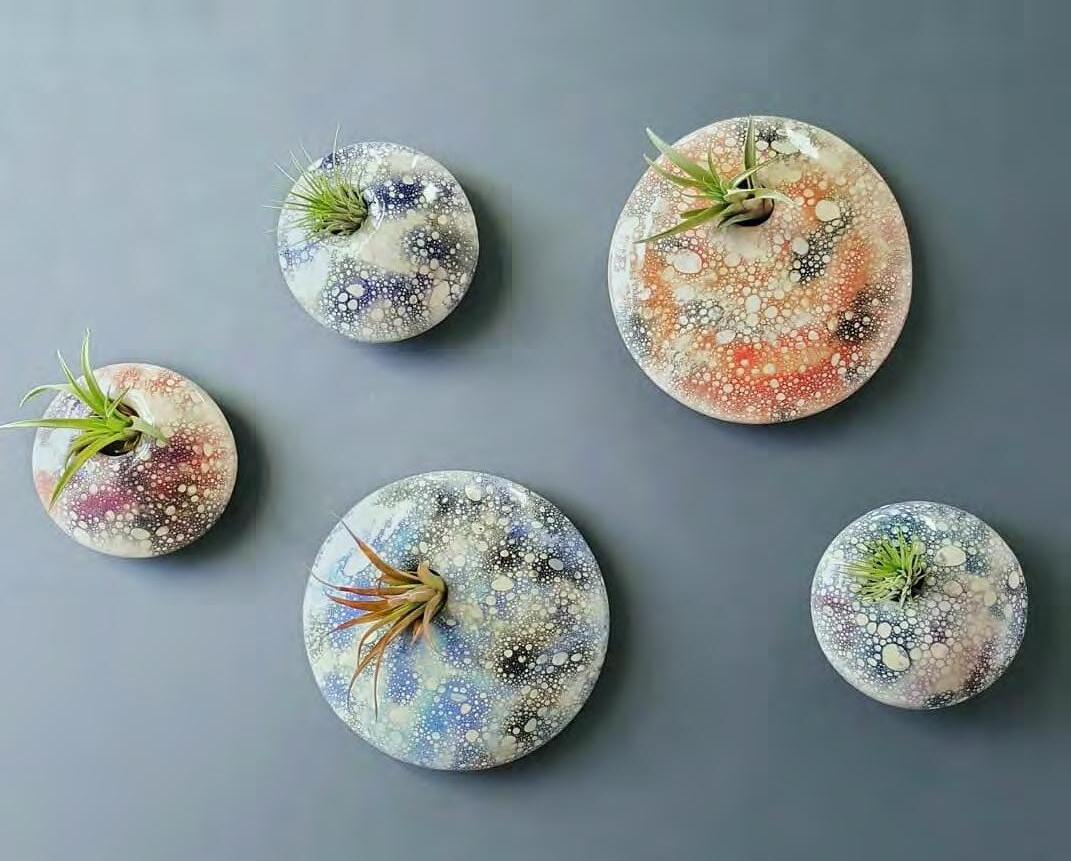
Twenty-four outstanding individuals were recognised at the 15th Future Makers awards ceremony, including mixed media constructor Paola di Legge as the Overall Emerging Maker Winner and furniture maker Diane Best as the Overall Student Winner. Their innovative work epitomises the vibrant future of Irish craft and design. And finally, in collaboration with the Royal Dublin Society, we awarded the RDS Branchardière Lace Bursary to Olwen Bourke. Her innovative approach to contemporary lace-making demonstrates the fusion of tradition and modernity, ensuring the preservation and evolution of this intricate craft. A huge congratulations to each and all the winners for all their hard work.
Made Local, Made to Last: Annual highlights
At Bord Bia Bloom 2024, DCCI proudly showcased some of Ireland’s most talented craftspeople at the DCCI Irish Craft Village. Through live demonstrations and interactive experiences, visitors engaged with skilled makers, witnessing first-hand the artistry behind handcrafted ceramics, woodwork, lace making and textiles. This platform not only celebrated Irish design
excellence but also reinforced the connection between craft, sustainability, and nature.
We held our very first Made Local pop-up market in the grounds of Kilkenny’s Medieval Mile Museum in August which was made possible with the support of partners such as Kilkenny Civic Trust, Kilkenny Local Enterprise Office (LEO), and Kilkenny County Council.
We were delighted to announce our new Brand Ambassador for the Made Local campaign in October as four-time Paralympian gold medallist, Ellen Keane. The Made Local campaign seeks to raise awareness of locally hand crafted, high quality products. It’s great to see the enormous commitment from craftspeople involved in the Made Local campaign to sourcing the very best quality to create products that are made to last.
In December, we proudly participated in Gifted — The Contemporary Craft & Design Fair at the RDS, showcasing 60 Made Local makers. This initiative provided a platform for makers to present their handcrafted creations, reinforcing
We will continue to build on our collective success and bring even more success to the national design and craft sector.
our commitment to promoting Irish-made crafts and supporting local economies.
‘Imagination for Opportunity’ throughout Irish Design Week 2024
In November, we convened Irish Design Week 2024, centred around the theme ‘Imagination for Opportunity.’ This week-long celebration featured workshops, exhibitions, talks and conferences nationwide, and explored how design can address contemporary challenges. Highlights included keynote conversations with esteemed figures in the Royal Irish Academy of Music (RIAM), such as architects Mariam Issoufou and Professor Lesley Lokko OBE, fashion designers Colm Dillane and Natalie B. Coleman, and environmental advocate Sir David King. These events underscored the pivotal role of design in shaping a sustainable and inclusive future.
Future proofing of the Council
These initiatives, among others, reflect DCCI’s dedication to nurturing Ireland’s design and craft sectors. We launched the redesigned and developed CRM platform in September and in particular, the Community Portal in beta, an important advancement in future-proofing the organisation and supporting the community. We welcomed our new Head of Craft & Education, Dr. Isha Tyagi as well as a new Head of Commercial, Emma Dowling, which is a new department at the Council. We also thank the staff who left us in 2024 but contributed to the ongoing growth of DCCI.
Finally, we would like to thank all those who supported us throughout the year. To the government, Minister Peter Burke TD, Department of Enterprise, Tourism and Employment and Simon Coveney TD, former Minister for Enterprise, Trade & Employment; Dara Calleary TD, Minister of State at the Department of Enterprise, Trade & Employment with special
responsibility for Trade Promotion and Digital Transformation; and Neale Richmond TD, former Minister of State at the Department of Enterprise Trade & Employment with special responsibility for Employment Affairs and Retail Business; and former Minister Heather Humphreys TD and the team at the Department of Social Protection and Rural and Community Development and the team at the Department of Foreign Affairs. To Leo Clancy, former CEO, Enterprise Ireland; Michael Carey, former Chair, Enterprise Ireland and their team, as well as all our colleagues across the Local Enterprise Offices. In addition we are thankful to all our strategic partners we have worked with throughout 2024 including, Atlantic Technological University (ATU); Portal at Trinity College Dublin Portal; TUD; OCO Global and The Creative Futures Academy; Kilkenny Civic Trust; Kilkenny Local Enterprise Office (LEO); Kilkenny County Council; The RDS and The Michaelangelo Foundation. To all the teams we have worked closely with over the past year in Craft NI; Bord Bia; the team at Gifted; Event Pro; Aer Rianta International; Cork Airport. It’s been great to work so closely and collaboratively and we look forward to continuing to strengthen our relationships into the future.
I would like to thank the DCCI Board members as well as the team at DCCI for the hard work and dedication they continue to provide year on year as well as all those who have supported me in the interim CEO position since I took it up in September 2024.
Finally, as we look ahead, we remain committed to supporting our vibrant community of makers and designers, fostering innovation, and celebrating the rich tapestry of Irish craftsmanship. We thank you the makers and our Guilds, Associations, Networks, and Societies (GANS). We will continue to build on our collective success and bring even more success to the national design and craft sector.
Warm regards, Mary Blanchfield
Interim CEO, Design & Crafts Council Ireland
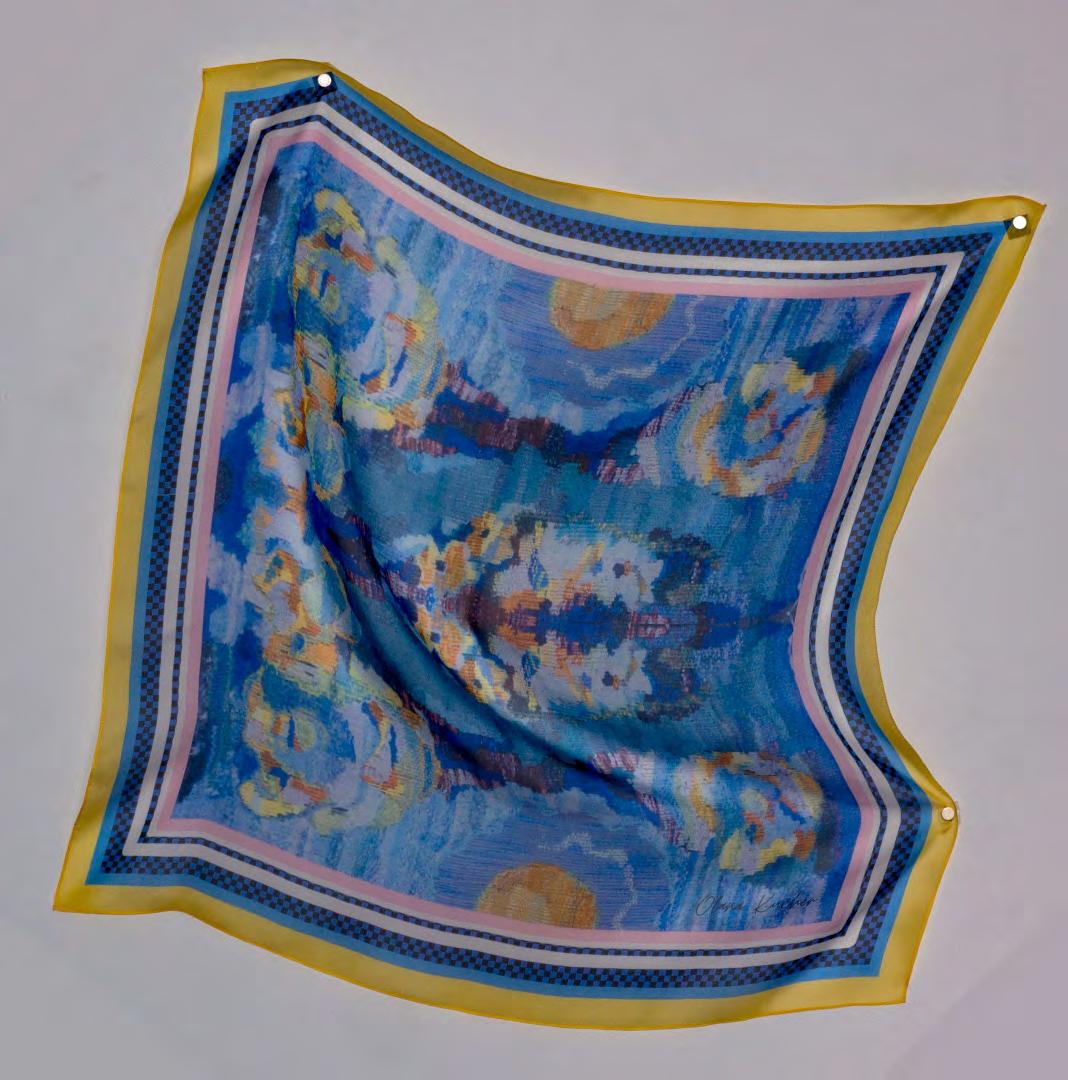
By 2030, the design and craft sector in Ireland will have increased its contribution to Ireland economically, socially and culturally.
As the national agency for design and craft in Ireland, our mission is to support designers and makers to develop their businesses in a sustainable way, and to advocate for the societal benefits of design and crafts.
2024 marks year three of the strategic plan developed with KPMG. The Council’s vision, mission and values feed into the objectives that are assigned across strategic pillars – the main areas of focus for the Design & Crafts Council Ireland in the coming years. The strategic plan includes four key pillars:
1. Building capability and capacity to deliver resilient growth
Targeting capacity growth in design and crafts to drive commercial success across Ireland. Building capability across our client base, who are at different points of scale and ambition.
Objectives:
— Raise the design and craft sector’s capability and capacity
— Preserve heritage and share best practices through collaboration across the sectors
— Build resilient growth with active and relevant mentoring for clients
— Clearly define partnerships with Enterprise Ireland and Local Enterprise Offices
2. Championing design across Ireland
Driving better outcomes for Ireland and growing economic output by championing design thinking in the wider enterprise base as well as public programme design.
Objectives:
— Increase awareness of the benefits of problem solving through design thinking in the public and private sectors
— Grow participation of the design sector with the Council
— Display ownership for the design agenda in Ireland with an emphasis on delivering and communicating economic returns, and shaping future policy through the application of broad design innovation
— Target meaningful impact, putting the designer’s success at the core of decision making under this pillar
3. Leading and demonstrating sustainability
Articulating design and crafts as solutions through clear examples. Craft embodies sustainability, and design thinking is part of the solution.
Objectives:
— Advocate for design thinking as a key element for solving sustainability issues in the public and private sectors
— Market craft skills to consumers as sustainable practices, and craft output as an example of the circular economy, quality and buying local – to boost commercial demand
— Help members and clients adopt innovative sustainable practices, such as carbon footprinting and origin assurance, as well as zero-waste policies and best practice in green marketing
4. Common Enabler: Delivering a future proof Council The Common Enabler focuses on meeting the required elements of the Council’s infrastructure, resourcing and governance to deliver the full potential across the main pillars.
Objectives:
— Develop staff through training and capabilities enhancement, as well as completing appropriate recruitment oriented towards successful strategy delivery and building momentum across craft and design sectors’ activities
— Update IT infrastructure to serve members and clients more efficiently, including new CRM system and development of e-commerce platforms
— Engage ongoing advisory services to embed change and deliver on the full potential of the strategy
The following section outlines how the various departments within DCCI achieved these aims.
2.0 Our Activities
As we continue to work towards our vision for 2030, Design & Crafts Council Ireland (DCCI) remains dedicated in its commitment to strengthening the role of design and craft in Ireland’s economic, social, and cultural landscape. Our primary mission is to provide meaningful support to designers and makers, enabling them to build sustainable businesses while promoting the wider benefits that design and craft bring to society.
The year 2024 continued our momentum towards innovation, creativity, and excellence. In this third year of our strategic plan, we maintained our focus on aligning activities with long-term objectives. Our efforts concentrated on enhancing the sector’s contribution to the economy and fostering growth opportunities for all involved.
Thanks to the support of our valued partners, 2024 was a year of transformation, where creativity thrived, and impactful initiatives took shape. We remained dedicated to our mission of delivering tangible benefits and expanding opportunities for designers, makers, and stakeholders across the sector.
Throughout the year, the sector demonstrated resilience and evolution, with employment figures reaching c. 73,000 individuals within Irish design and craft enterprises. Our work extended to supporting
more than 3,500 clients, driving the creation of new revenue streams, and reinforcing the economic significance of the sector, which now contributes an impressive €12.7 billion in turnover.
In 2024, we successfully delivered 21 varied programmes and invested €283,614 in programme supports for our member organisations and clients. Our Annual Client Economic Survey reported €28.6 million in international sales, which equated to 40% of overall sales of design and craft products. Through advocacy and strategic engagement, we facilitated 13 ministerial engagements, further cementing the importance of design and craft within both economic and cultural conversations.
Our achievements would not have been possible without collaboration. Alongside the businesses, designers, and craftspeople who form the heart of this industry, we are
grateful for the ongoing support of key partners, including the Department of Enterprise, Trade and Employment, the Department of Foreign Affairs, Enterprise Ireland, Local Enterprise Offices, Atlantic Technological University, Portal at Trinity College Dublin, Craft NI, RDS, Bord Bia, Creative Futures Academy, and the Irish media, among many others.
Pillar One:
Strengthening Industry Capabilities
Fostering enterprise growth remains a core focus of DCCI’s work. By providing targeted business support, increasing sales opportunities for its members and raising awareness of the sector, it supports the commitment of designers and craftspeople to realise their career ambitions in the field. In doing so, it empowers the sector to continue in its rich contribution to Ireland.
Showcase 2024 was a resounding success, generating €25.6 million in sales — a 28% rise from the previous year. The launch of the Design and Craft Accelerator Programme with our partners at Trinity Portal at Showcase 2024 reinforced our dedication to education and professional development.
Building on the momentum of previous years, August Craft Month continued to flourish, with 420 events spanning all 32 counties. DCCI’s executive team actively engaged with communities nationwide, attending and supporting events led by Guilds, Associations, Networks, and Societies (GANS) throughout the month.
The Future Makers programme, a key initiative since 2009, once again proved instrumental in supporting emerging talent. Celebrating 15 years, the programme offered vital financial assistance and career-enhancing opportunities for the 24 winners. The RDS Craft Awards provided additional recognition, further elevating the platform for the next generation of designers and craftspeople. RDS
Branchardière Lace Bursary was also awarded to designer, Olwen Bourke in December 2024. All of these awards further promotes the commitment of the Council in celebrating the work and skill of designers and craftspeople.
Pillar Two:
Advocating for Design Excellence 2024 reaffirmed Ireland’s position as a hub of creativity and innovation. DCCI’s flagship events were at the forefront of this movement, championing Irish design on both national and international stages.
The Irish Business Design Challenge Awards showcased the power of sustainable design. With a generous €50,000 prize fund, the event brought together micro and small-sized enterprises committed to innovation, sustainability and environmentally responsible design. The competition fostered collaboration and inspired forward-thinking solutions, setting a strong foundation for future initiatives.
Irish Design Week 2024 proved to be a pivotal moment in the year, embracing the theme Imagination for Opportunity. Featuring renowned speakers such as fashion designer Colm Dillane from KidSuper; world renowned architect Mariam Issoufou; Sir David King, head of the Climate Change Advisory Group (CCAG) and Norman Crowley, founder of Irish companies CoolPlanet and AVA, the week-long series of events sparked meaningful discussions on Ireland’s evolving design landscape. With 48 events taking place across the country, the festival addressed key industry topics, including gaming; fashion; architecture; graphic design and climate change.
DCCI continued to highlight Irish talent through exhibitions at the National Design & Craft Gallery. Turning Turns 40, was a feast for the eyes, when the Irish Woodturners Guild celebrated 40 years. This event was opened by An Tánaiste Michael Martin in the Kilkenny exhibition space. The Made Local GANS
exhibition delivered by Cork Craft & Design: Past, Present – Future, Perfect was a sumptuous feast of creativity by this vibrant group of makers and further cemented Ireland’s reputation for world-class crafts-manship. Featuring 48 makers and curated by Ava Hayes, this exhibition explored the intersection of time, history and future possibilities in celebration of fifteen years of Cork Craft & Designs’ Cork Craft Month.
Pillar Three:
Promoting Sustainable Practices
Sustainability is an integral theme of craft and design, reflective of the wider environment that we occupy and remains at the heart of DCCI’s vision for the industry. Through impactful campaigns and initiatives, we continue to drive environmental responsibility while supporting businesses that prioritise sustainable practices.
The Made Local campaign has gone from strength to strength, with 1,459 participating clients and 354 retailers. The 2024 campaign reached an audience of over 32 million through extensive media coverage, strengthening engagement with Irish design and craft both locally and internationally.
Through long-term initiatives such as the 18 month exhibition at Cork Airport and a comprehensive digital marketing strategy, the Made Local campaign reinforced the importance of supporting locally made, high-quality, sustainable products.
Pillar Four:
Strengthening the Organisation for the Future
Ensuring the long-term resilience of DCCI is a key priority. In 2024, we continued investing in initiatives that enhance our digital presence, streamline operations, and build infrastructure that supports our members.
Online engagement saw over 336,906 organic engagement across social media, our website, and gallery socials. Public relations efforts
delivered a media value of €4.1 million, increasing visibility for the design and craft sector and reinforcing our clients’ brand recognition.
The newly designed DCCI website has provided a central hub for Ireland’s design and craft community since it launched in 2023, and in 2024, we had the addition of the CRM platform redesign, including the launch of the community portal which is working to transform internal and external processes, allowing the Council to better serve members through continued improvements to communication and data management.
A milestone for the year was the commencement of the first cycle of the B.A. (Hons) in Jewellery and Goldsmithing with our partner in the degree programme, Atlantic Technological University, at the DCCI Academy facility at Sessions House, Thomastown, Co. Kilkenny. This space is a testament to DCCI’s commitment to providing world-class education and training opportunities for the sector and ensuring that the future of Ireland’s craft and design industry remains strong.
As we move forward, our mission remains clear: to foster growth, inspire creativity, and drive innovation and sustainability in the design and craft sector. Collaboration will remain the cornerstone of success, ensuring that Ireland continues to build on its enviable heritage through hands, hearts and minds in which possibility and passion reside, conjuring a future that enriches the lives of all.
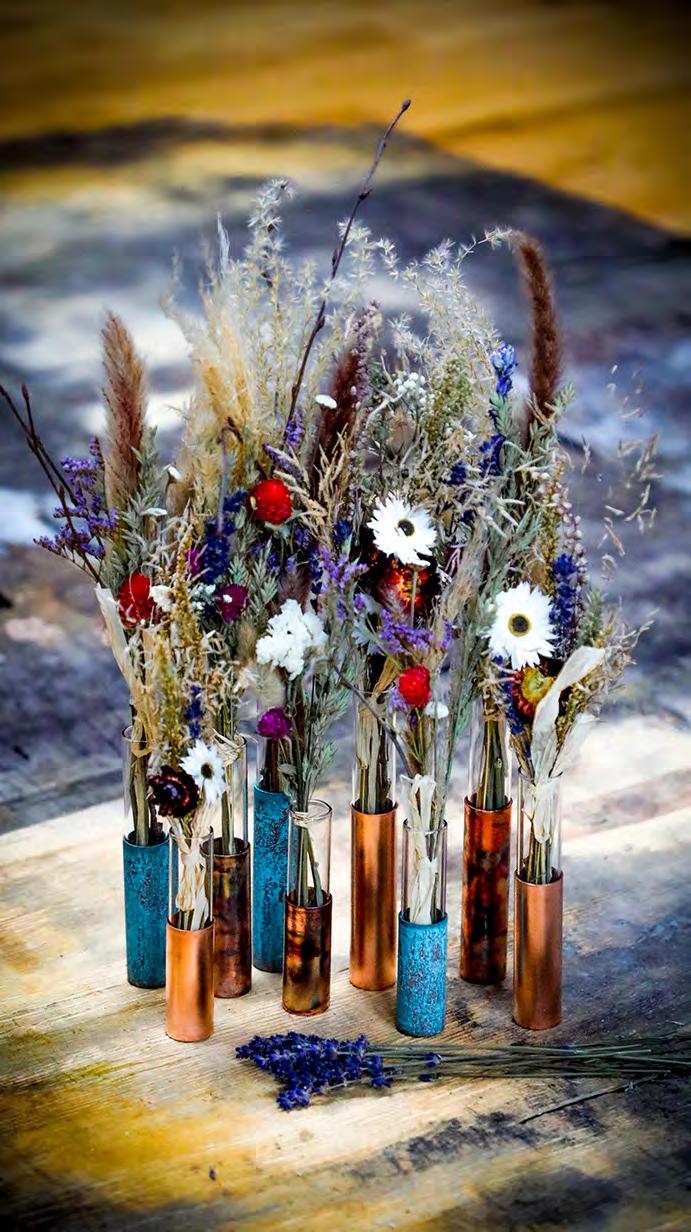
OPPOSITE PAGE
‘Copper Bud Vases’ by Kopper Kreation.
PAGE 24
Mary Blanchfield, Interim CEO, DCCI pictured with Dara Calleary TD, Minister & Katherine McDonald, Director, Craft NI at FOXFORD as part of the August Craft Month Launch.
An Tánaiste, Micheál Martin TD, Minister for Foreign Affairs and Minister for Defence; Emmet Kane, President of the Irish Woodturners Guild; Imelda Connolly, Chairperson of the Irish Woodturners Guild; Peter Hynes Chairperson of DCCI and Mary Blanchfield, Head of Operations DCCI pictured at the opening of the Design & Crafts Council Ireland (DCCI) Irish Woodturners Guild (IWG) ‘Turning Turns 40’ exhibition
PAGE 25
Karen Phillips Head of Arts at the RDS; Lace Bursary winner Olwen Bourke; Model wearing Olwen’s work and Suzy O’Keefe, Head of Digital & Communications, DCCI.
Woodturner Ed Forristal pictured at his workshop near Westport Co Mayo.
PAGE 26
Diane Southey from Saille Baskets in Kerry at the Design & Craft Council Ireland’s Irish Craft Village at Bord Bia Bloom.
Young Craft Booster master and Student beside their work.
PAGE 27
IBDC winners and runners up pictured alongside Mary Blanchfield, Interim CEO; DCCI Tom Watts, Head of Design; DCCI, Claire Downey, CEO, Rediscovery Centre.
Irish Craft Village 2024 at Bord Bia Bloom.
Minister Peter Burke pictured at 2024 Made Local Summer Launch with Suzy O’Keefe, Head of Digital & Communications, DCCI; Simon O’Connor, Director, Museum of Literature Ireland; Monica Walsh, Cobbler’s Lane and Melissa Curry, Melissa Curry Jewellery Irish Design Week Dfa Meeting.
PAGE 29
Made Local maker, Yelena Kosikh from Dublin looking up to her Kingfisher scarf at the opening of Gifted at the RDS.
Irish Ambassador Elizabeth McCullough to Denmark pictured at Irish Design Week event 2024.
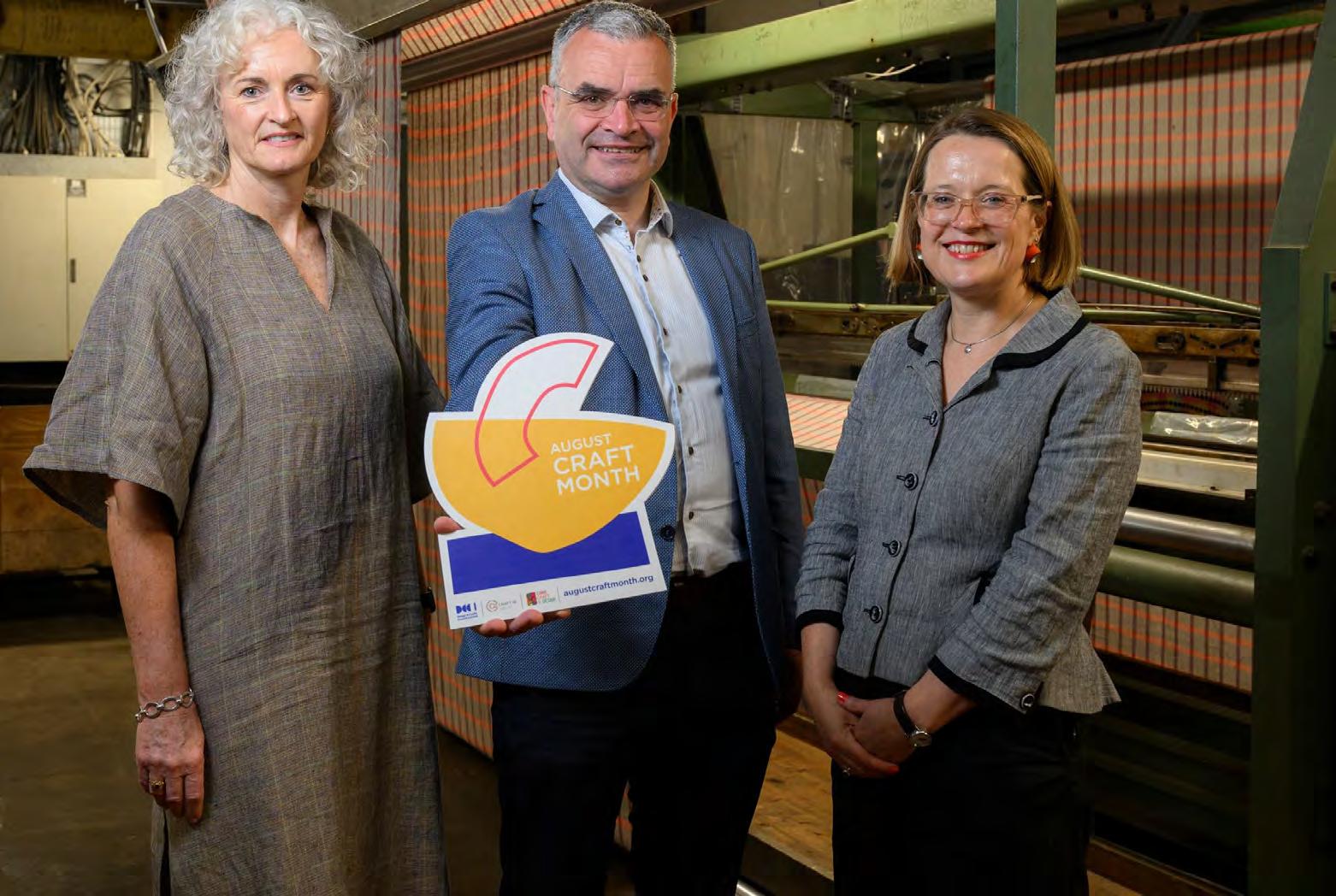
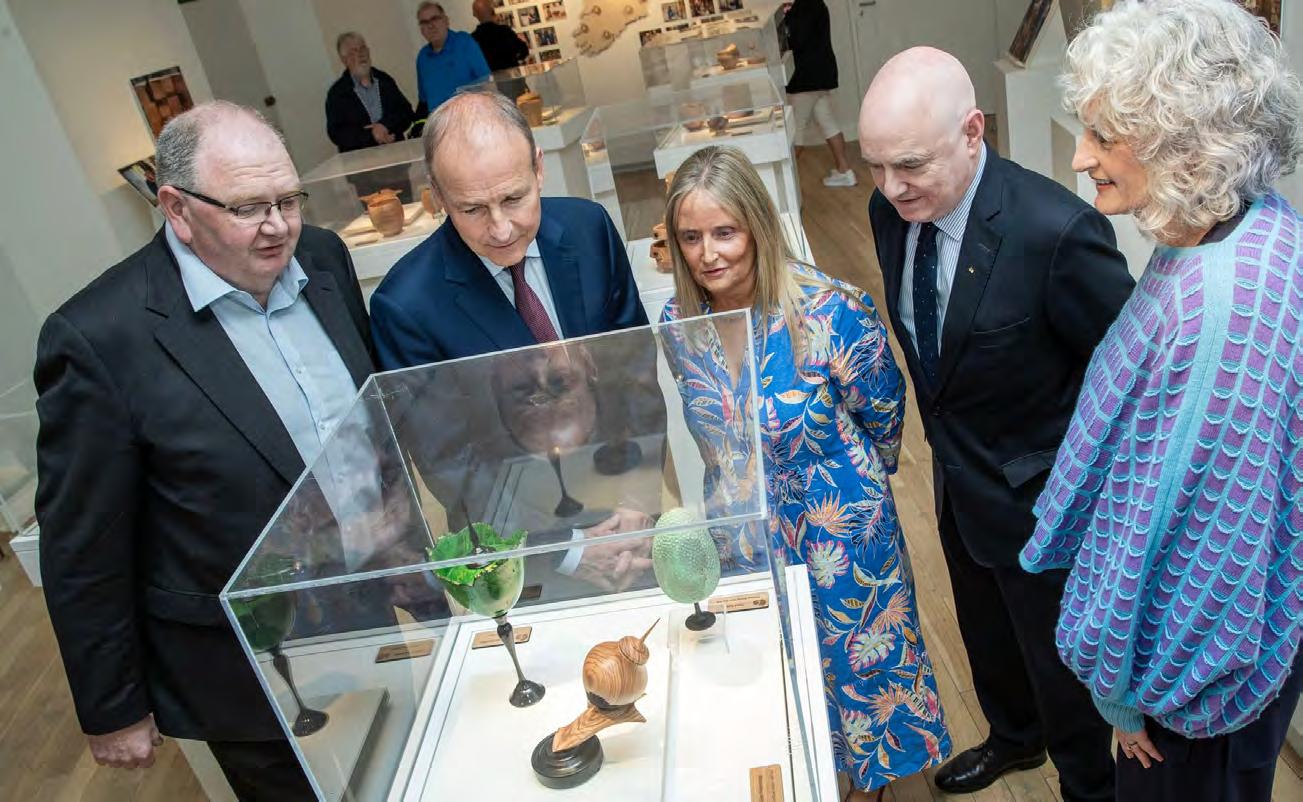
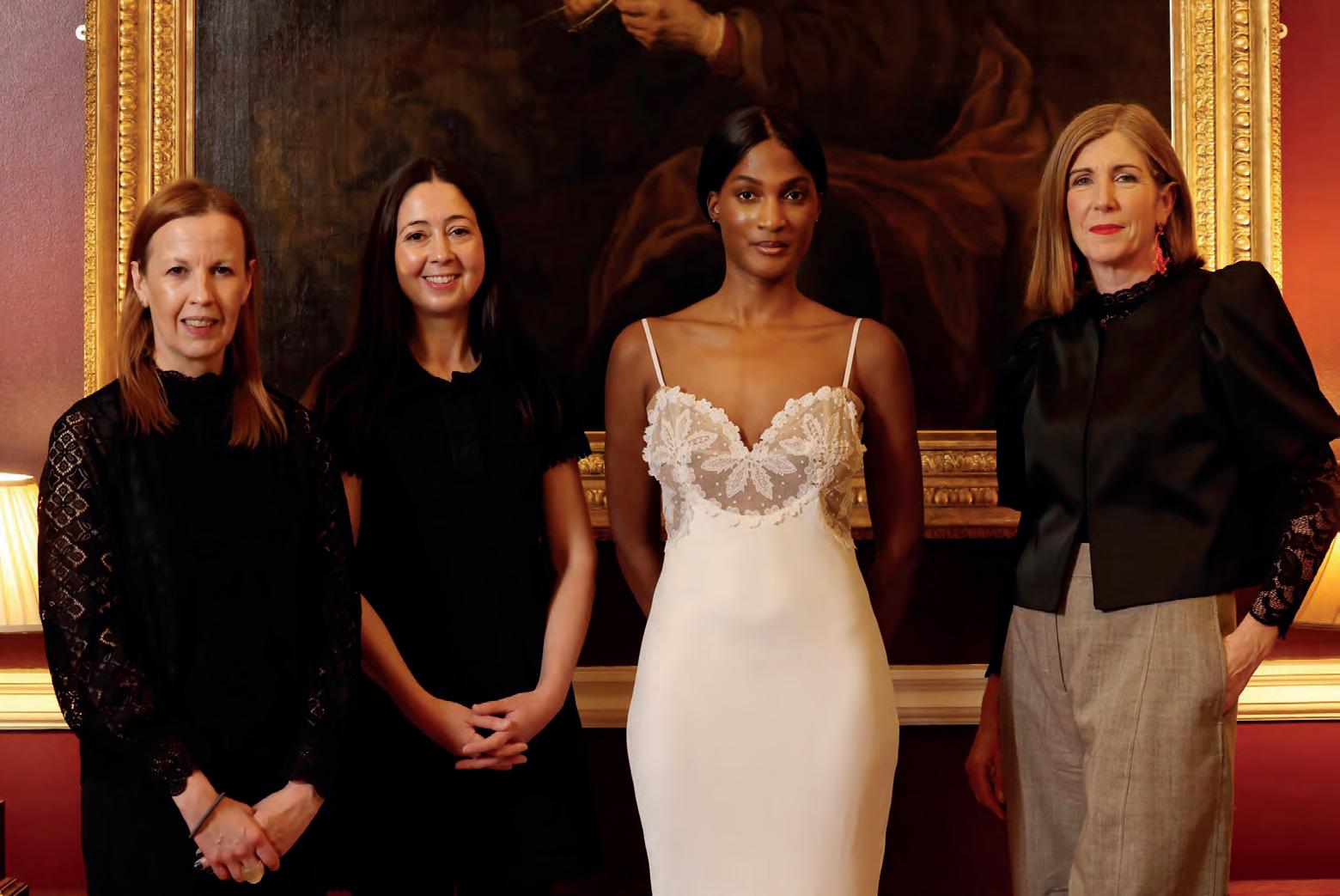

21
DCCI programmes delivered
€283,614
invested in DCCI member supports
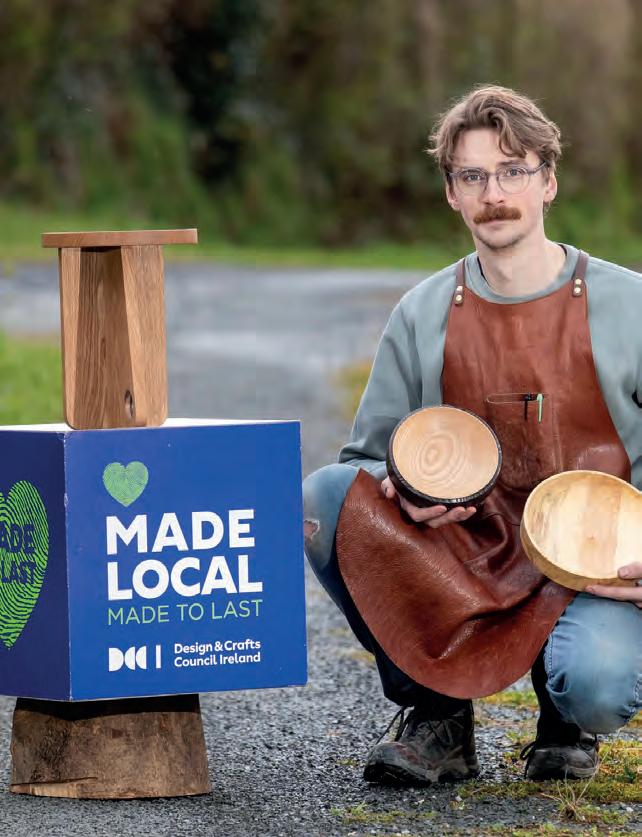

Employed in the design and craft sector
€12.7bn
total turnover for design and craft sector, an increase of 23.3%
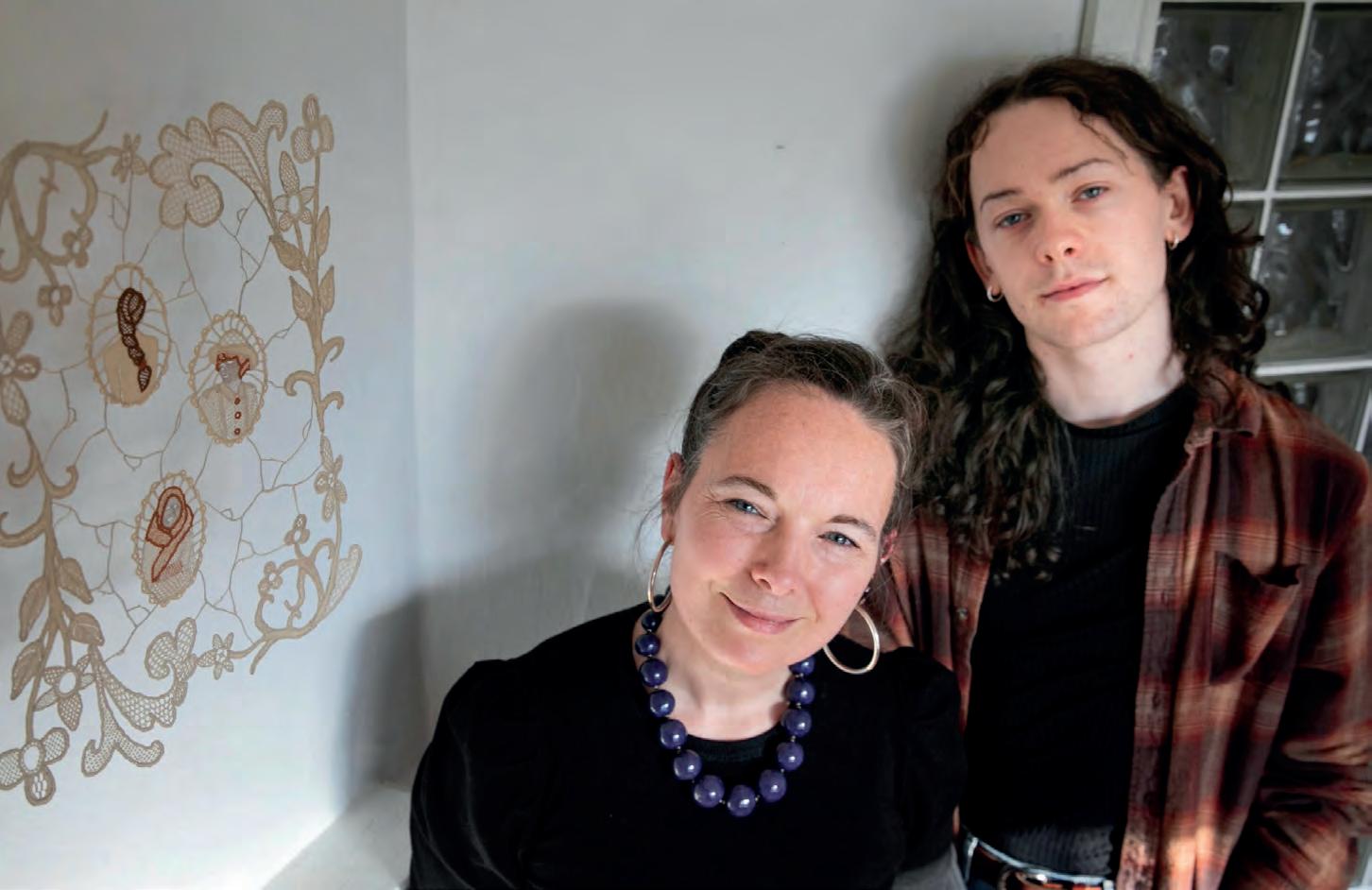
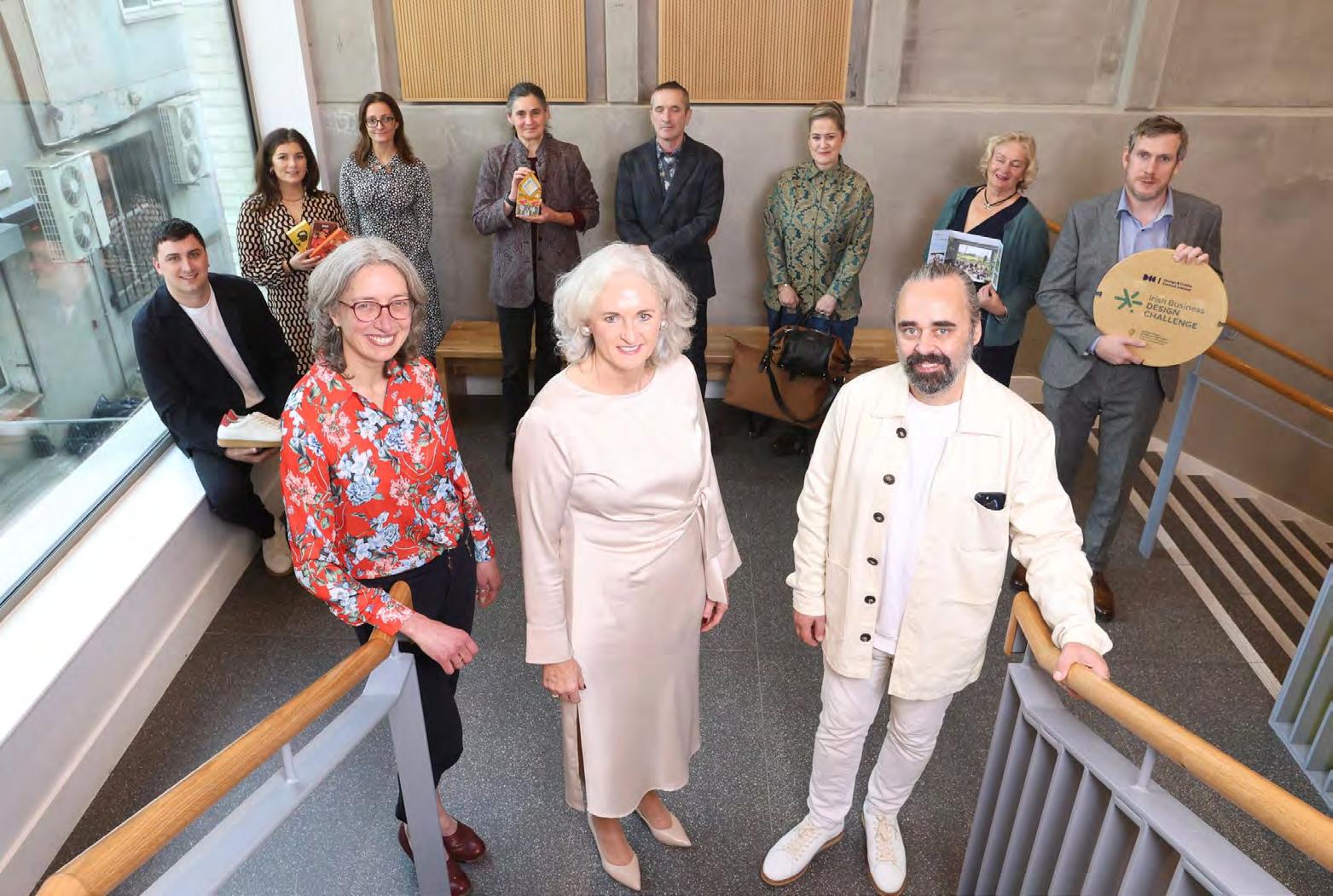
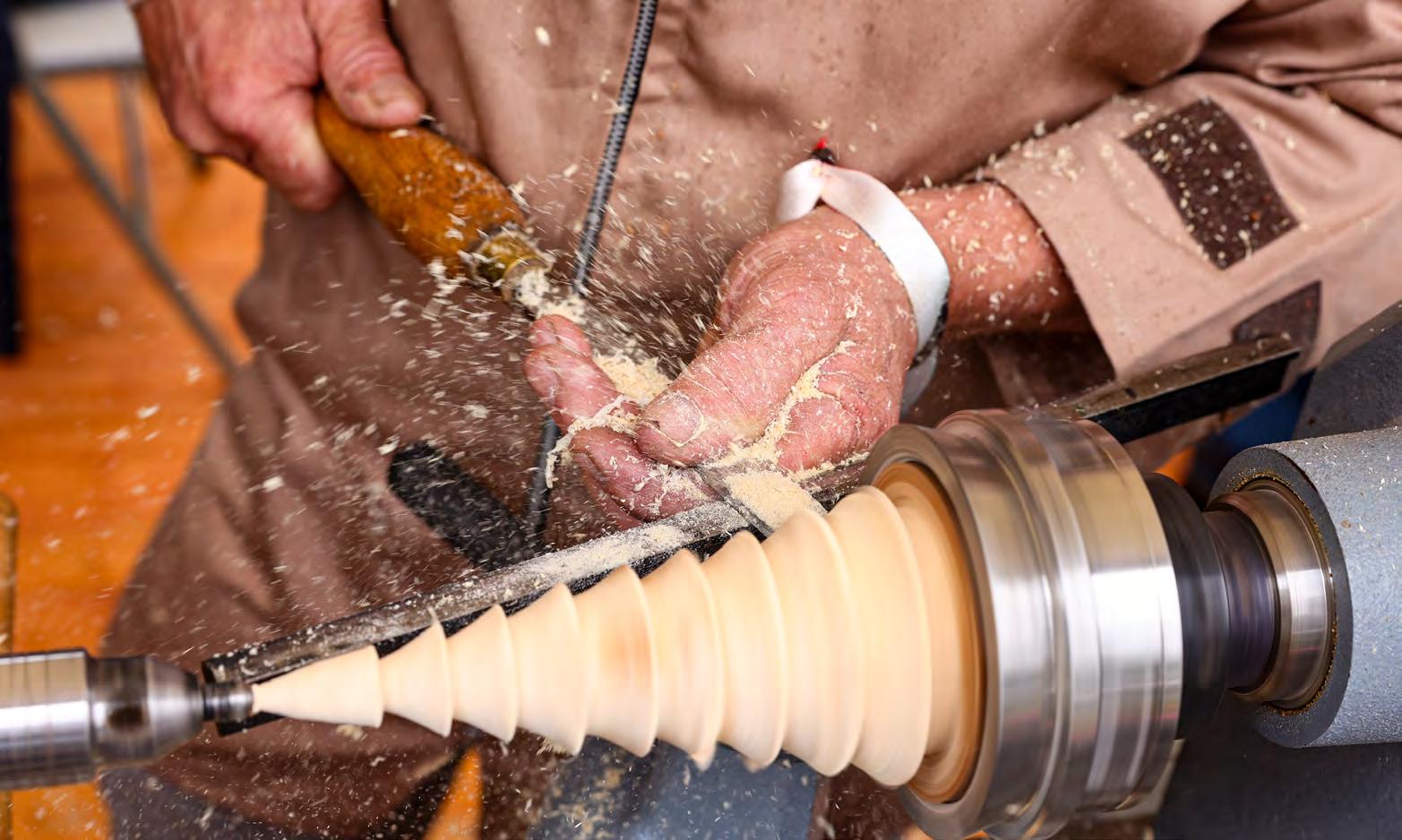
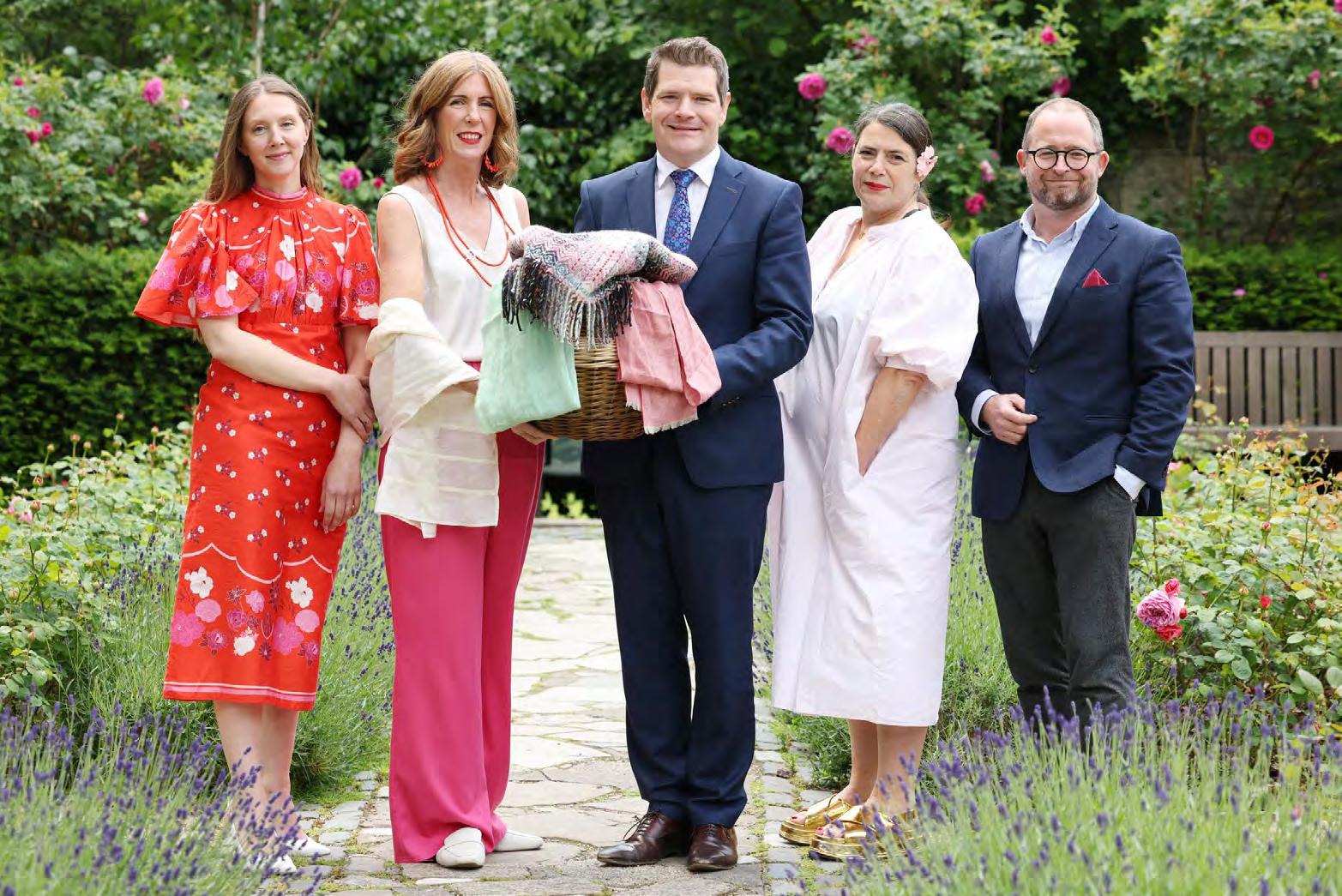
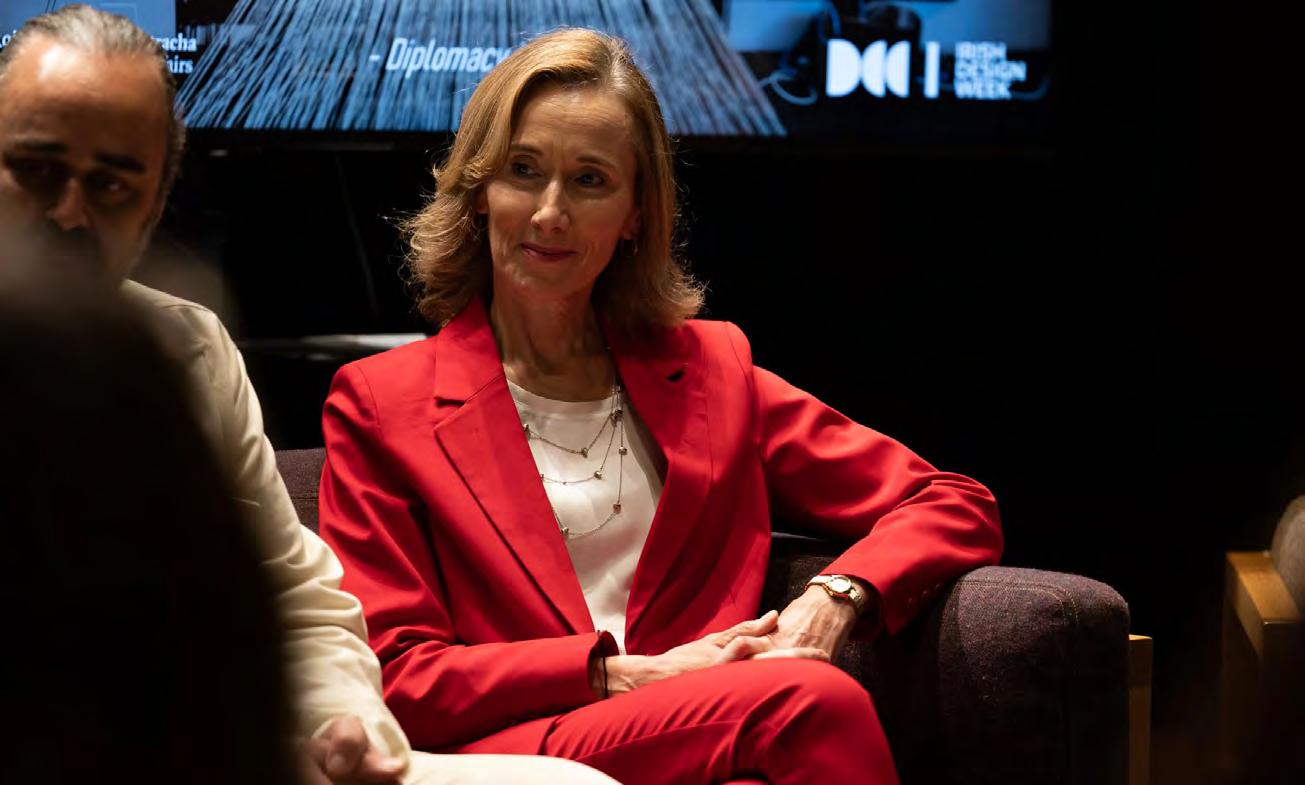
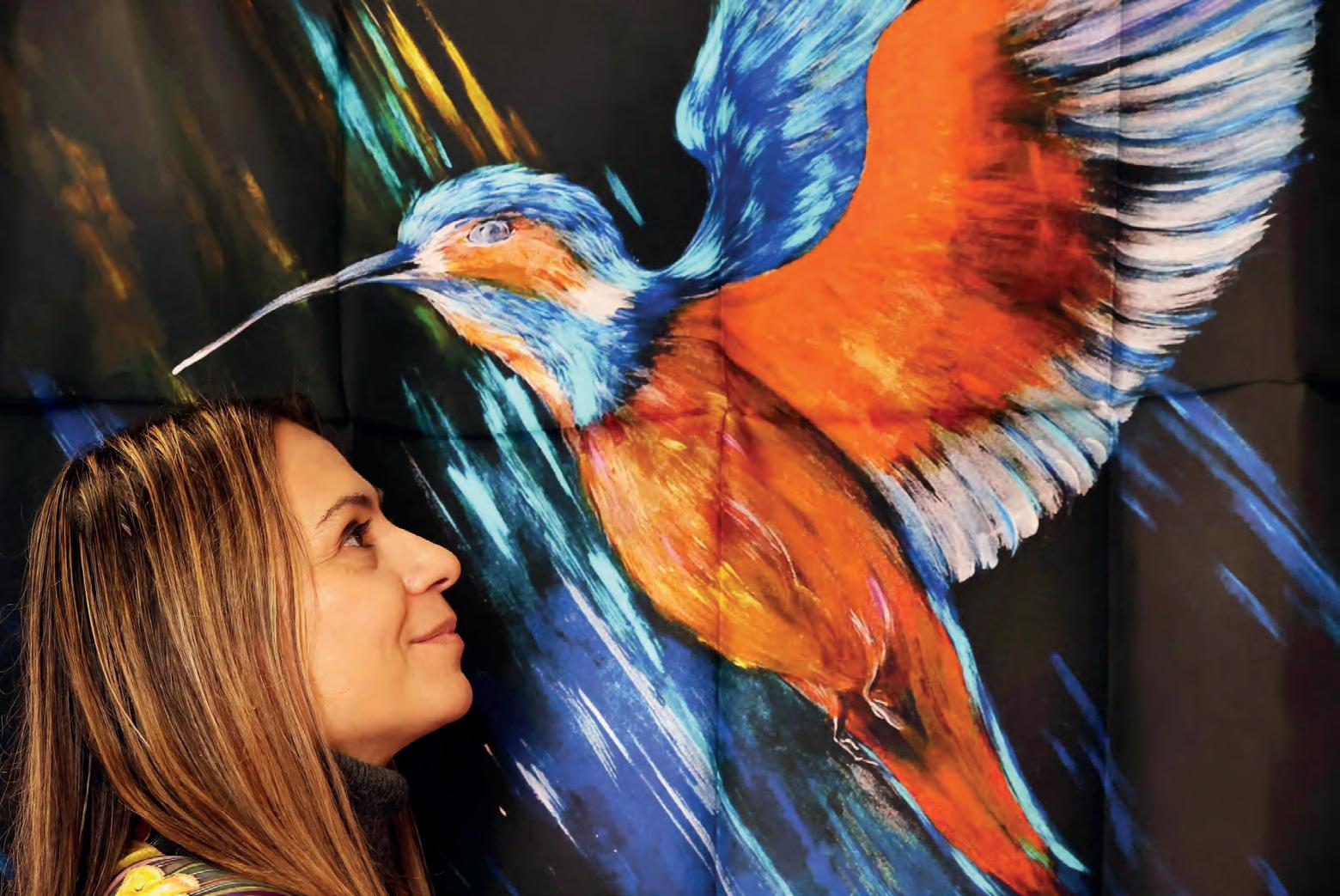
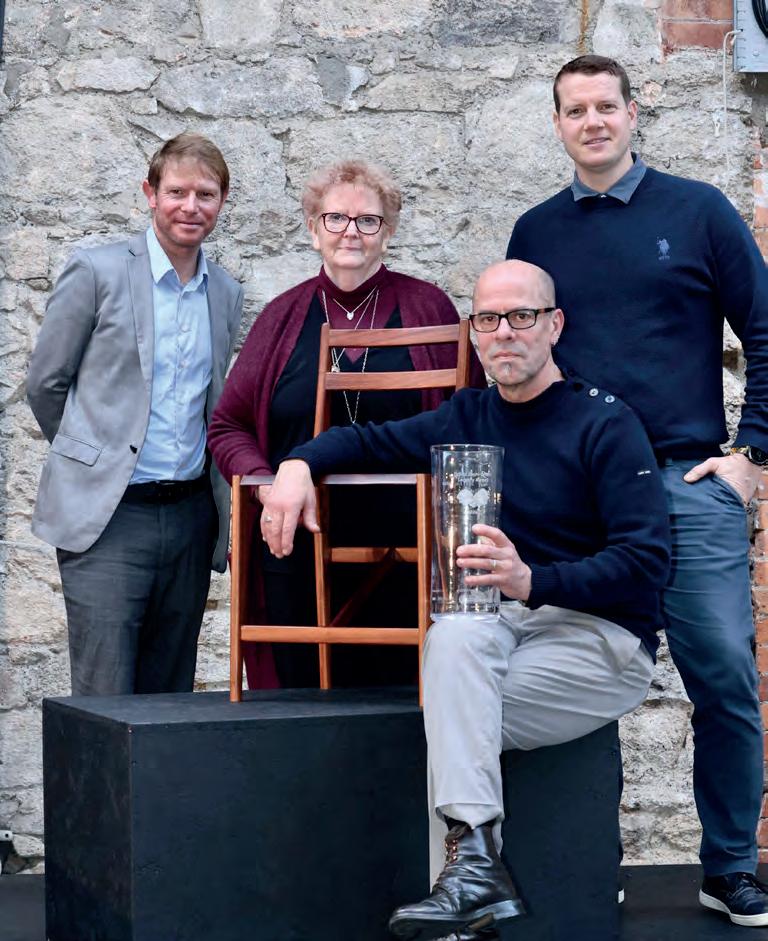
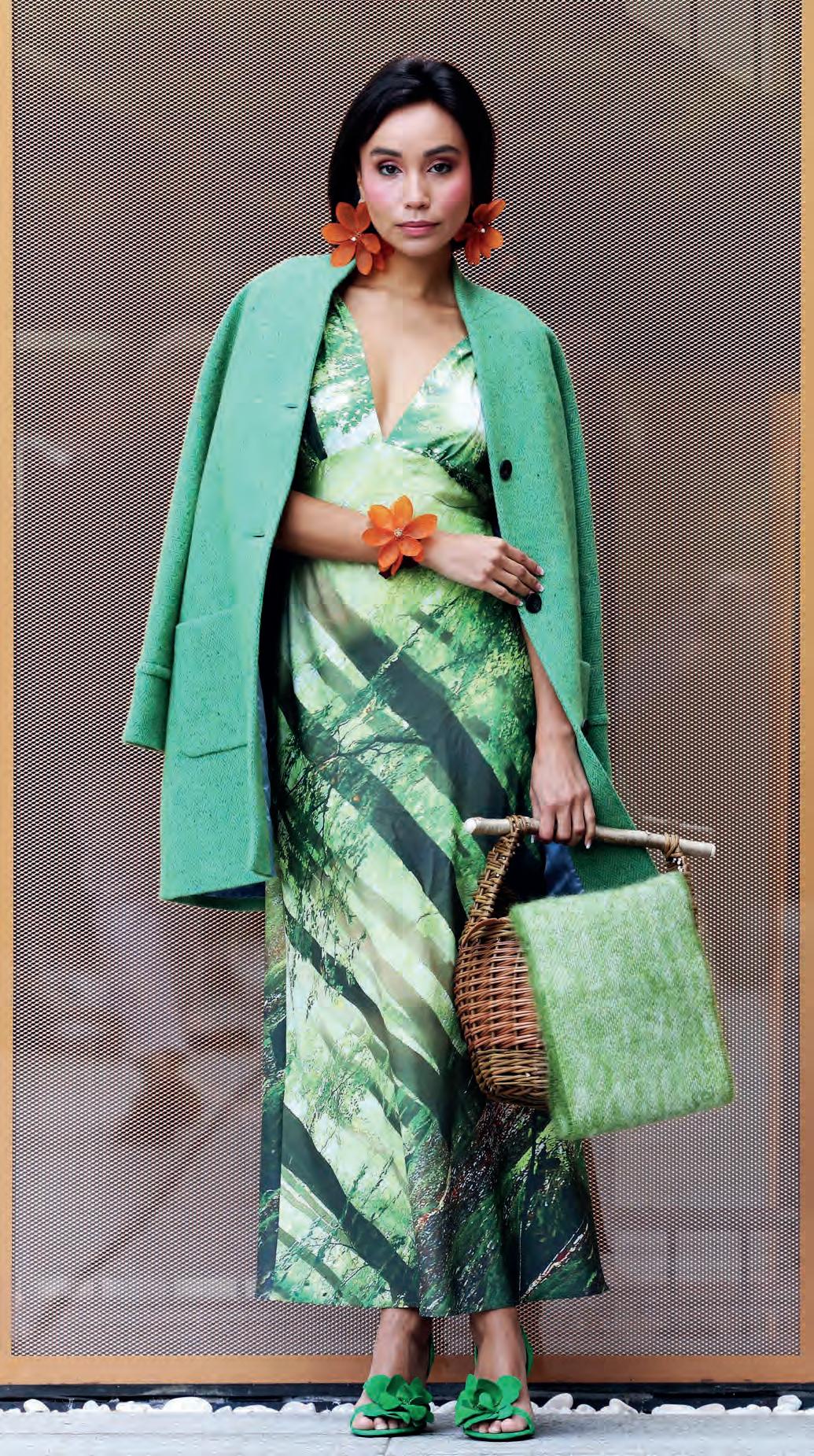
OPPOSITE PAGE
Model Rhayza at the launch of Made Local campaign for Summer 2024
PAGE 32
Keane Irish gold medallist Paralympic
after being announced as the Design & Crafts Council Ireland Made Local new ambassador.
‘American white oak chair’ by GILDAS O LAOIRE.
Helen O’ Connell and Finn Conlon creating a stone sculpture together at D15 Studios. PAGE 33
PAGE 34
PAGE 35
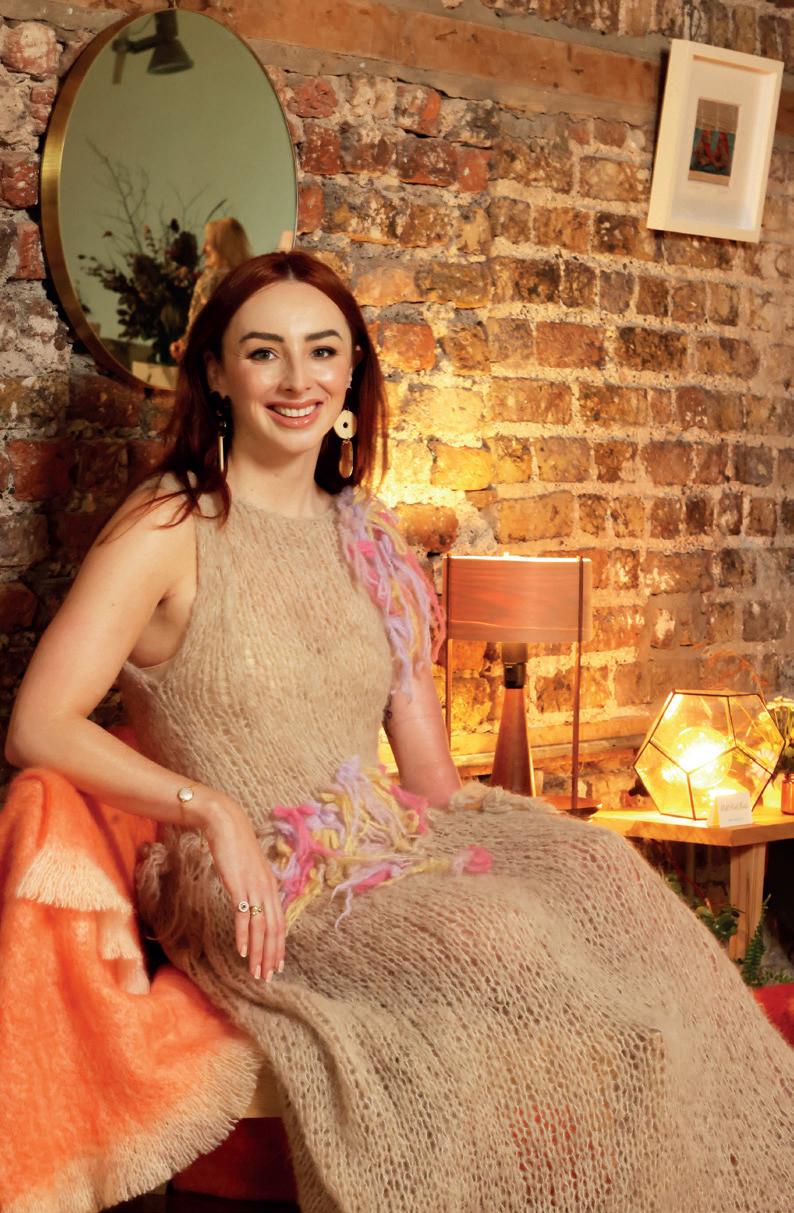



22,000 operational design & craft enterprises 73% businesses have >1 full-time sta 40% of client sales in 2024 were exports
€24.5m International sales achieved
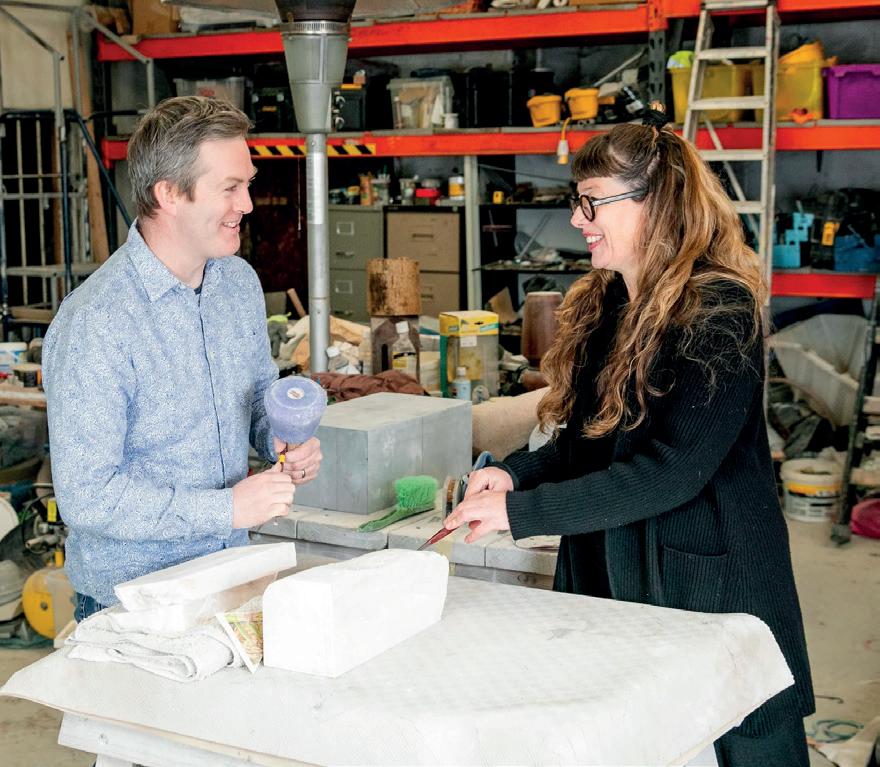
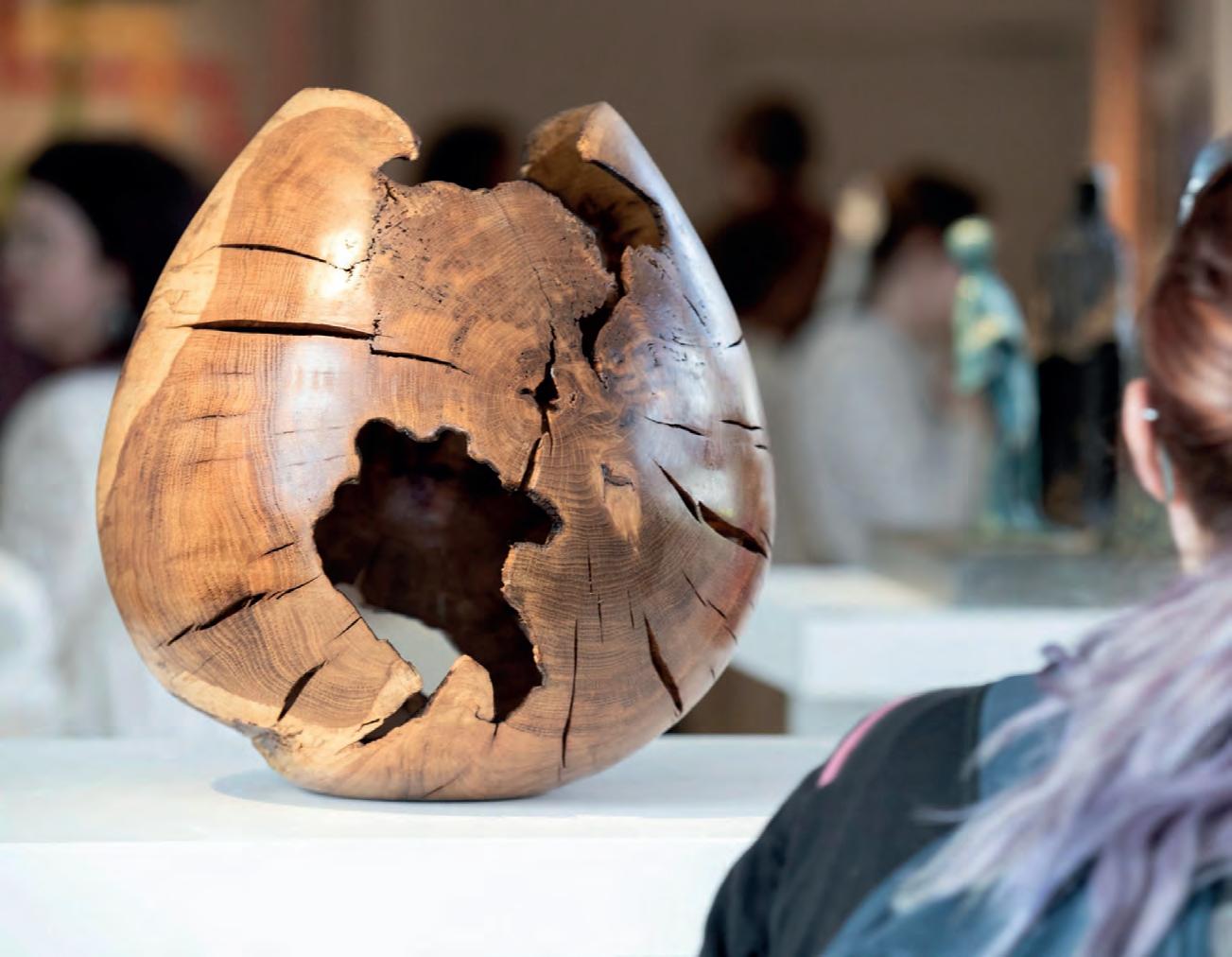


24.2% increase in employment in design and craft sector.
€81.59m domestic sales for top 150 DCCI clients
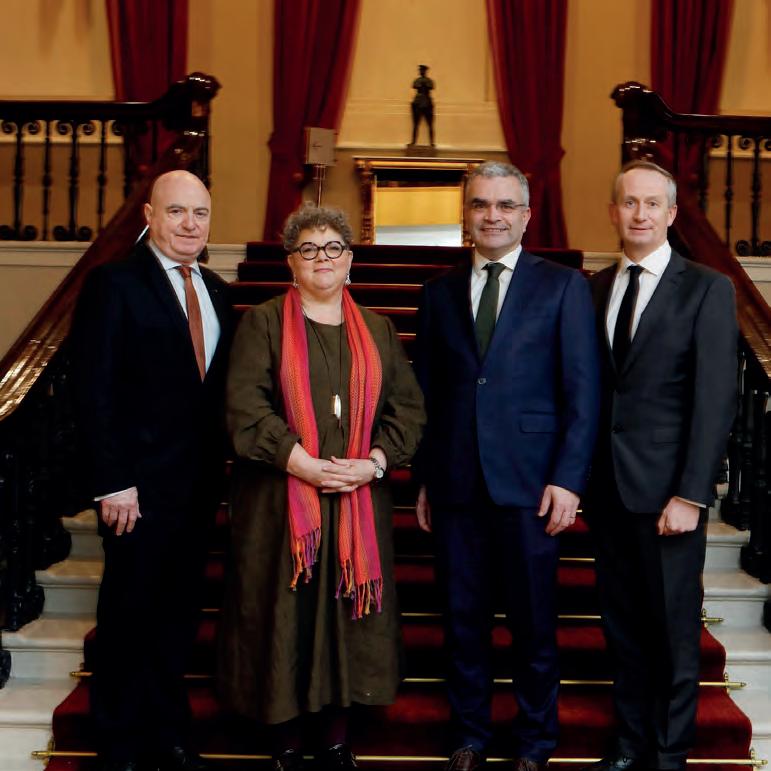
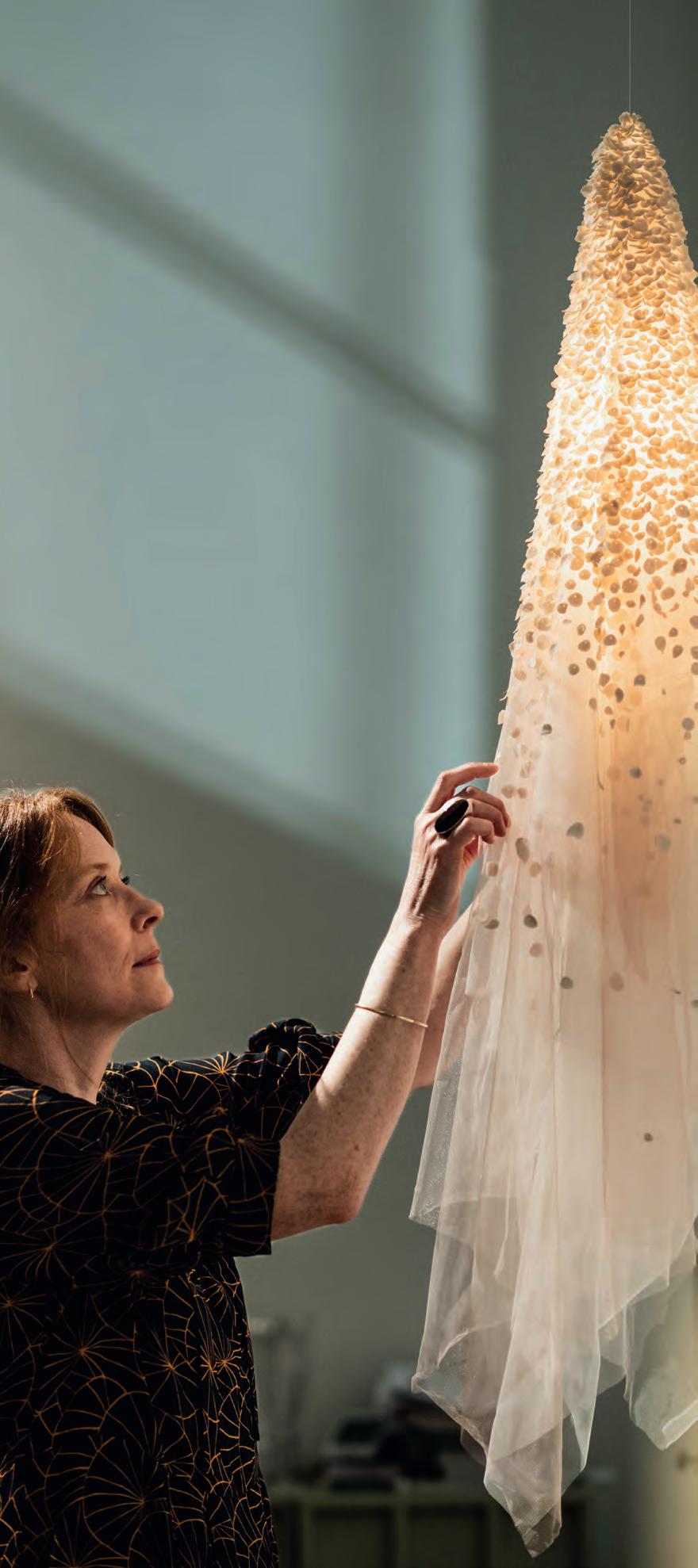

79%
DCCI clients have an online presence
€26.3m
value of sales at Showcase 2024

29,686
Design Ireland social network referrals (+/-)+3.7% growth from 2023
433
August Craft Month events across 32 counties
8
Master Artisans and Fellows representing Ireland involved in Homo Faber Fellowship

23
DCCI members at Collect International fair

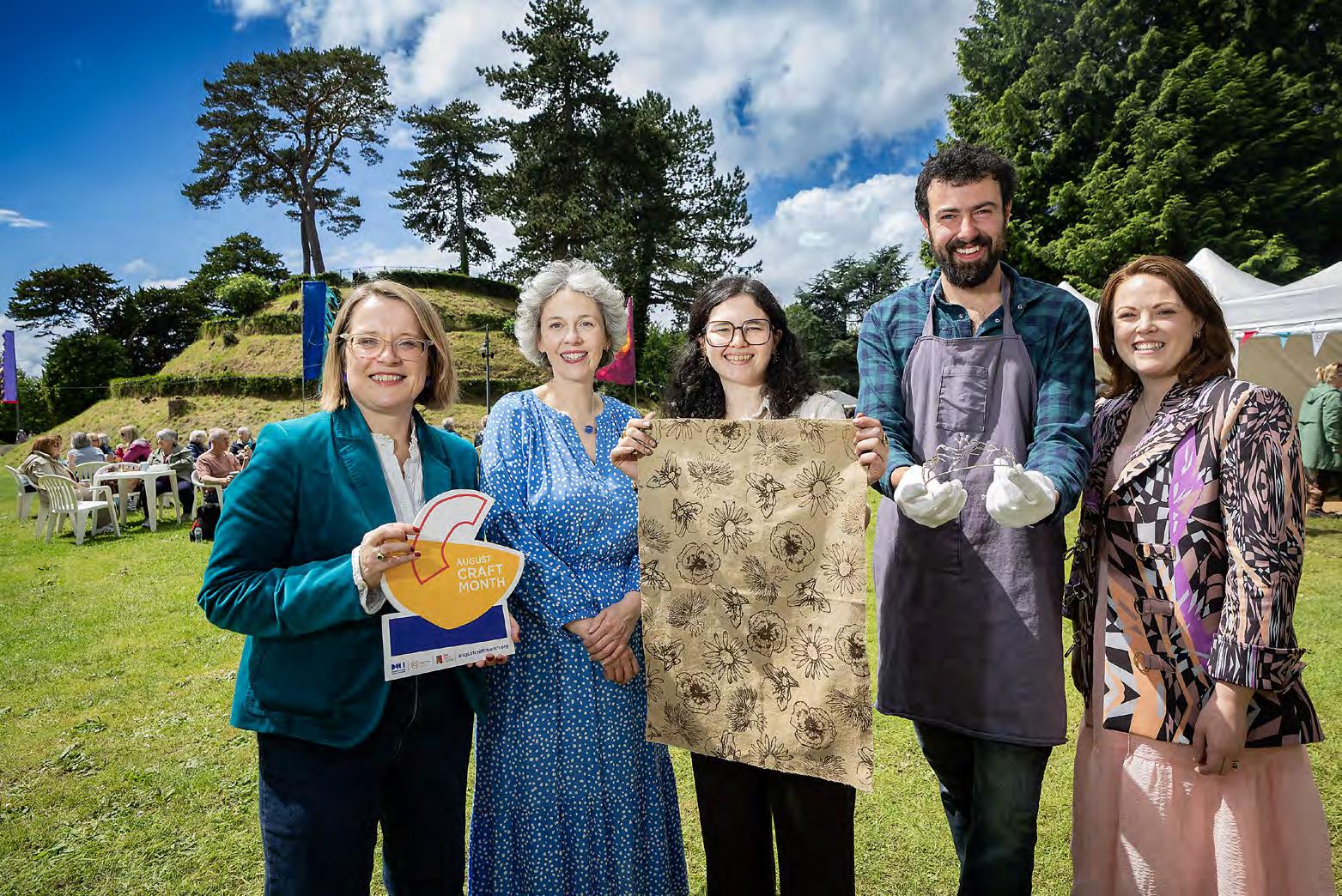
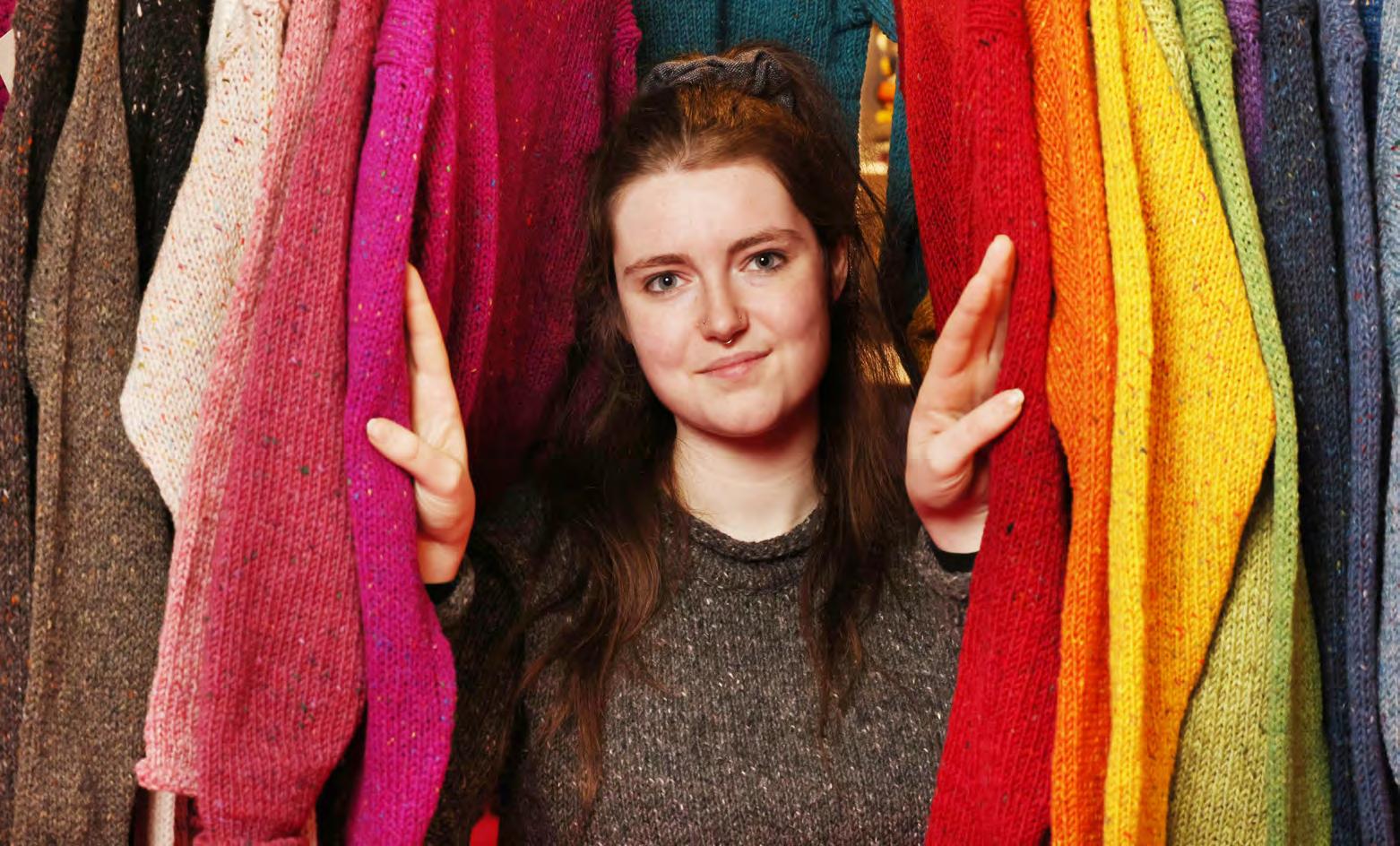
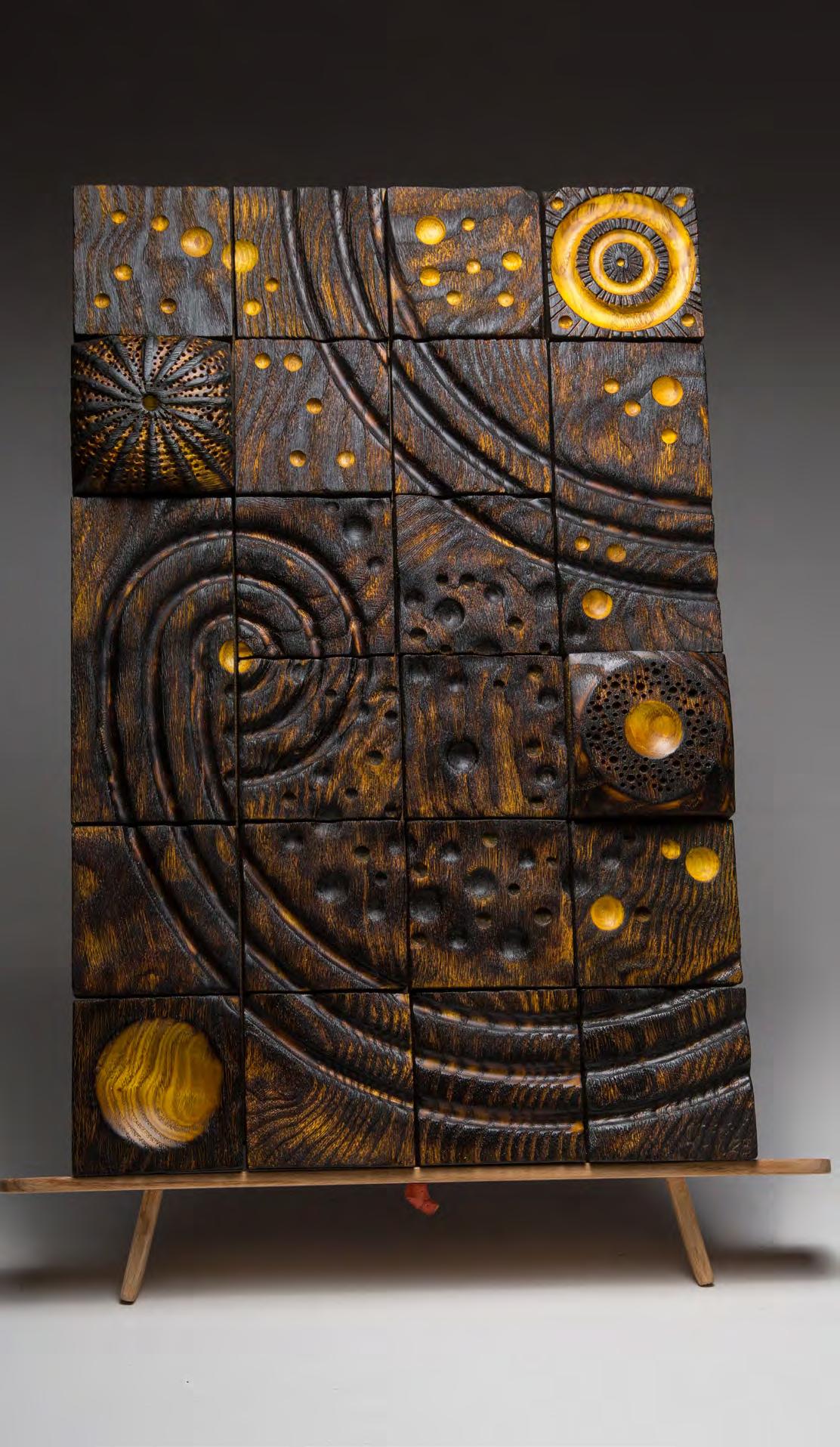
OPPOSITE PAGE
‘Wall Hanging’ by Tom Ronayne (Craobh Cuig Deag Chapter).
PAGE 38
Bowl by John Deaton (Dublin Chapter) at the Irish Woodturners Exhibition ‘Turning Turns 40’ at the DCCI National Design & Craft Gallery in Castle Yard, Co. Kilkenny.
Christine Byrne pictured with some of her pieces at ‘Past, Present – Future Perfect’ at the DCCI National Design & Craft Gallery (NDCG) in Kilkenny.
Patricia Berns, a member of the Irish Woodturners Guild pictured with his piece at the opening of the Design & Crafts Council Ireland (DCCI) Irish Woodturners Guild (IWG) ‘Turning Turns 40’ exhibition at the DCCI National Design & Craft Gallery in Castle Yard, Co. Kilkenny.
PAGE 39
Patrick O’Sullivan, Gifted; Minister Heather Humphreys with Mary Blanchfield, Interim CEO, DCCI at Gifted 2024.
PAGE 40
Image of the Collect 2024 DCCI exhibition
PAGE 41
Orla O’Rourke from Shannagarry in Cork, is pictured with one of her pieces which is part of the Cork Craft & Design exhibition titled ‘Past, Present – Future Perfect’ which opened at the weekend at the DCCI National Design & Craft Gallery (NDCG) in Kilkenny.
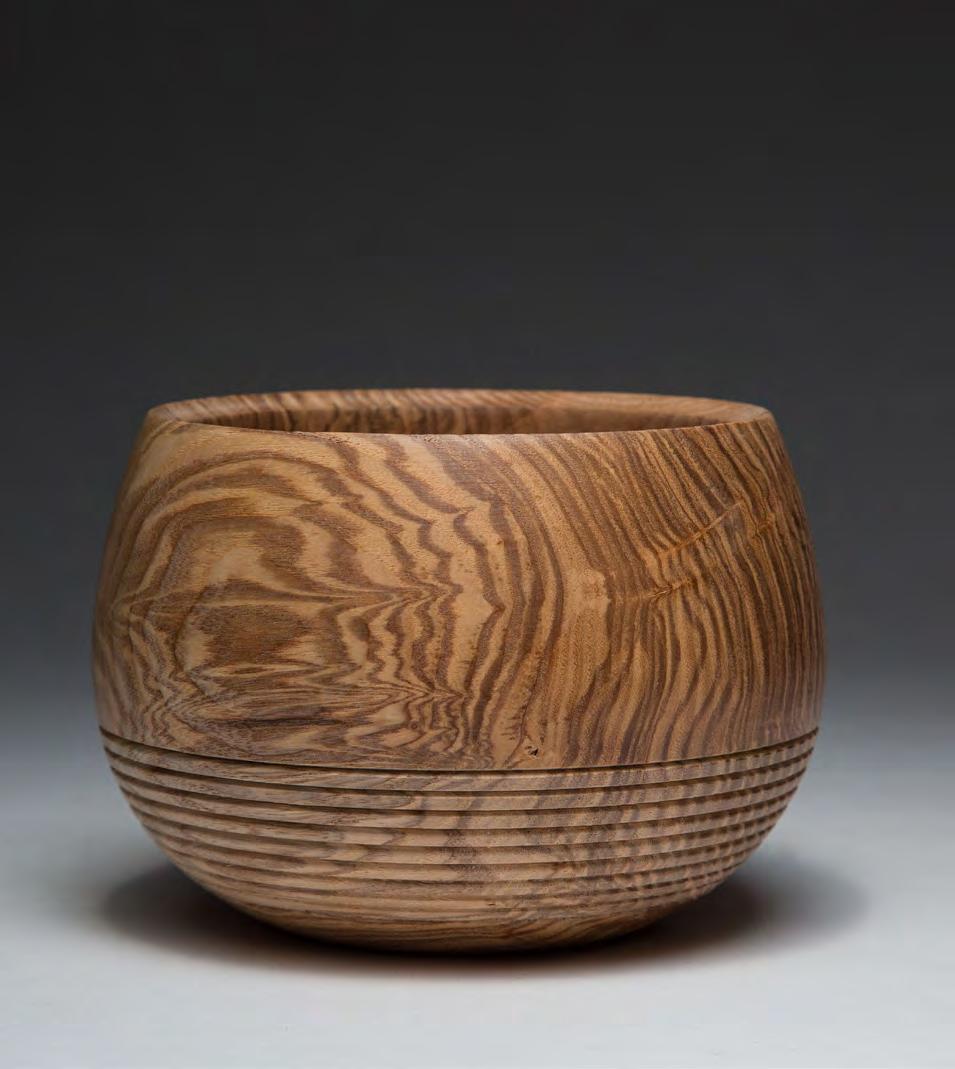
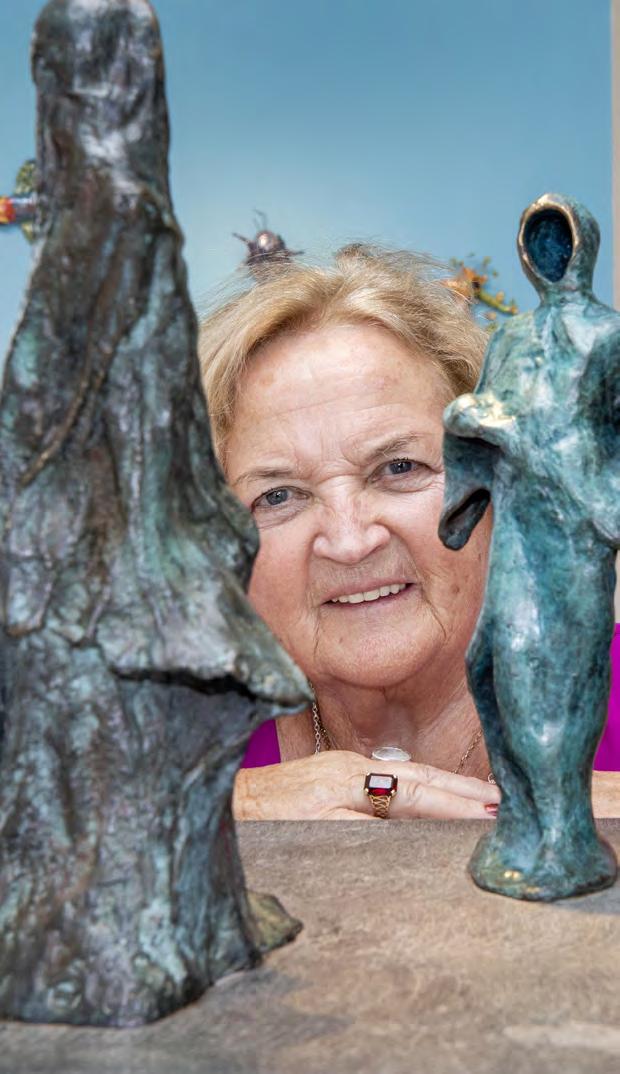
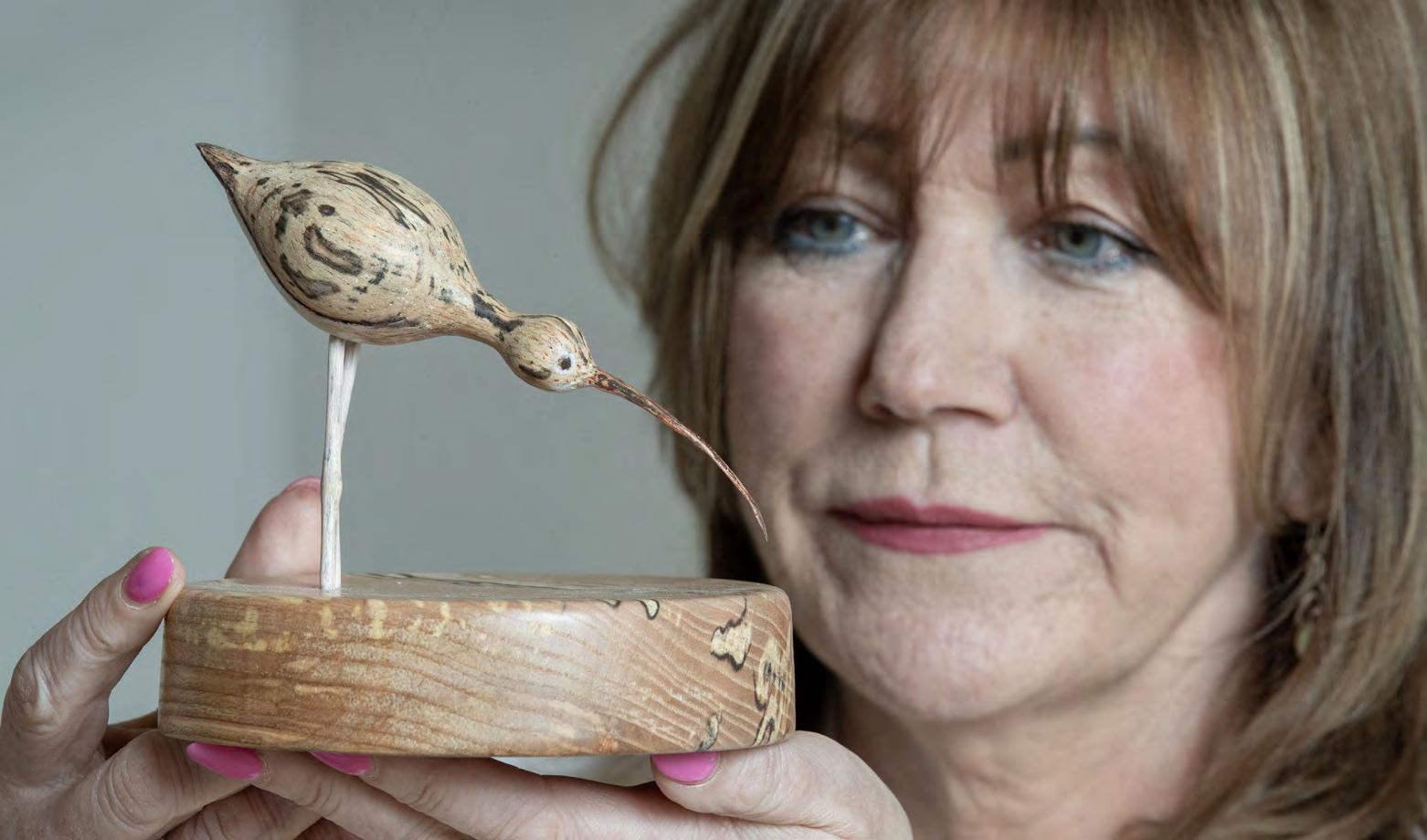

€5.1bn
Gross Value Added (GVA) generated
48 events during Irish Design Week

4,602
Irish Design Week footfall
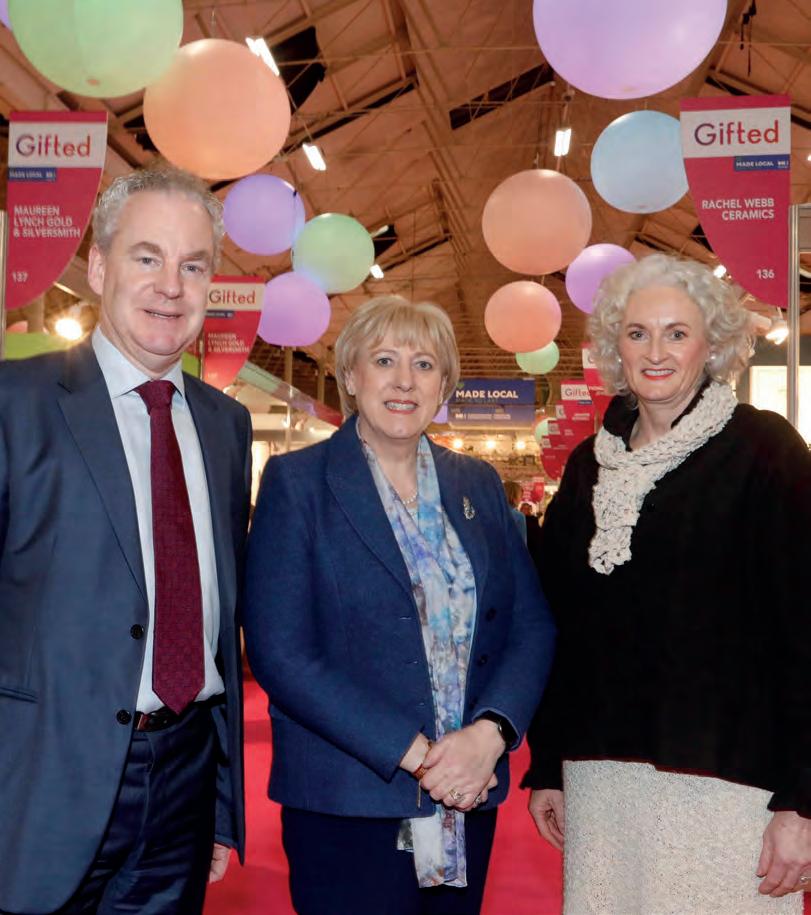

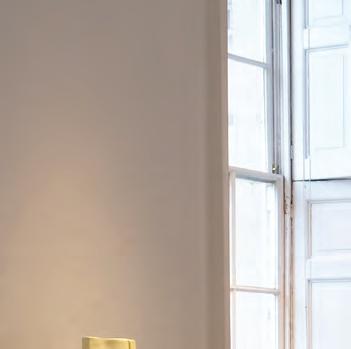

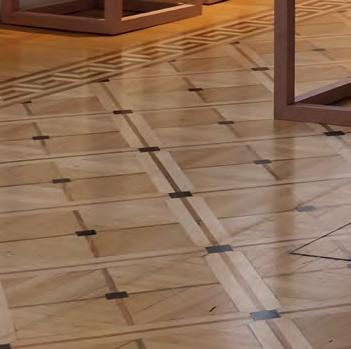
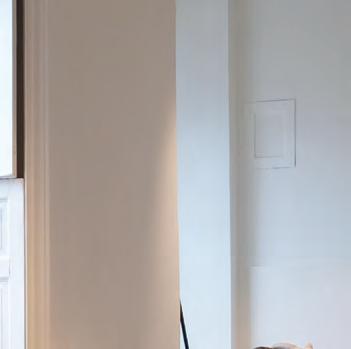
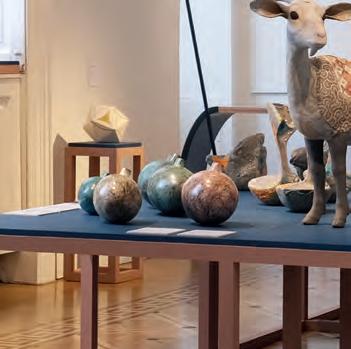
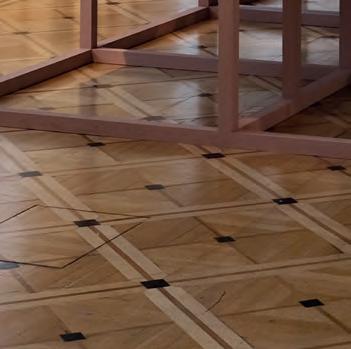
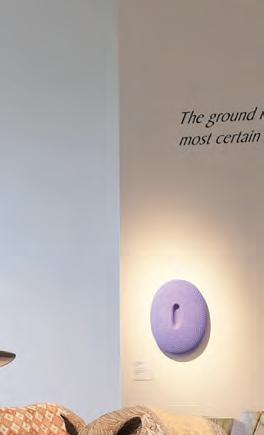
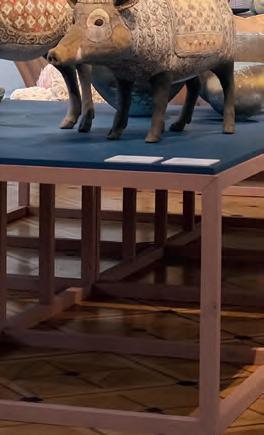
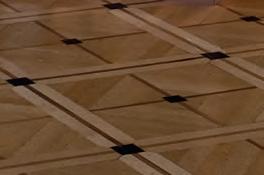
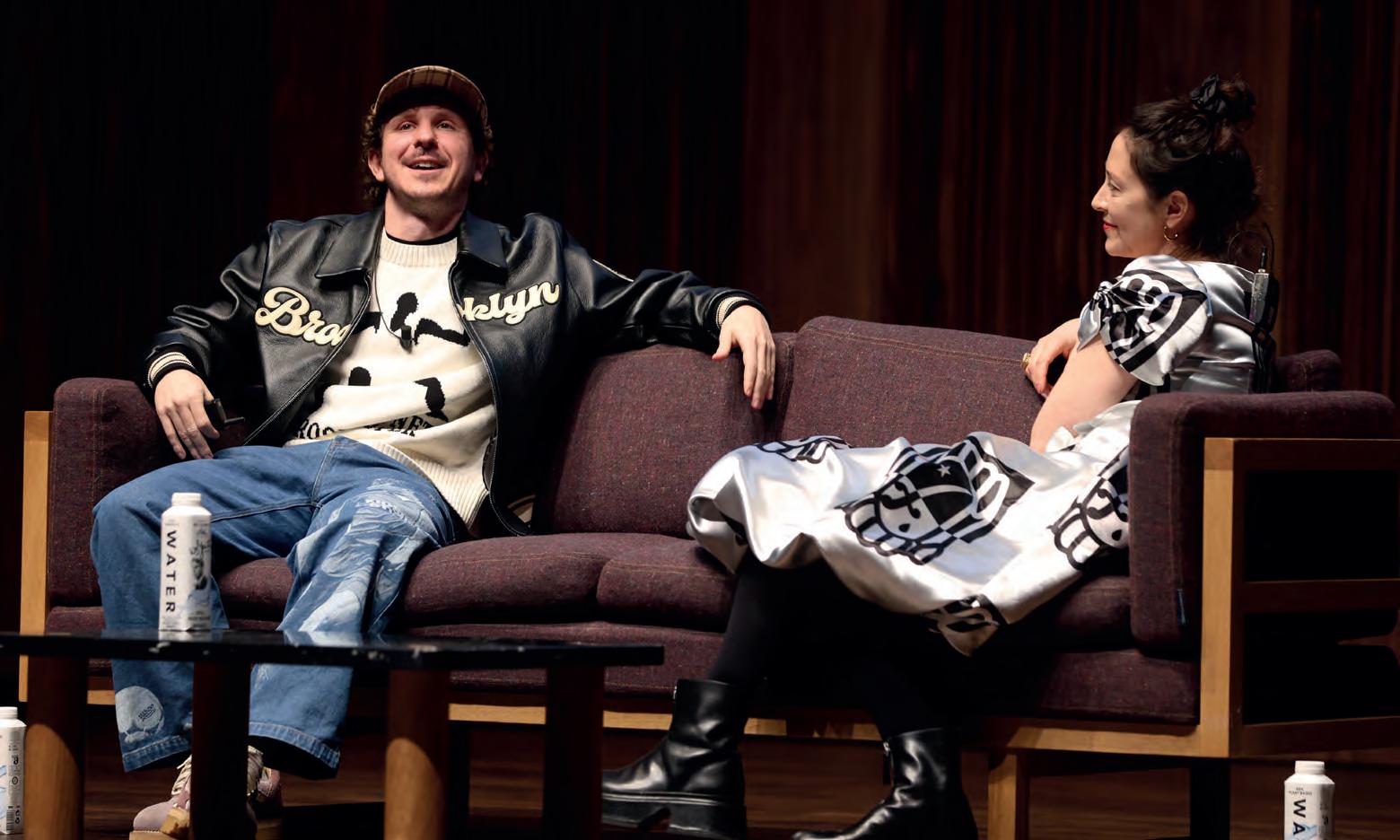
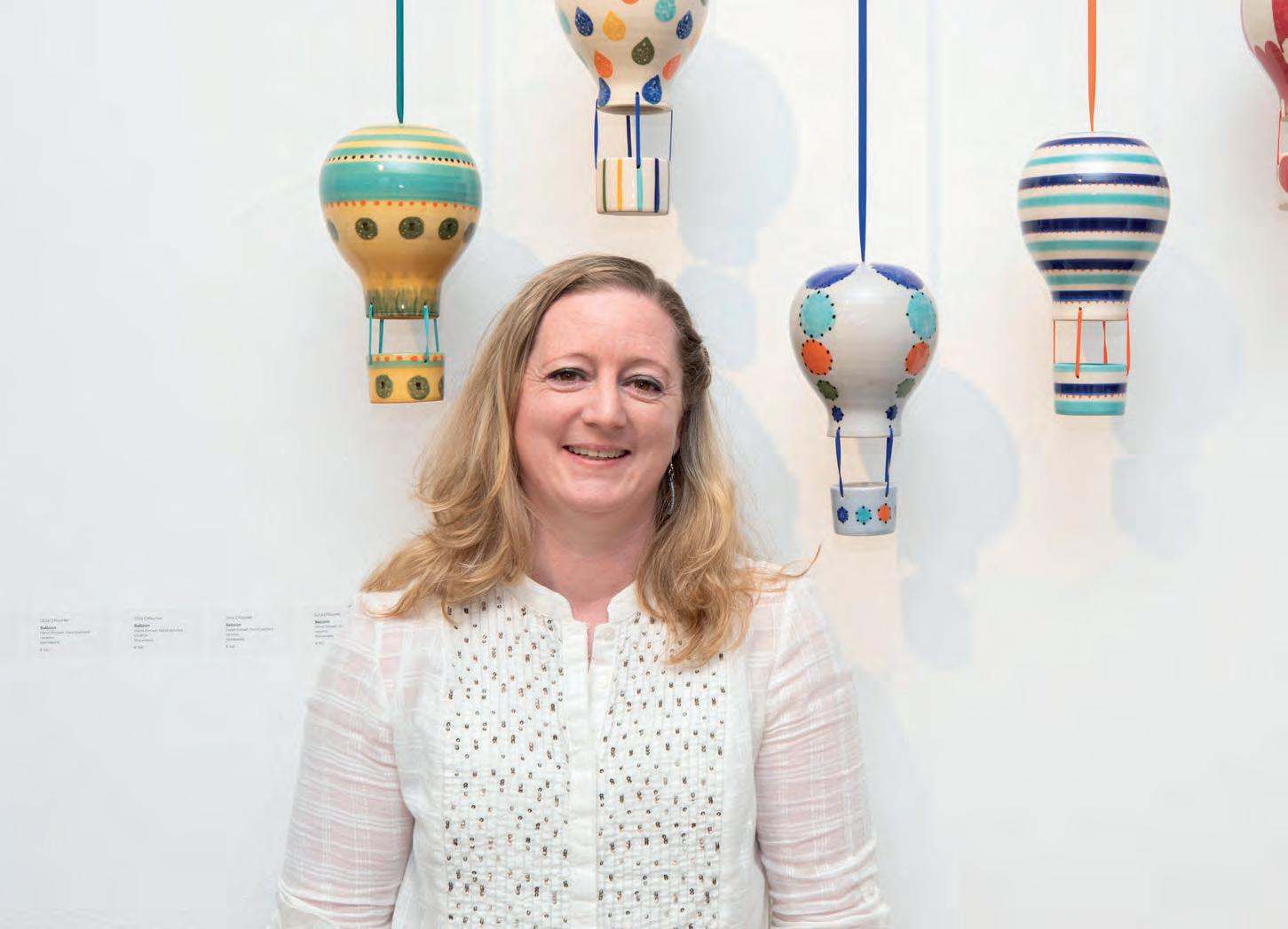


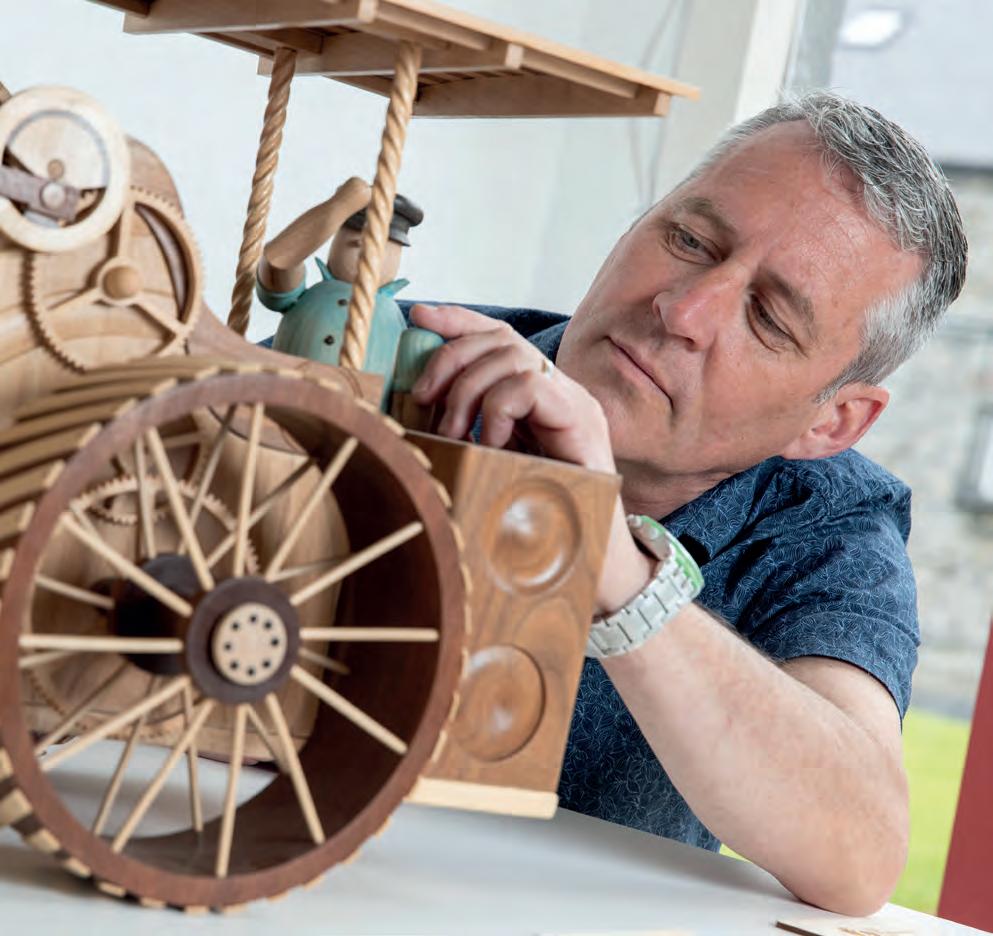
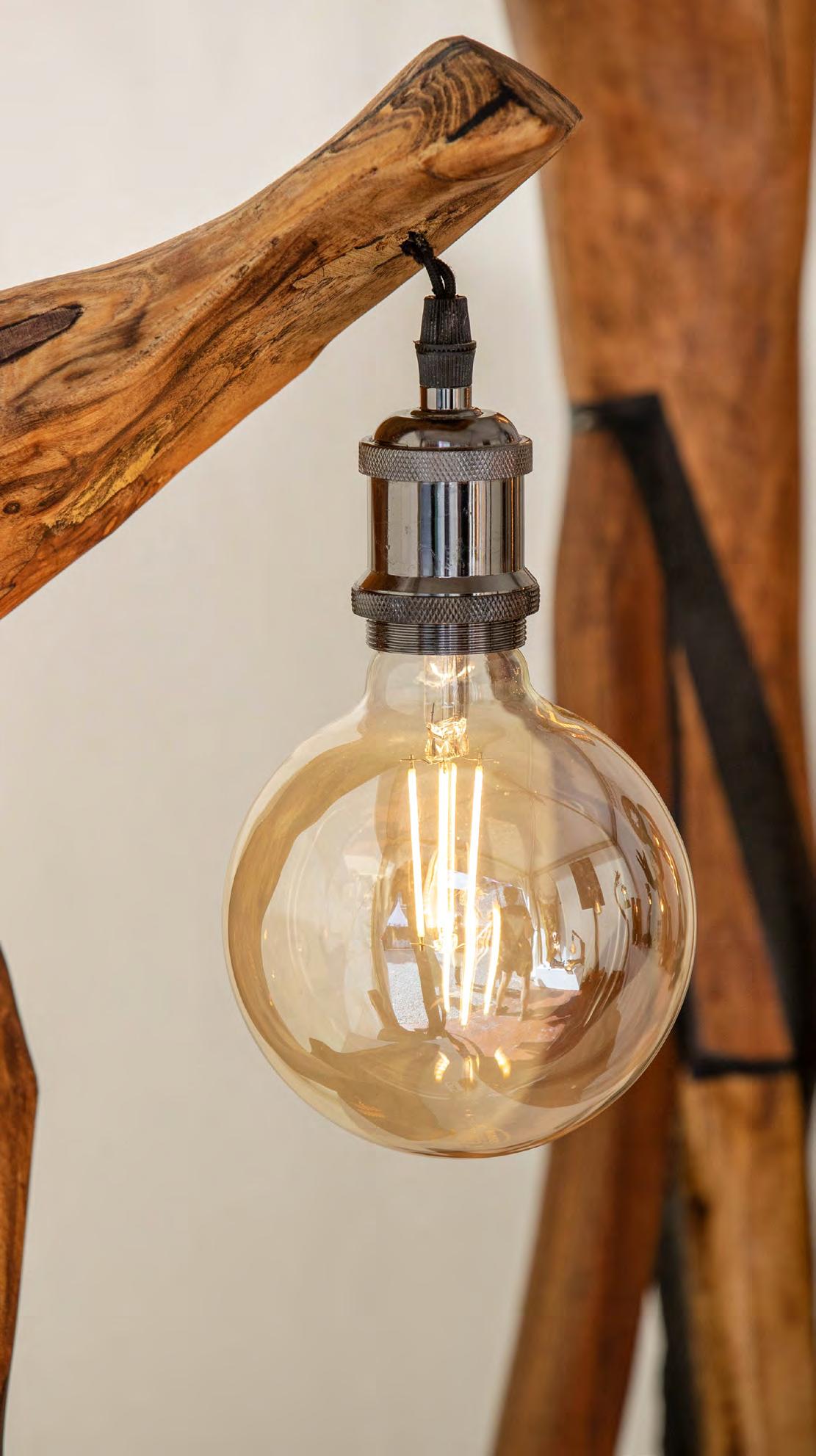
OPPOSITE PAGE
Hanging light by Copper Fish at the made local craft market 2024.
PAGE 44
OCO Global deliver DCCI Academy course – Growth Programme February 2024.
the
PAGE 45
Students pictured at the DCCI Academy
A student working on a piece during the DCCIA
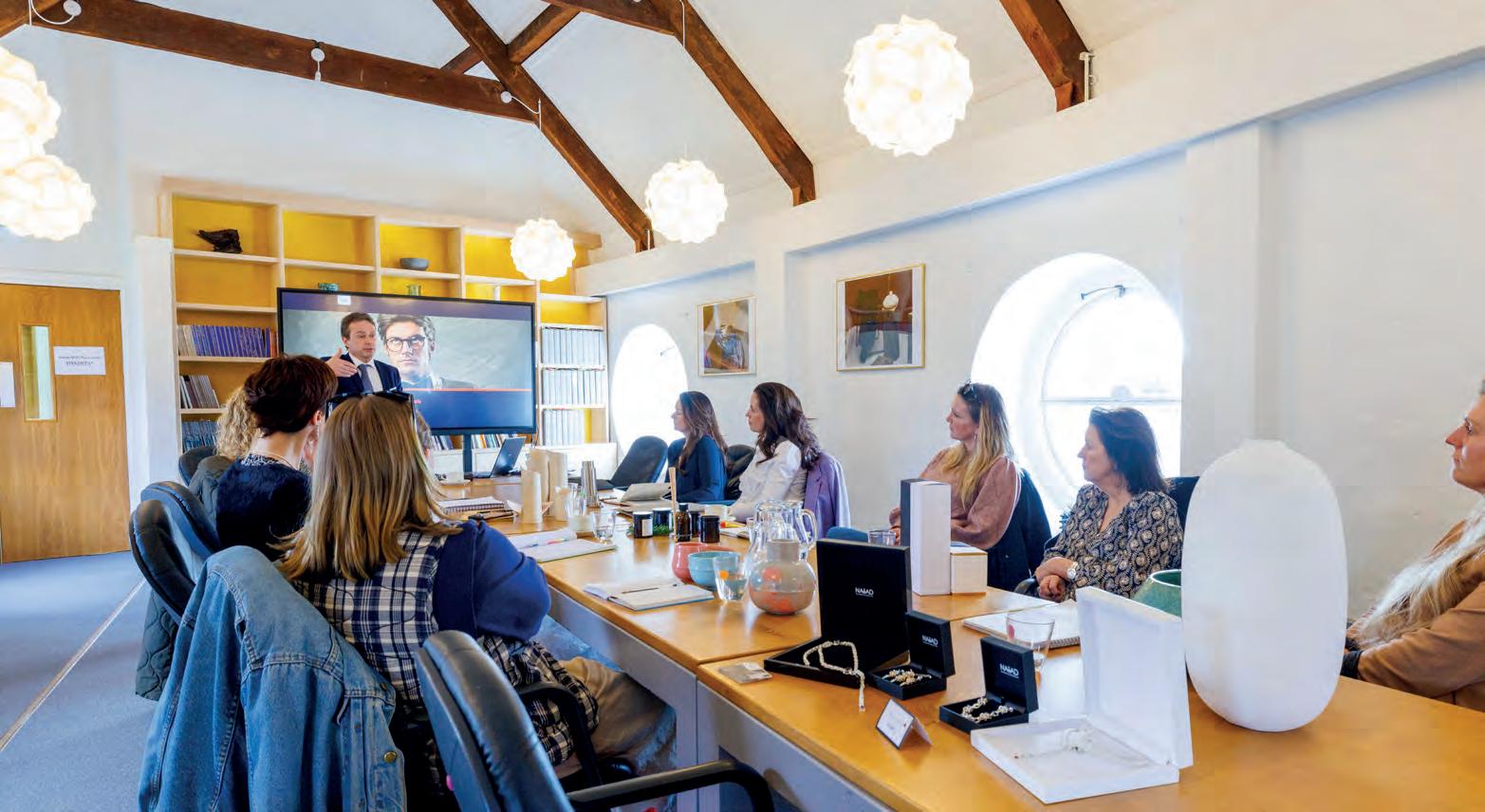
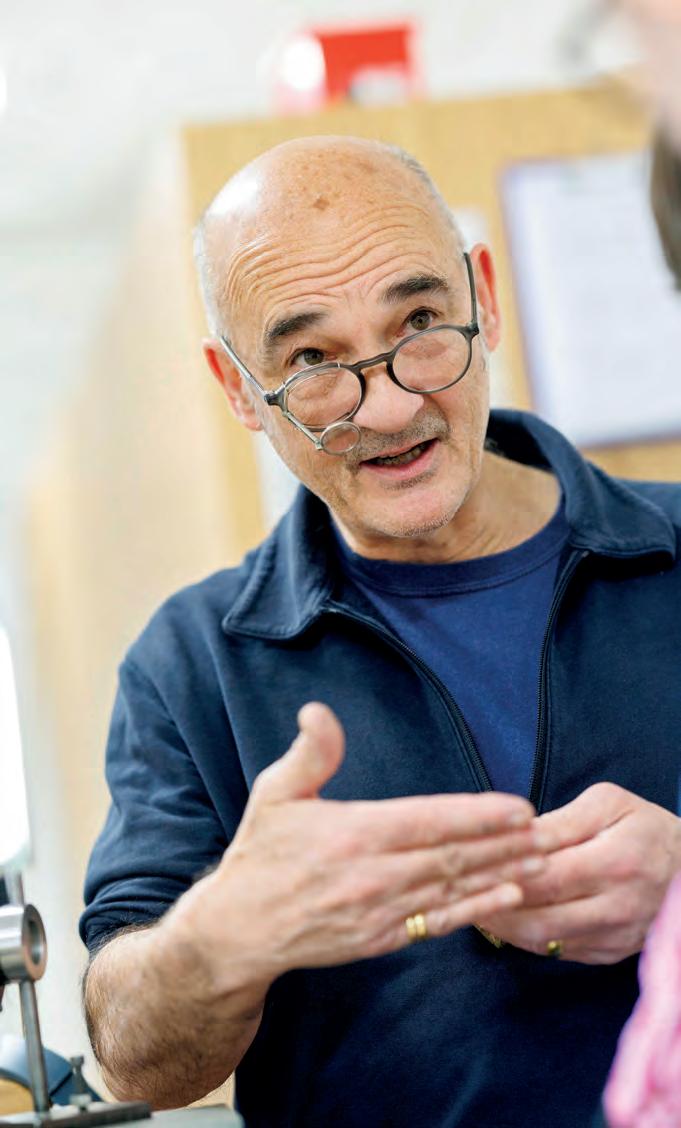

46%

part-time craft & design businesses

€97.56k
average revenue per full-time employee (up 10% from 2023)

1,813 participants in DCCI Made Local campaign (1,459 clients + 354 retailers)






65% implemented sustainability measures 61%

primary income sourced from full-time craft & design businesses
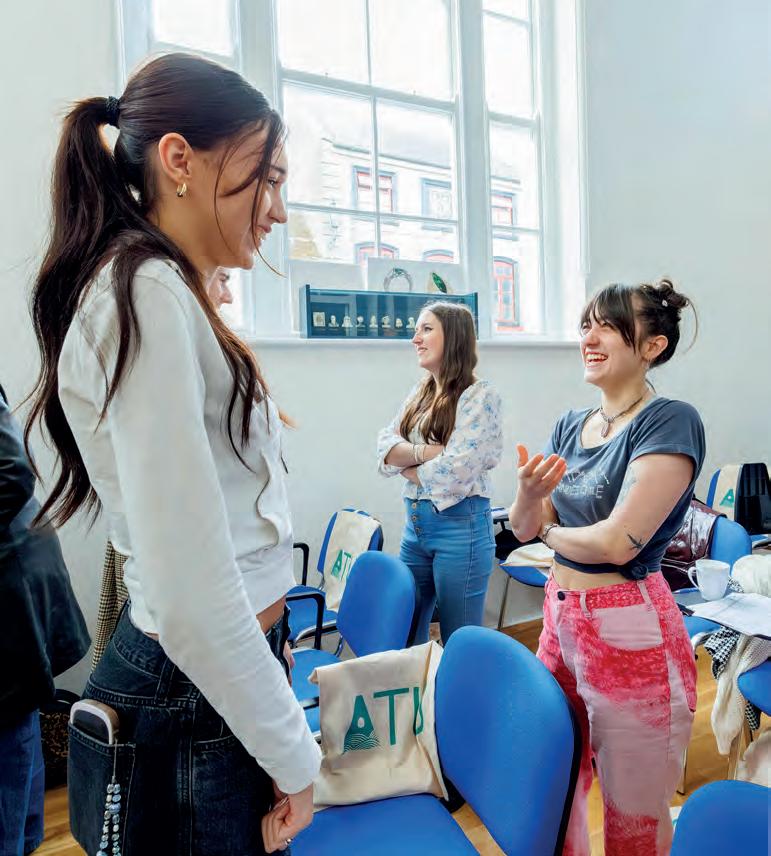
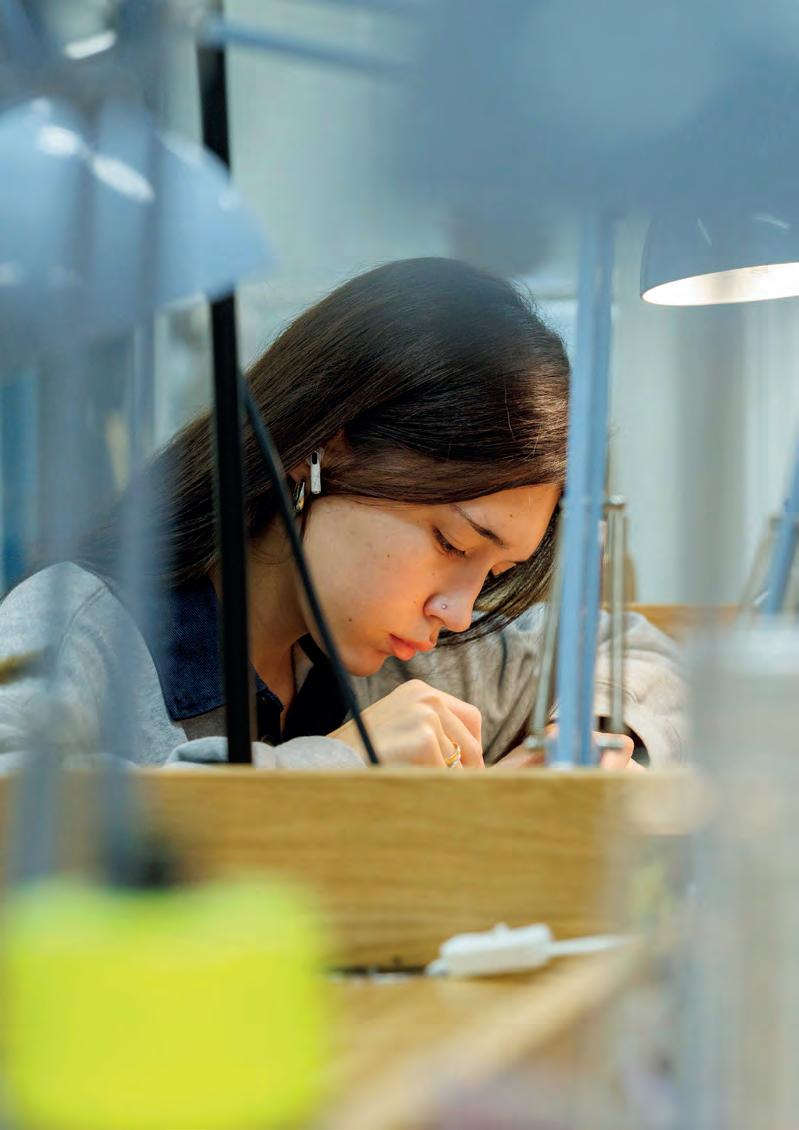
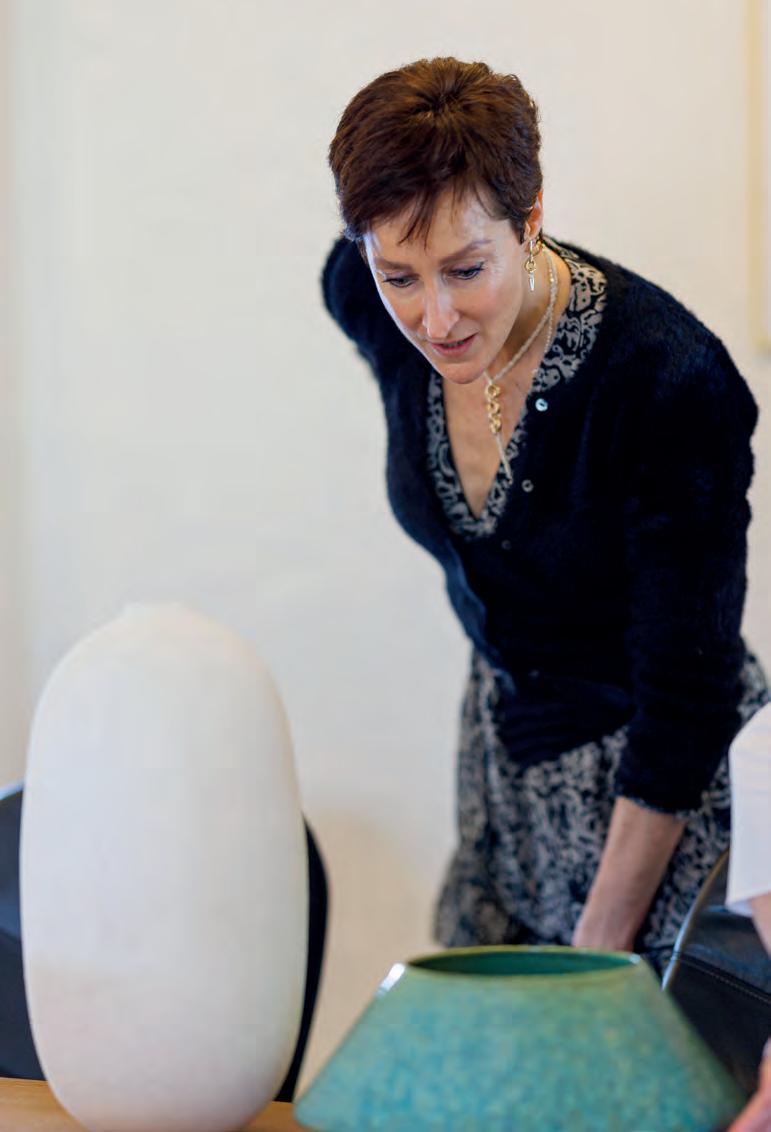
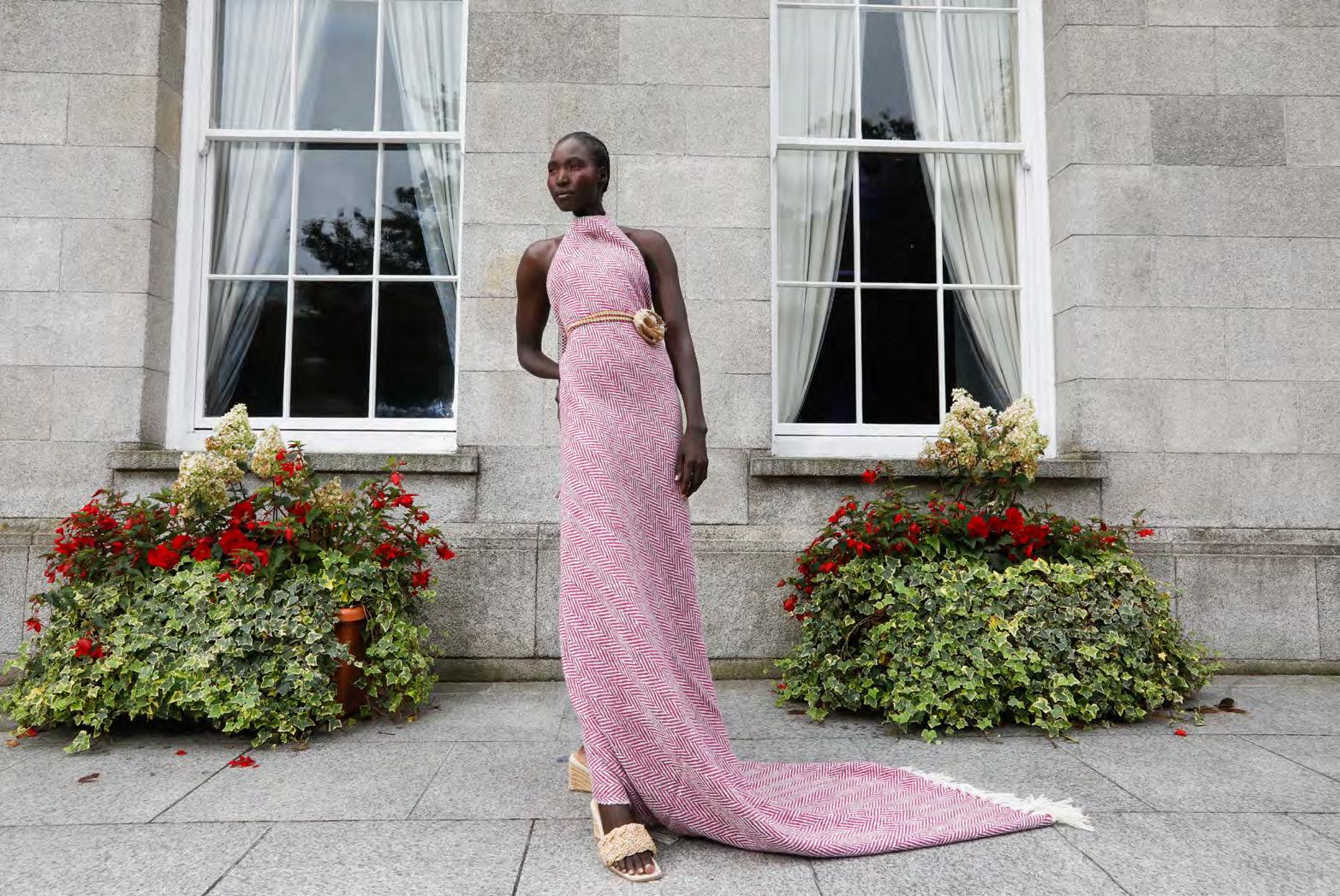
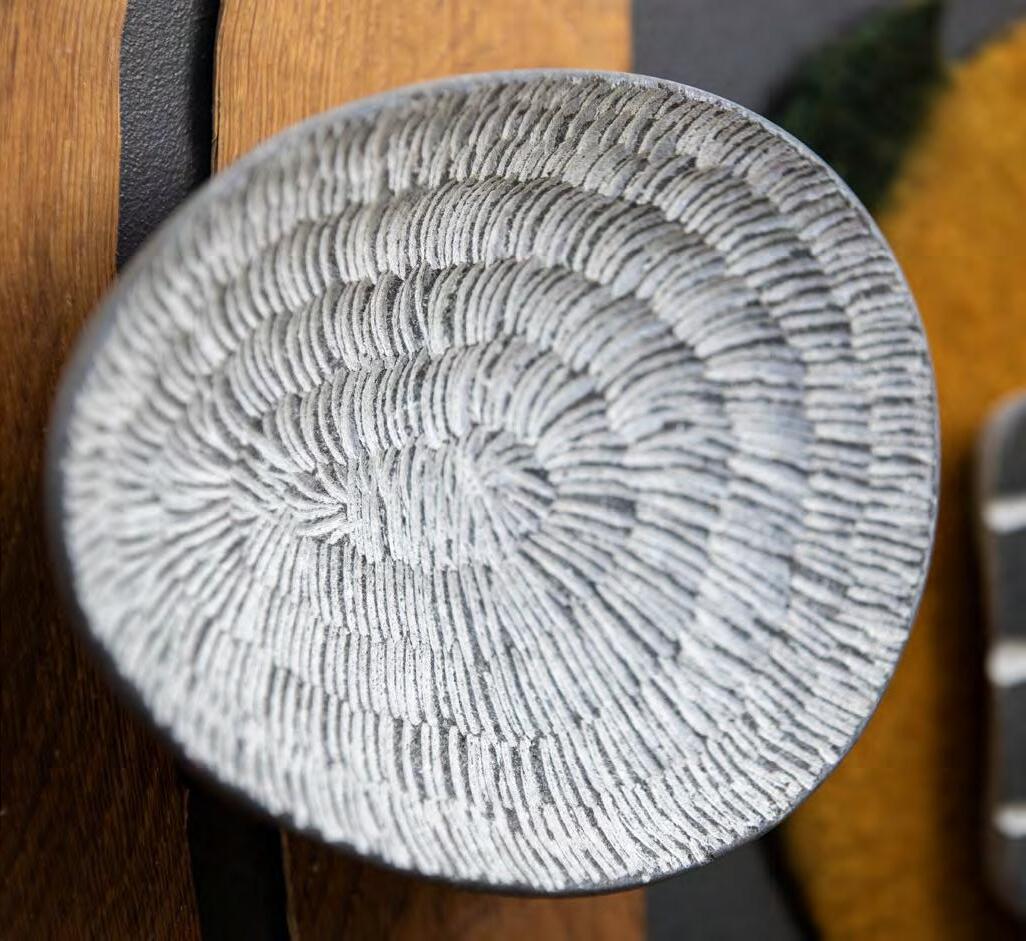
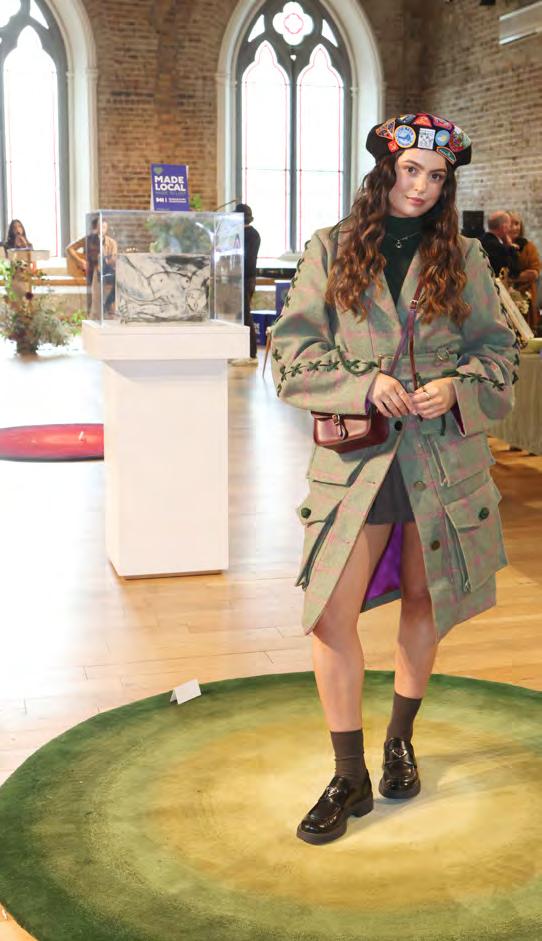
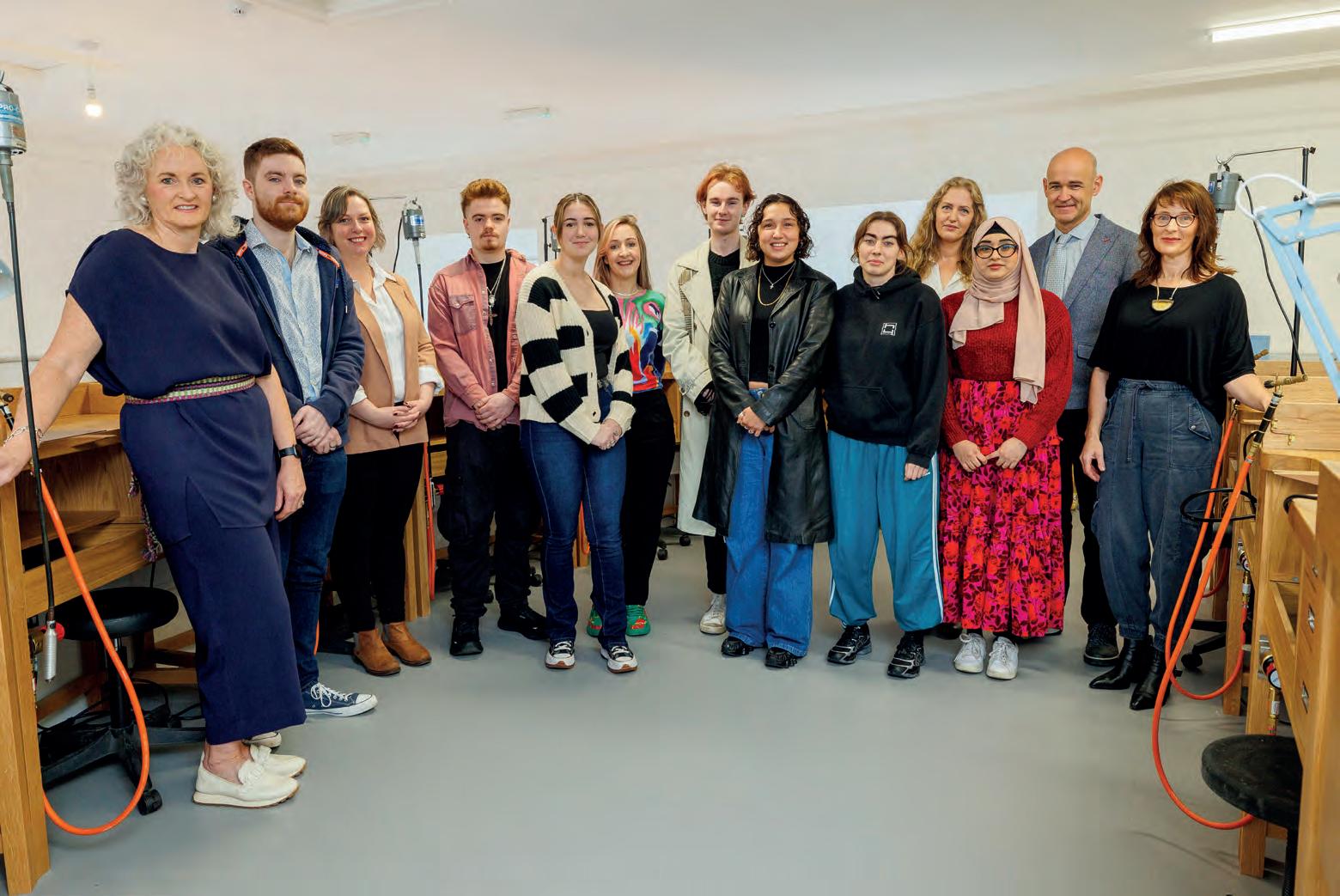

24 winners of Future Makers Awards in 2024

5
DCCI Academy education programmes: two x Growth Programmes; launch of Accelerator programme with Portal at Trinity College; Introduction to Finance programme and Foundation Programme



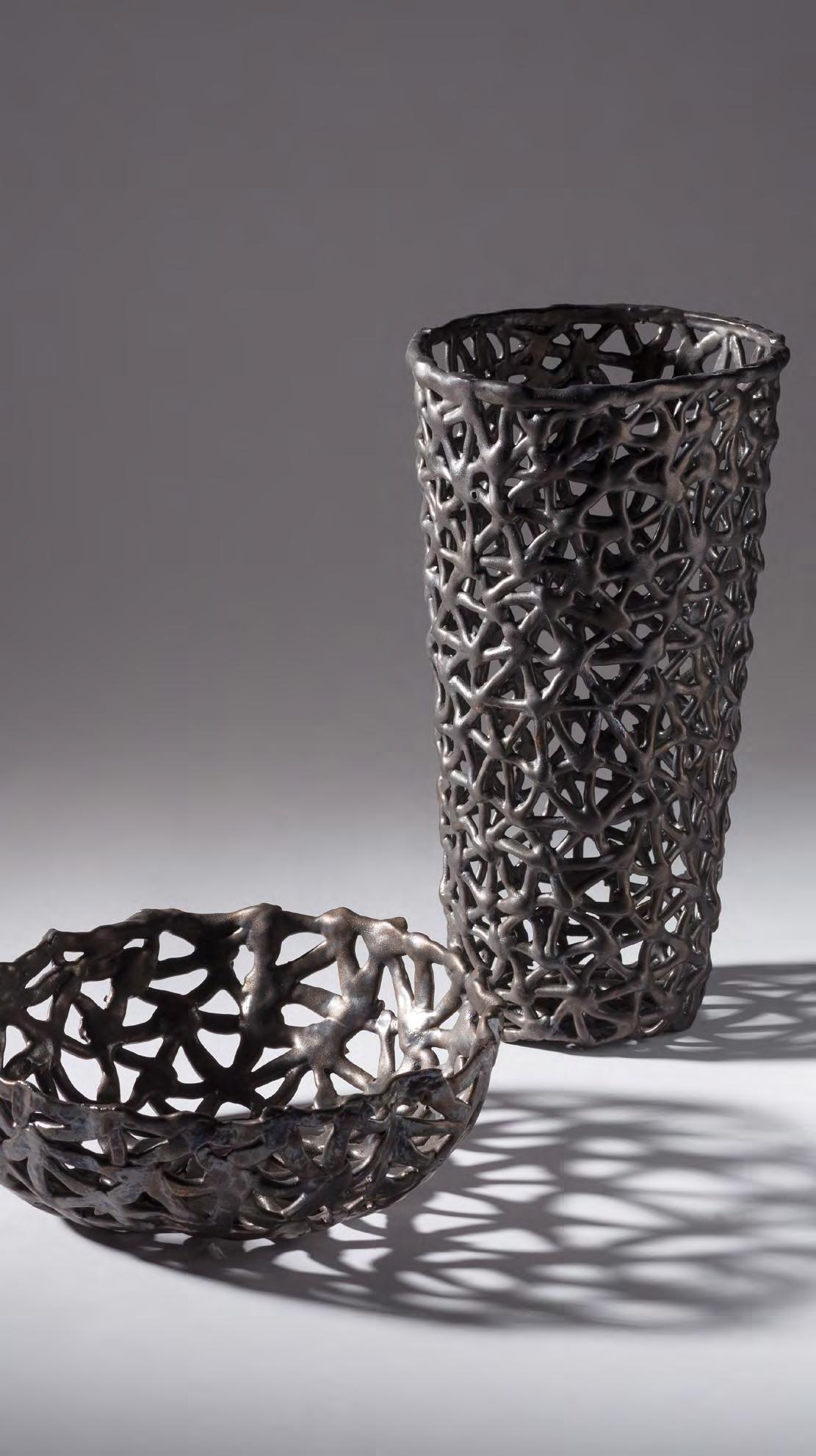
OPPOSITE PAGE
‘Holy Collection’ by mmceramics.
PAGE 50
Work by a student at the DCCIA open day.
PAGE 51
Machine being used at the
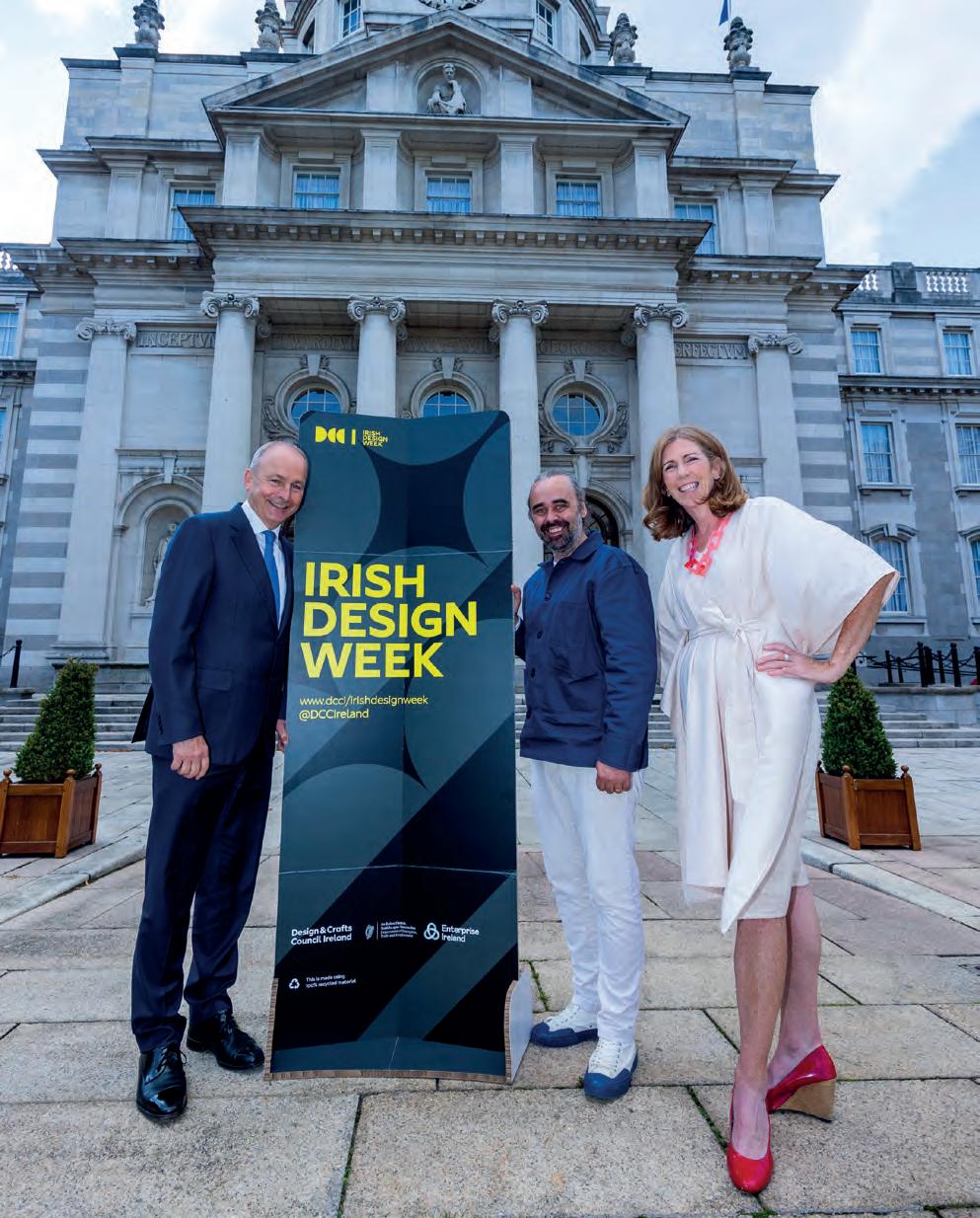
13
ministerial engagements with DCCI
336,906
organic engagement with DCCI social, web and exhibitions 23
strategic partners
Opening of the Bachelor of Arts (Honours) in Jewellery & Goldsmithing degree course with 16 students
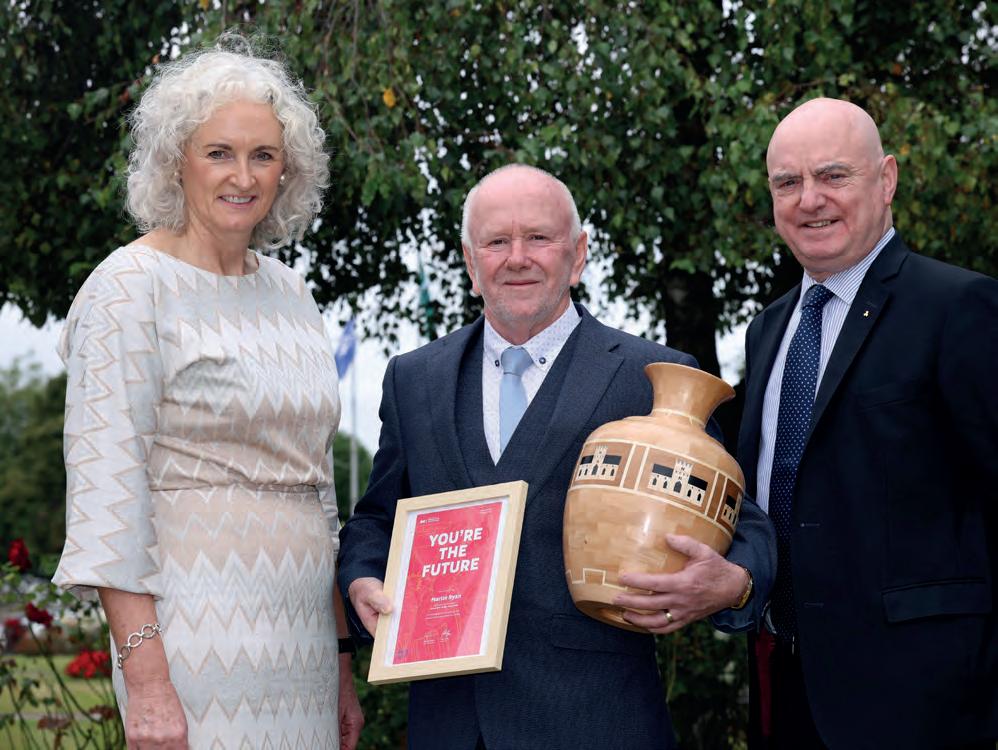
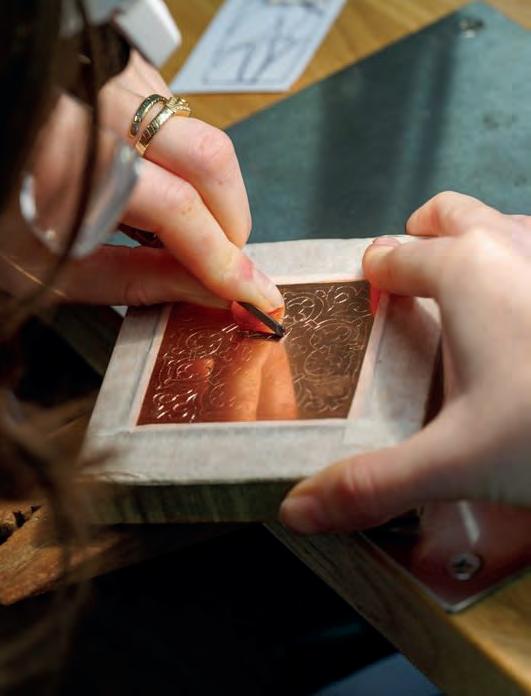
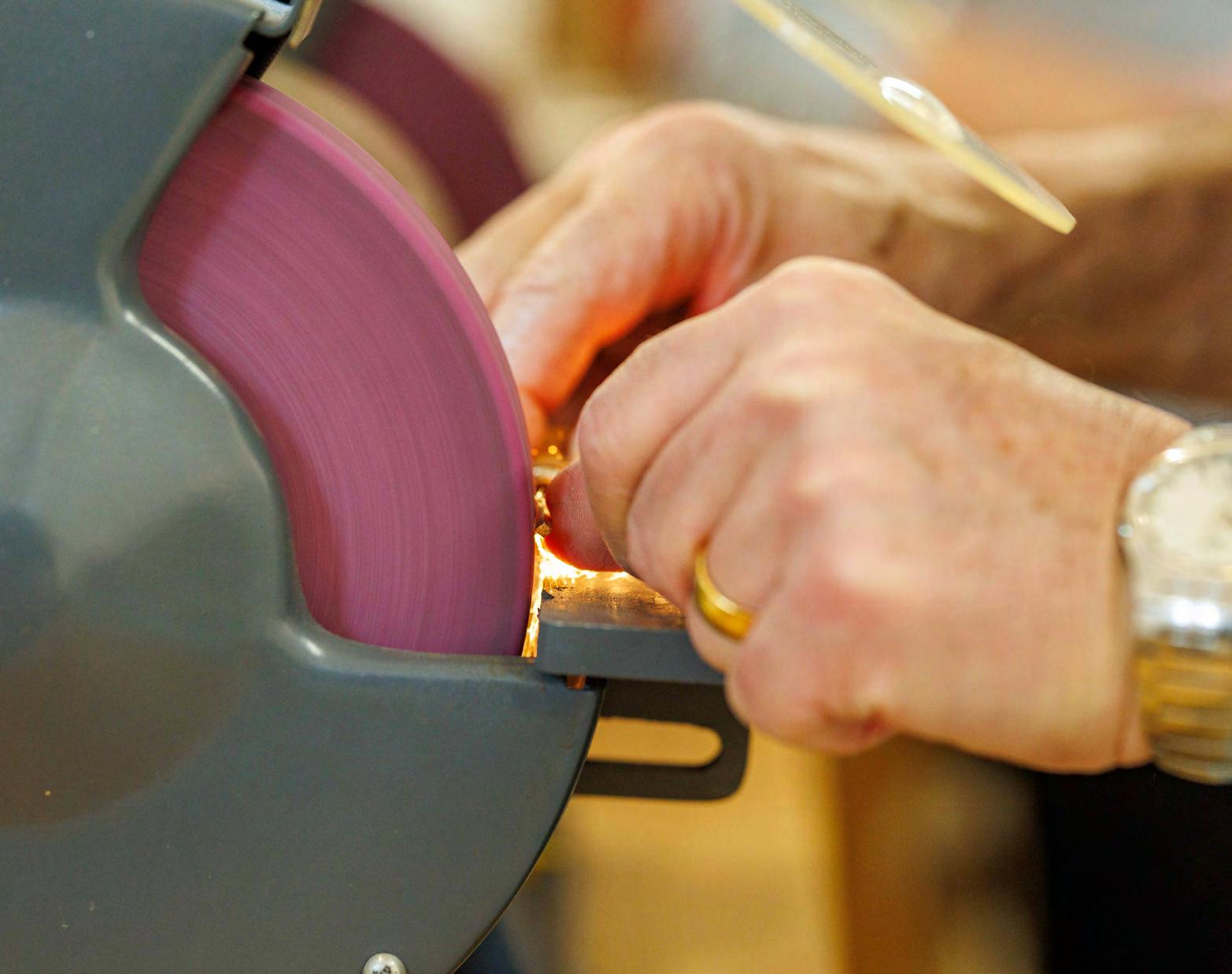
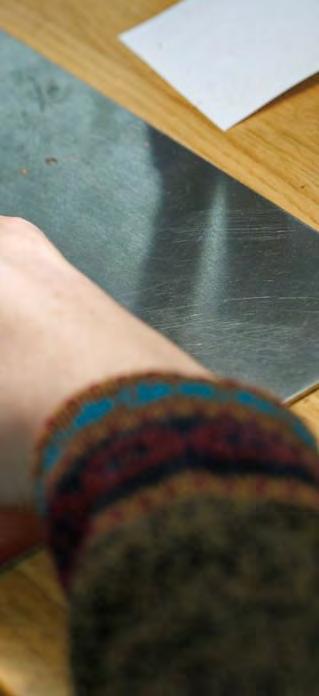
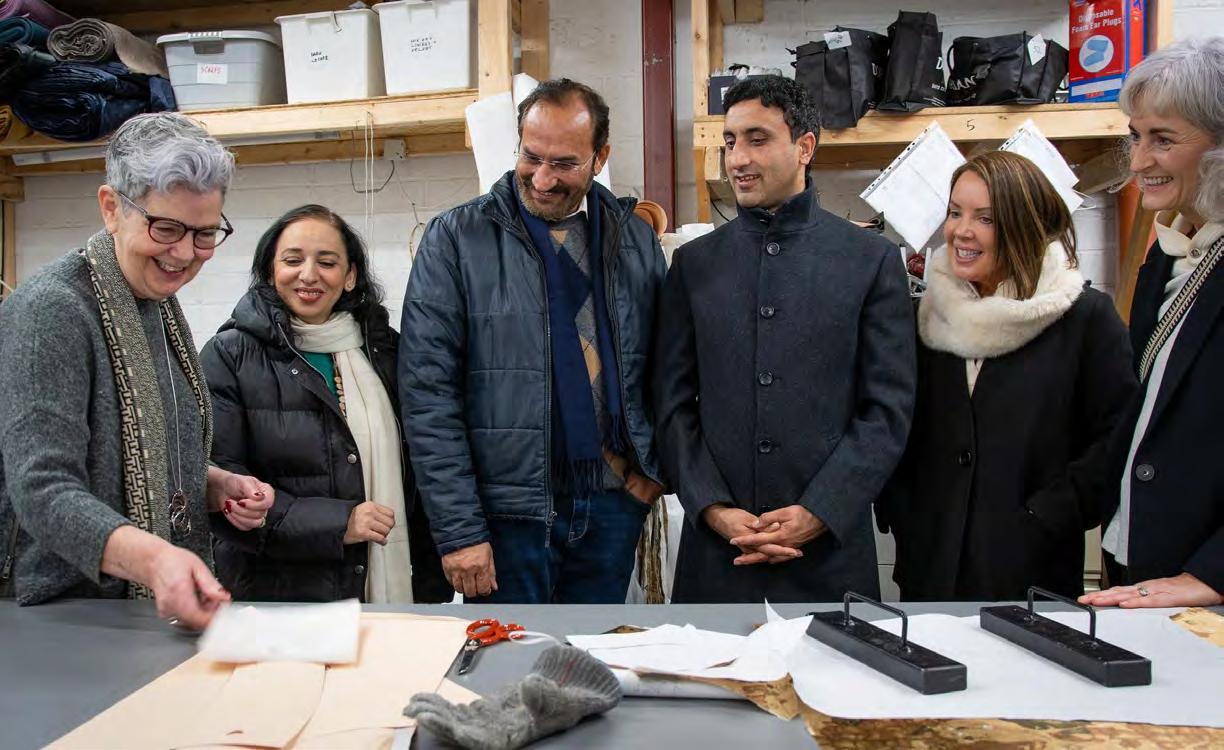
3.0 Our Business
& Crafts Council Ireland (DCCI) works with a diverse range of craft and design businesses spread across Ireland.
These businesses not only add to Ireland’s cultural and historical richness but also help the economy grow, create jobs, and maintain important skills. They produce unique, high-quality crafts in some of Ireland’s most beautiful places, which also offer visitors a unique experience.
DCCI is proud to collaborate with these craftspeople to aid in the improvement of skills and promote businesses that will ensure the design and craft sector in Ireland continues to thrive for future generations. 53
Breakdown of Register of Client Enterprises by county as of 31 December 2024
Donegal 116
Derry 23 Antrim 87
Tyrone 24
Fermanagh 16
Tipperary 105 Limerick 77 Cork 417 Kerry 138 Clare 97 Galway 211 Mayo 119 Sligo 73 Roscommon 39 Leitrim 54
Longford 19
Cavan 31 Westmeath 60
Offaly 46
Armagh 15
Louth 83 Monaghan 41
Meath 103
Kildare 137
Laois 52
Dublin 801
Wicklow 194
Down 94
Waterford 108
Kilkenny 145
Carlow 55
Wexford 144
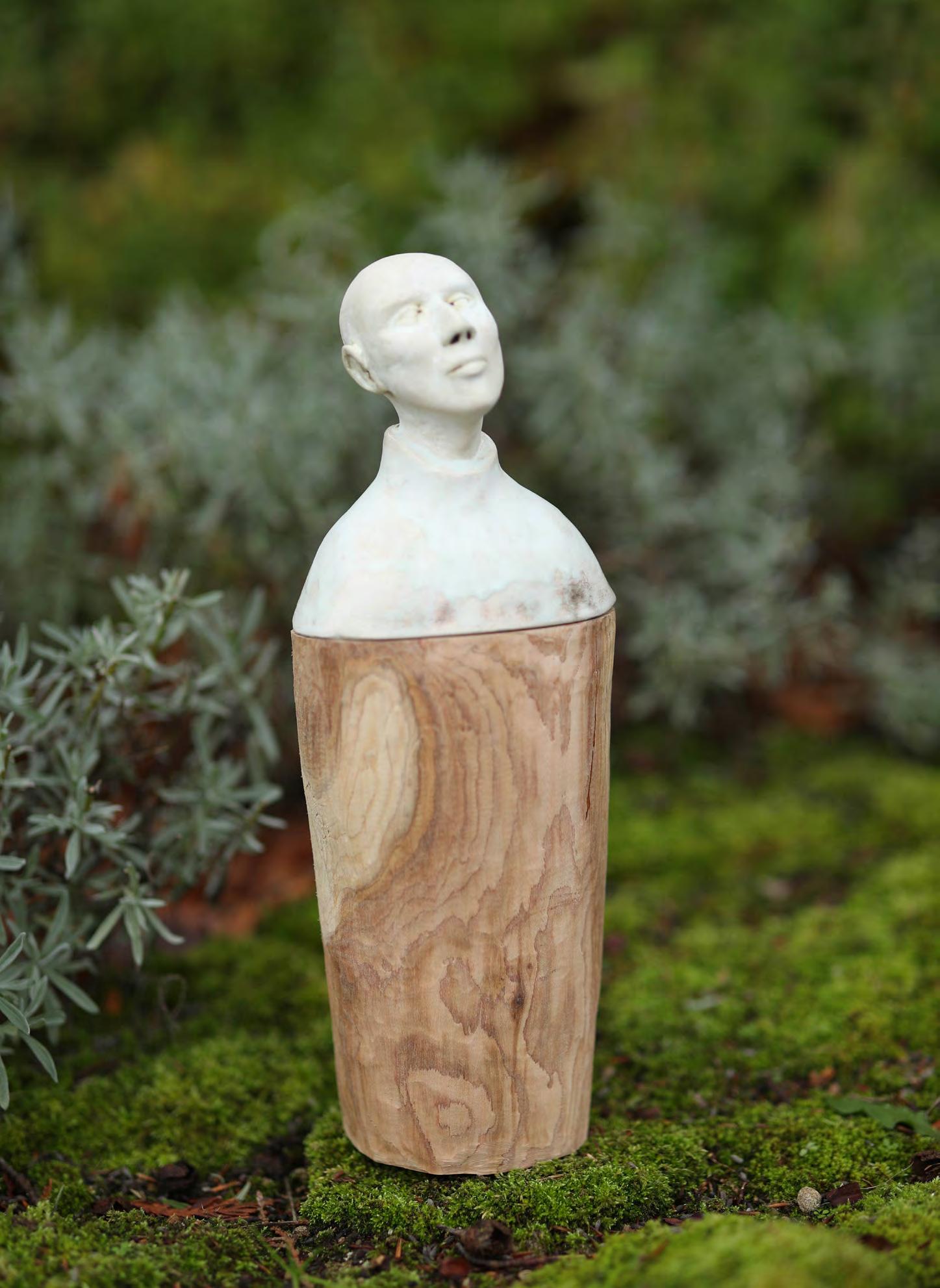
Key dates in the history of the Crafts Council of Ireland Limited, now trading as Design & Crafts Council Ireland.
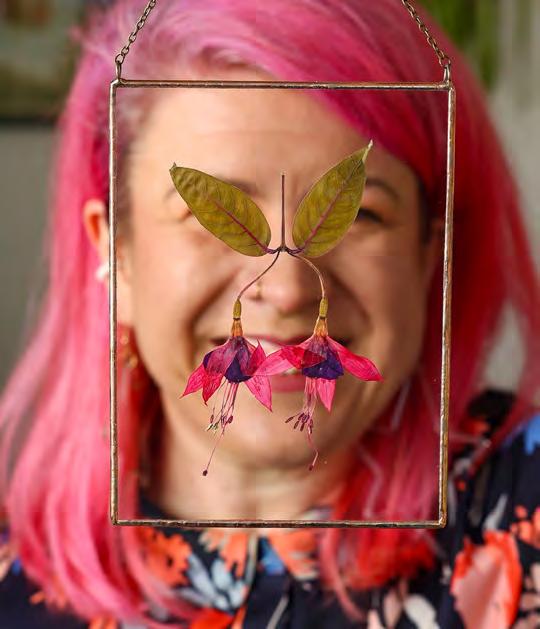
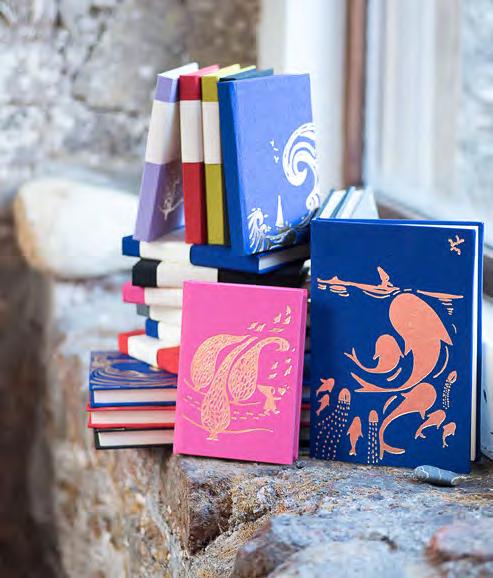
1970
World Crafts Council hosts its general assembly in Ireland
1971
Crafts Council of Ireland (CCoI) set up in Dublin as a voluntary body under the auspices of the RDS
1976
CCoI becomes a limited company, receiving funding from the minister for industry and commerce and from the Industrial Development Authority
1977
Showcase begins as the National Crafts Trade Fair
1980
CCoI business and skills training opens in Kilworth, County Cork
1986
CCoI administration moves to Powerscourt Townhouse Centre, Dublin
1989
CCoI business and skills training moves to the former Kilkenny Design Workshops in Kilkenny city
1990
CCoI opens the ceramics skills & design course in Thomastown, County Kilkenny
1993
CCoI opens the jewellery and goldsmithing skills & design course in Kilkenny
1997
CCoI administration moves from Dublin to Castle Yard, Kilkenny
2000
CCoI opens the National Craft Gallery in Castle Yard, Kilkenny
2011
CCoI designates 2011 as Year of Craft and celebrates the sector in partnership with Craft Northern Ireland and a network of strategic partners throughout Ireland and internationally
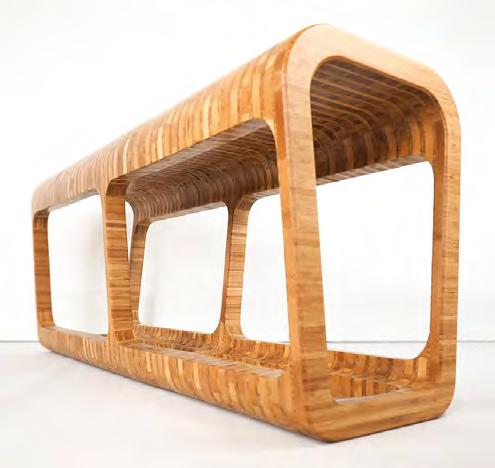
CCoI marks the fiftieth anniversary of the founding of Kilkenny Design Workshops, and a proposal is made at the Global Irish Economic Forum to designate a year to celebrating and promoting Irish design
2014
CCoI changes its trading name to the Design & Crafts Council of Ireland (DCCoI) following the signing of a service-level agreement with Enterprise Ireland, and launches Irish Design 2015 (ID2015)
DCCoI convenes the year-long governmentbacked ID2015 initiative, exploring, promoting and celebrating Irish design throughout Ireland and internationally to drive job creation, grow exports and increase competitiveness
2016
A study on the design sector commissioned as part of ID2015 results in the government publication Policy Framework for Design in Enterprise in Ireland, and DCCoI is mandated by government to work with partner organisations in leading the development of a design strategy for Ireland
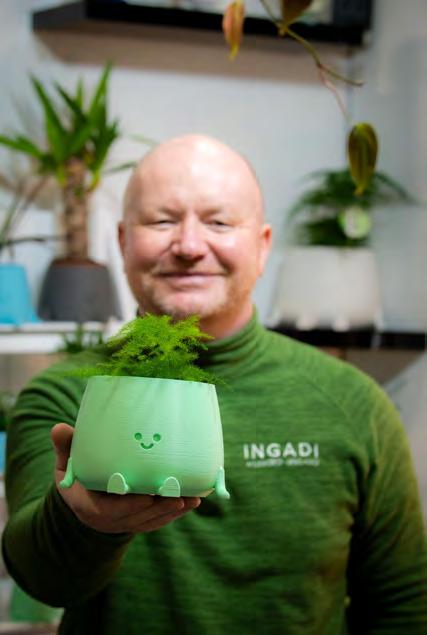
DCCoI publishes Ireland – the Design Island: A Consultation Paper Towards a National Design Strategy, leading to the establishment of the country’s first ministerial-led National Design Forum
DCCoI collaborates with partners in advocating for the development of design infrastructure, leading to the provision of a National Design Centre as part of the National Development Plan 2018 – 27 and funding of a National Design Innovation Hub for the South-East under the Regional Enterprise Development Fund
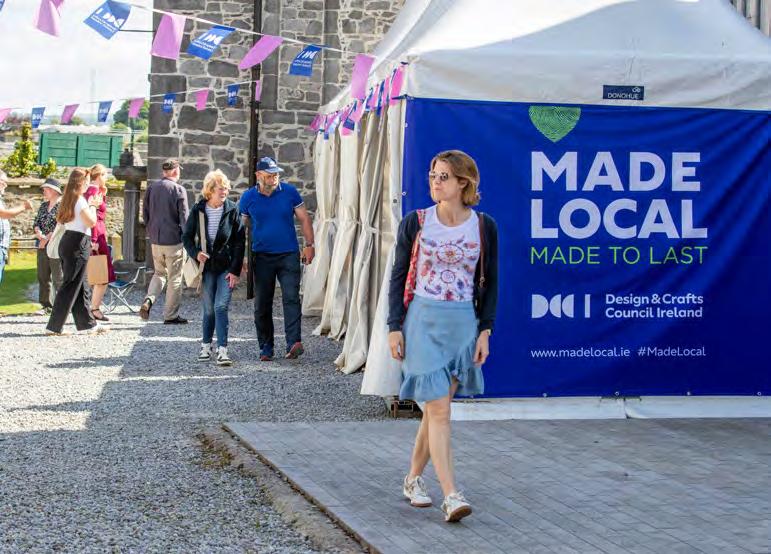
2019
DCCoI updates its trading name to Design & Crafts Council Ireland (DCCI).
The Design Ireland shop is officially opened at Terminal 2, Dublin Airport. It is operated by The Loop, with the store-name brand under licence by DCCI
2020
Andrew Bradley appointed chair of Design & Crafts Council Ireland.
DCCI began plans for the Sessions House building in Thomastown, County Kilkenny, to develop it into the first purpose-built property — jewellery and goldsmithing school — acquired in DCCI’s history
2021
Design & Crafts Council Ireland marked its fiftieth anniversary through a series of events and exhibitions held in Dublin Castle in October, honouring contributors to the rich tapestry of design and craft practice in Ireland. Following the AGM and the meeting of the WCCE, President Michael D. Higgins and Sabina Higgins attended a reception to present the Lifetime Achievement Award to Joe Hogan
2022
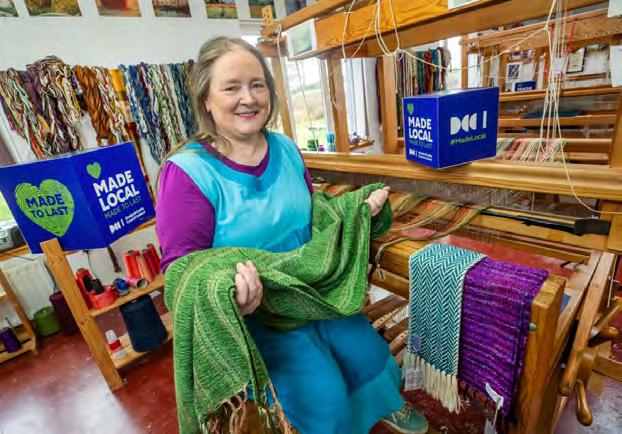
2022 marked the first year of the new five-year strategy outlined by Design & Crafts Council Ireland (DCCI). The very first all-island August Craft Month in collaboration with Craft NI and Cork Craft & Design took place throughout the month of August. In alignment with its new strategy, DCCI championed design across Ireland with its inaugural Design Week in November through a programme of 72 events in venues across Ireland
2023
Sessions House, Thomastown was officially opened in May by Heather Humphreys TD, Minister for Social Protection and Minister for Rural and Community Development. Owned by Kilkenny County Council, the building has been completely redeveloped to facilitate the DCCI Academy jewellery school. New chair, Peter Hynes, and three new ministerial appointees joined the DCCI Board in December
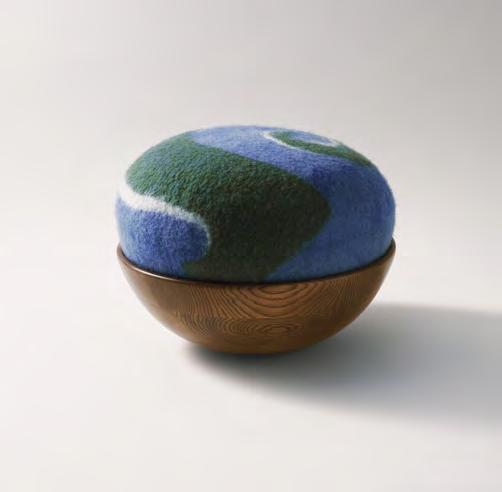
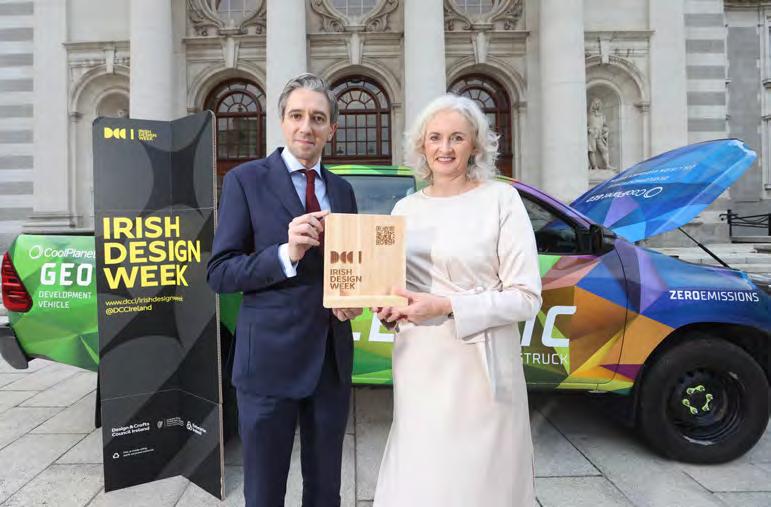
The DCCI Academy (DCCIA) at Sessions House, Thomastown, Co Kilkenny opened its doors to the first cohort of (16) students of the new three-year Bachelor of Arts (Honours) in Jewellery and Goldsmithing in September 2024
In leadership changes, Mary Blanchfield, DCCI Head of Operations, was appointed Interim CEO in September and five new board directors were elected to the DCCI Board in May
The Royal Irish Academy of Music (RIAM) set the stage as the home of Irish Design Week in November. The programme which included events taking place all over Ireland, focused on the theme ‘Imagination for Opportunity,’ and gave designers a platform to present new ideas and solutions for opportunities and challenges in Ireland and beyond. Notable speakers included fashion designer Colm Dillane from KidSuper, world renowned architect Mariam Issoufou, Sir David King, head of the Climate Change Advisory Group (CCAG) and Norman Crowley, founder of Irish companies CoolPlanet and AVA
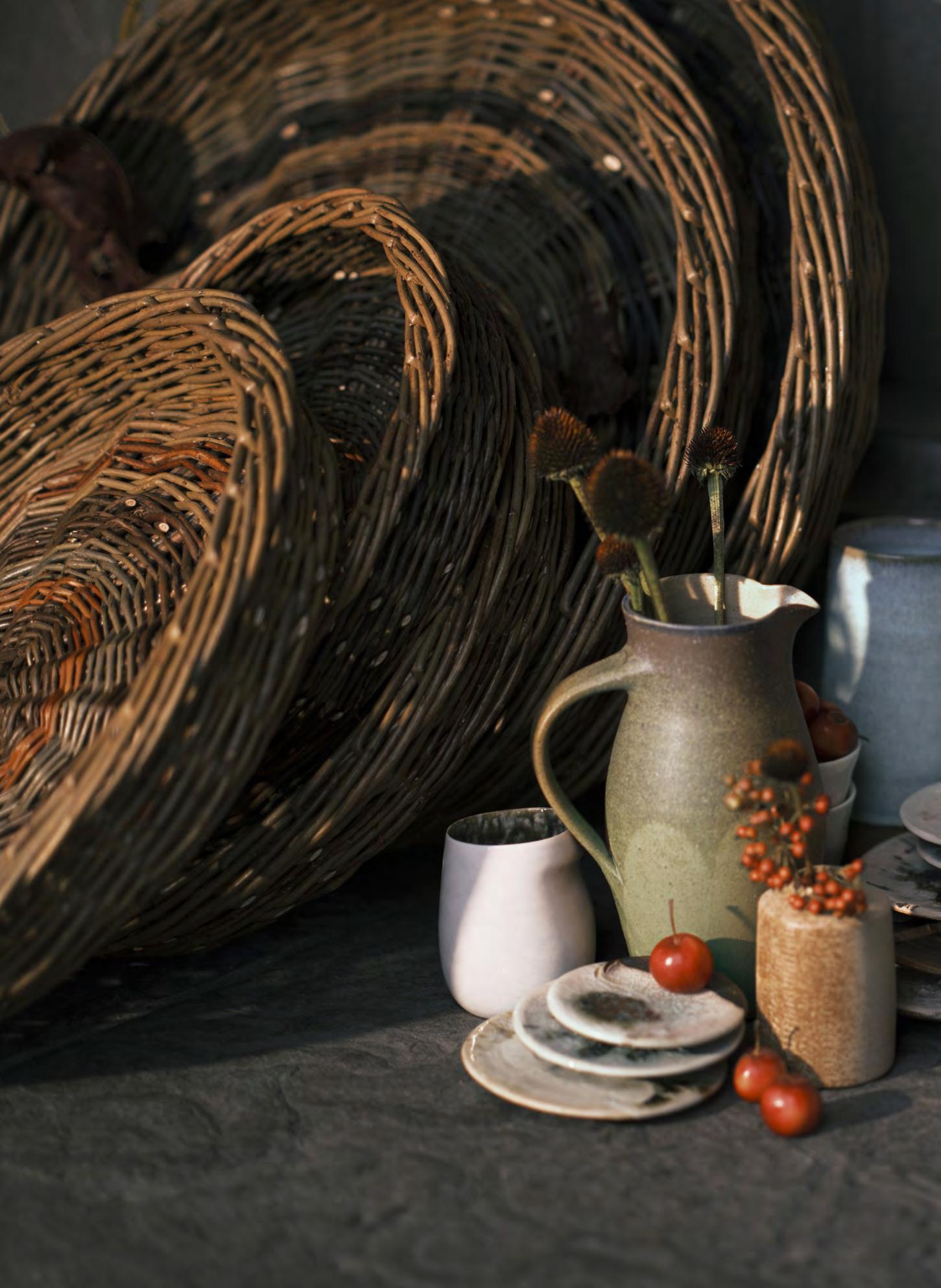
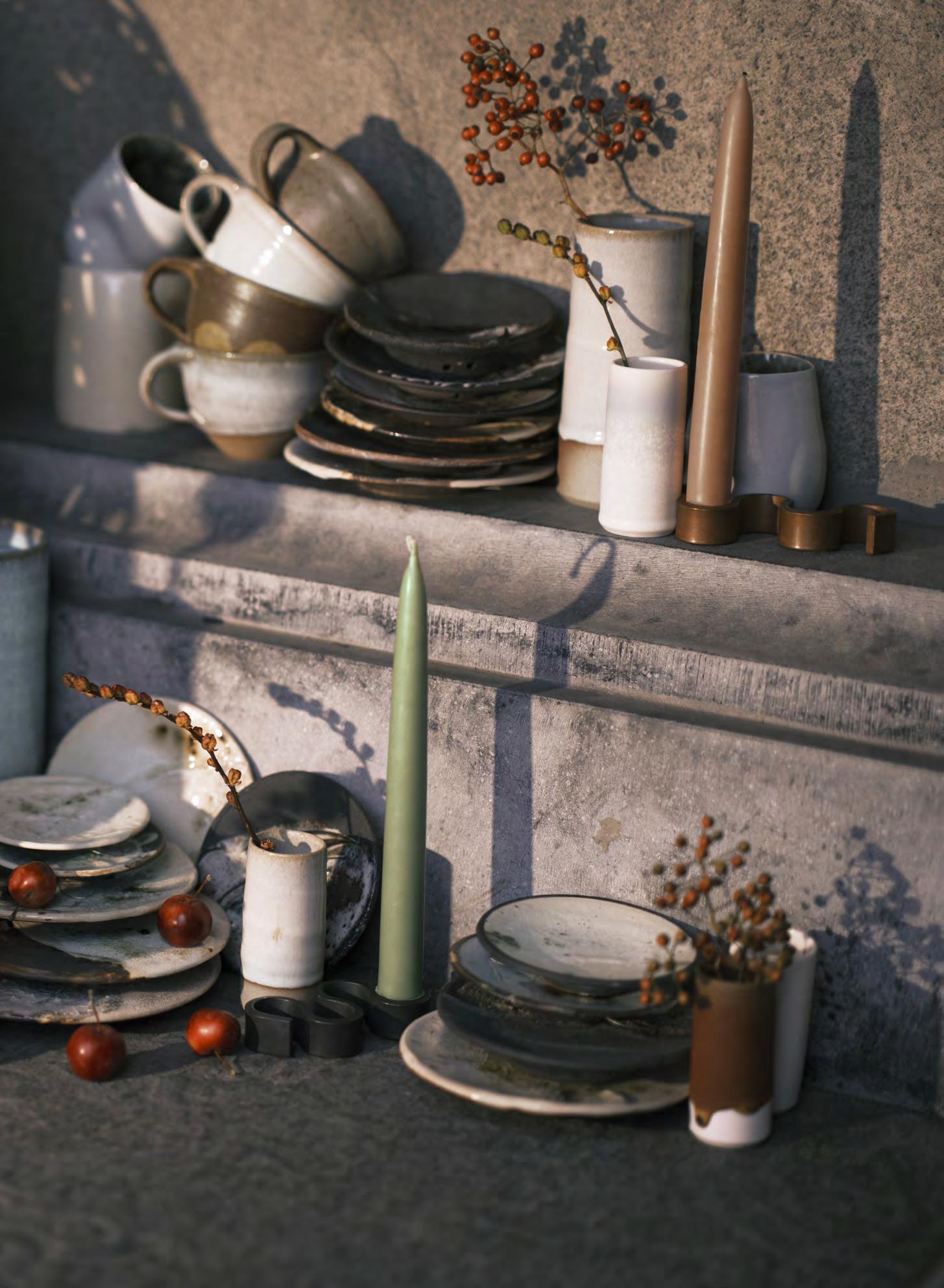

In this section, we present a summary of the involvement of member organisations, clients, partners and others in DCCI programmes and events during 2024.
Total number of attendees to Irish Design Week – in person & remote
Commercial & NDC Gallery
Businesses exhibiting at Showcase
Sales value at Showcase 2024
Number of makers attending Bloom 42 plus seven GANS involved in demonstrations
Number of makers attending Gifted
Visitors to National Design & Craft Gallery (NDCG) exhibitions in 2024
Designers and makers involved in the exhibitions programme
Irish designers and makers involved in the exhibition programme
Exhibitions in 2024 programmes (Kilkenny and touring) 4 at NDCG & 1 at COLLECT 2024
Exhibitions toured to other galleries 1 (COLLECT)
4.0 Our Governance
DCCI is a company limited by guarantee without share capital. It is governed by its memorandum and articles of association and operates under the aegis of the Minister for Enterprise, Tourism and Employment.
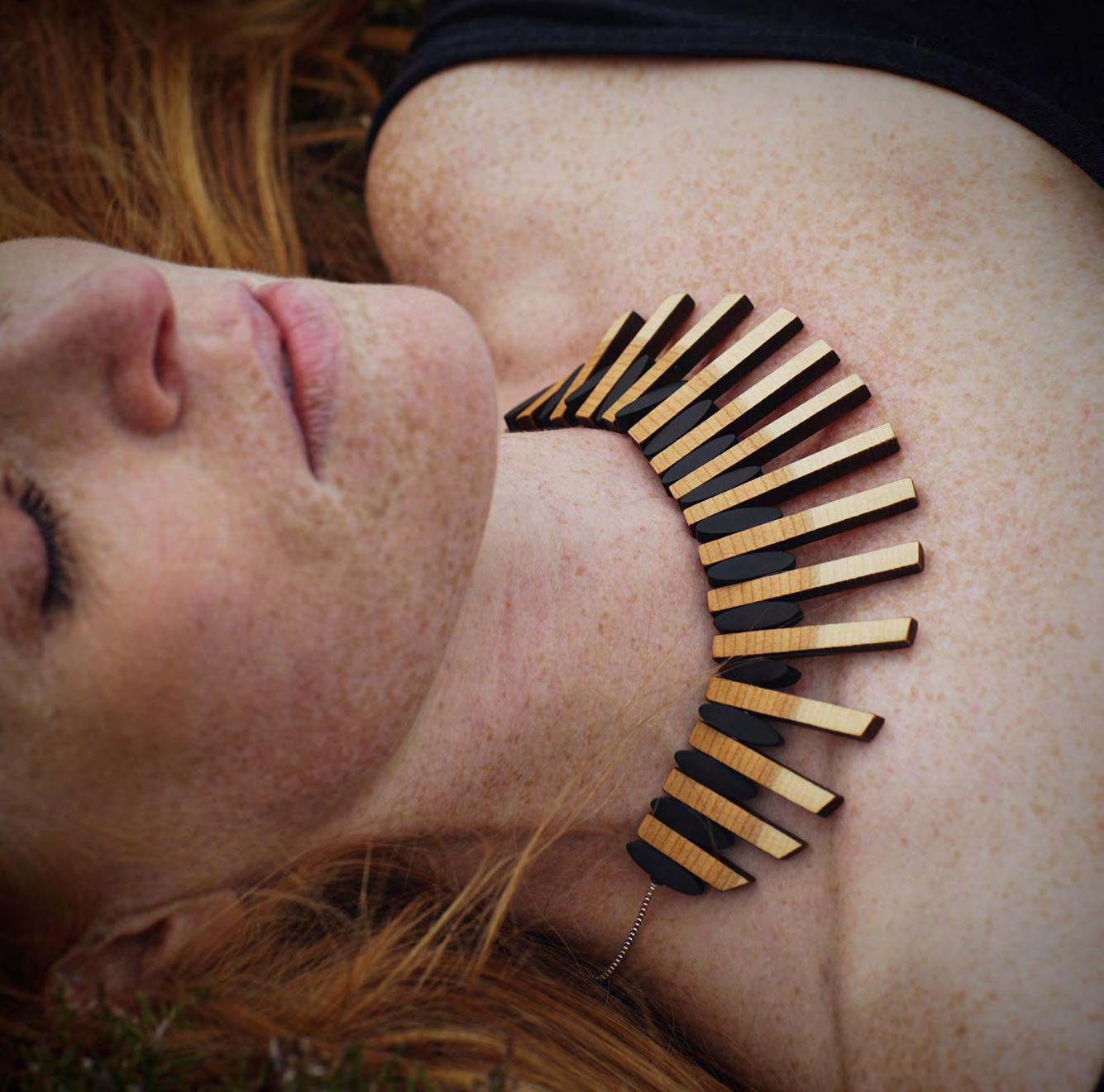
The DCCI Board is responsible for the governance of the company in line with best practice and by adhering to the obligations of the company as set out in the Code of Practice for the Governance of State Bodies. DCCI is required to comply with the provisions of the code insofar as is applicable to the structure and nature of the company. Four of the twelve Board members are appointed by the Minister for Enterprise, Tourism and Employment and eight Board members are elected by DCCI’s member organisations at its annual general meeting.
Five new board members were elected at the DCCI AGM on 28th May 2024. Induction training for the new Board members took place with the Institute of Public Administration in January and June 2024, updating all members on their responsibilities and other relevant matters.
DCCI is committed to complying with its responsibilities as a government-funded body. Our expenditure complies with the Public Spending Code, which sets out the obligations of public bodies to treat public funds with care, and to ensure that the best possible value is obtained whenever public money is being spent or invested.
We are also committed to meeting our obligations under:
The Code of Practice for the Governance of State Bodies, 2016
The Ethics in Public Office Act, 1995 and 2001
The Freedom of Information Act, 2014
The Official Languages Act, 2003
Prompt Payment of Accounts Act 1997
The General Data Protection Regulation, 2018
DCCI is also committed to improving energy efficiency in line with our obligations under the National Energy Efficiency Action Plan, the European Communities (Energy End-use Efficiency and Energy Services) Regulations 2009 and SI 426 of 2014.
DCCI Promotes and Values Diversity Across All Our Sectors
The board is responsible for overseeing the broad strategy and policies of the organisation. It is responsible for the systems of internal financial control in the company and for ensuring that the company has processes and procedures in place to ensure that the systems are effective. It performs these functions directly and through the operation of specific Board committees in accordance with approved terms of reference.
There is a formal schedule of matters reserved for the decision of the Board in accordance with best practice. Responsibility for implementing policy rests with the Executive Management Team of DCCI. The Board provides the appropriate level of skill and experience to support the strategy of DCCI.
Ministerial Appointees
Peter Hynes (Chair)
Anne Lanigan
Rhona Murphy
Caroline Reidy
Elected Representatives
Cathy Burke
Imelda Connolly
Jade Hogan
Aoife Burke (elected 28/05/2024)
Alison Conneely (elected 28/05/2024)
Alan Meredith (elected 28/05/2024)
Don O’Neill (elected 28/05/2024)
Siobhan Riordan (elected 28/05/2024)
Niki Collier (resigned 28/05/2024)
Berina Kelly (resigned 28/05/2024)
Edel MacBride (resigned 28/05/2024)
Kim-Ling Morris (resigned 28/05/2024)
The table below summarises the attendance of directors at Board meetings that they were eligible to attend during the year ended 31 December 2024.
6 Board meetings were held in 2024:
Director Board meetings attended/eligibility
Peter Hynes (Chair) (6/6)
Aoife Burke (4/4)
Cathy Burke (6/6)
Alison Conneely (4/4)
Imelda Connolly (6/6)
Jade Hogan (6/6)
Anne Lanigan (6/6)
Alan Meredith (3/4)
Rhona Murphy (6/6)
Don O’Neill (4/4)
Caroline Reidy (5/6)
Siobhan Riordan (4/4)
Dr Niki Collier (2/2)
B erina Kelly (2/2)
Edel MacBride (2/2)
Kim-Ling Morris (2/2)
B oard members also participated in a number of committees. For details, please visit section 4.5 Our Committees on page 86.





Peter Hynes, Chair
Peter is an Architect, he studied Architecture at University College Dublin and the University of Virginia. Peter was Head of the Architects Department of Mayo County Council where he led on the design and delivery of a range of public buildings, urban interventions and arts and community projects countywide. He was appointed Mayo County Manager in May 2010 and later Chief Executive in 2014. For a decade he worked consistenly to support Enterprise and Investment in a drive to build a county which he describes as “Sustainable, Inclusive, Prosperous and Proud”. In 2022, Peter establised his own consultancy firm providing strategic development and Community engagement.
Peter is a keen photographer and a board member of a number of not-for-profit organisations. He has served on the boards of institutions including Ireland West Airport and Western Development Commission and is currently a member of Council and honorary treasurer of the RIAI and an academician member of the Academy of Urbanism.





Anne Lanigan
Anne is Enterprise Ireland’s Divisional Manager for Technology and Services. Prior to this role, Anne led Enterprise Ireland’s response to the changed trading relationship with the UK as the head of Enterprise Ireland’s Brexit Unit, before moving to the role of Director of Eurozone & Central, Eastern Europe where she was responsible for the organisation’s activities across their 11 offices in Europe, which are focused on increasing export growth into the single market.
She joined Enterprise Ireland in 2003 and her distinguished career in the organisation has included a number of leadership roles and senior positions in the Enterprise Ireland head office in Ireland, as well as across their network of international offices. She previously served as Enterprise Ireland’s Director in Japan, before going on to hold a role in the Enterprise Software Solutions Department. She also worked as a Client Engagement Adviser before managing the HPSU team for a period.










Rhona Murphy
Rhona is an experienced non-executive director who serves on the board of The Irish Times DAC and Bus Éireann. She is also the Board Chair of the International Consortium of Investigative Journalists (ICIJ).
Rhona started her media career at The Times of London after graduating from Trinity College Dublin. In her executive career, Rhona worked for Dow Jones/The Wall Street Journal in New York and Singapore. She then moved to Newsweek where she became Global Publisher and CEO of the combined Newsweek and The Daily Beast in New York.
Caroline Reidy
Caroline is Managing Director of the HR Suite, set up in 2009, and a HR and Employment Law Expert. She is a former member of the Low Pay Commission and is also an adjudicator in the Workplace Relations Commission. She is also an independent expert observer appointed by the European Parliament to the Board of Eurofound.
Caroline completed a Masters in Human Resources in the University of Limerick, she is CIPD accredited as well as being a trained mediator. She has worked across various areas of HR for over 20 years in the corporate, retail and hospitality sector. She holds a Diploma in Company Direction with the Institute of Directors. Caroline is a regular conference speaker and contributor to national media and is recognised as a thought leader in the area of HR and employment law. Originally from Ballyheigue Co. Kerry, she lives in Dublin and is very proud of her Kerry roots.









Cathy Burke
Cathy is a ceramicist based in County Wicklow. She has exhibited her work in Ireland, Europe, the UK, Korea and Japan. Her work has been purchased by public and private collectors at home and abroad.
Cathy sees education; skill development and continual practice support as crucial elements in the success of the designer maker industry in Ireland. An advocate for diversity in design, craft and making in Ireland she wants to champion all aspects of creativity.
As a maker with experience of exhibiting on the world stage she understands the need to develop the opportunities available to makers particularly in terms of developing an international audience. Cathy is passionate about promoting Irish design and craft to maximise the reputation of Irish makers on an international stage.









Imelda Connolly
Imelda is a highly experienced and motivated Management Professional with a demonstrable track record of effective leadership and financial management of a number of companies. Results driven through the nurturing and growth of effective teams, and implementation of efficient systems and processes. Imelda is a very experienced negotiator who has effected satisfactory outcomes on behalf of her clients with Revenue Commissioners, Banks, Government Departments etc. She has a proven track record of generating value, driving strategic business performance, delivering performance improvement, developing, and mentoring teams and ensuring sound financial control.
Imelda has experience working on Company Boards having held Director and Secretary positions with a number of different companies and organisations. Imelda is currently chair of the Irish Woodturners Guild, having previously held the post of Treasurer for 4 years. She is also chair of a local development group and has worked with a number of NGO’s in the past.









Jade Hogan
Jade is a maker and craft business owner from Cork. She graduated from UCC and had a career in supply chain and logistics in a multinational for many years. She returned to study Textiles: Techniques and Materials in 2017 at Crawford College of Art and Design.
She co-founded a textile and homeware business, Mr Kite Designs, in 2016 and worked hard to establish a thriving enterprise which is now stocked in multiple outlets nationwide. Jade joined Cork Craft and Design in 2016, a major step towards turning her craft into a real business. The power of community and shared opportunities were what was needed to progress. She has been a board member of Cork Craft and Design since 2019, eager to contribute to a group that had been supportive of her own business.
Jade brings her love of craft and collaboration, experience of building a busy craft business and her organisational skills from her previous career to her role on the DCCI board. She aims to promote the work of all makers by highlighting the level of skill and quality available in the Irish craft sector on a national and international stage.

Aoife Burke
Aoife graduated as a glass artist from NCAD in 1996 and went on to work in glass studios in London before being awarded an 18 month scholarship to study glass in Japan.
Aoife has worked in sales and marketing in a number of fields. She qualified as a bricklayer and rose to management in construction. In 2010, she opened Cake Couture, a cake decorating business in Drogheda. It had a retail shop, two classrooms, a bakery and seven staff. Aoife’s philosophy is that creativity is a skill that can bring freedom, strength and connectivity.
Working together to lift each other’s skills is a huge driver for Aoife. In 2023 she spearheaded two very successful pop-up shops for makers in Powerscourt Townhouse in Dublin. She was President of Drogheda Toastmasters in 2010 – 2011 and served time on the committee of Louth Craftmark.

Alison Conneely
Alison is a designer, creative director & educator based between Dublin and the West of Ireland. She has worked in the eld of design for the last two decades, interfacing with major brands as a stylist and creative director. Alison has spearheaded her own brand creating a modern design mythology rooted in the lost traditions of the past, producing cutting-edge garments embedded with subtle historic symbolism. She is highly motivated by how Irish design can link the past and the present. Alison is ambitious for design thinking that touches aspects of shared community and politics, which has resulted in collaborations with leading contemporary artists, representing Ireland in the Venice Biennale, as well as major international organisations such as the United Nations. At the heart of this, is the process of collaboration. Past collaborators have included anthropologists, historians, composers, authors, human rights activists, doctors, silversmiths, museum directors, policymakers and master cra s artists.

Alan Meredith
Alan’s work to date straddles the boundaries of design, contemporary cra , sculpture and architecture and has been exhibited both nationally and internationally. Graduating with a Masters in Architecture from University College Dublin in September 2015, Alan currently works from his studio in County Laois, imagining and creating one of a kind and speculative pieces for both public and private clients. Completed projects include; one of a kind furniture, public space design, and a collection of sculptural wood-turned vessels.
Awards received include; e Golden Fleece Award, e Wood Awards Ireland — Furniture Category Winner. Alan’s work was exhibited at Collect, the Leading International Fair for Contemporary Cra and Design and Salon, Park Avenue Armory, NYC.

Don O’Neill
Don is passionate about cra and making. His creative specialization is Fashion design, having trained in Dublin and honed his skills at top fashion houses in London, Paris and New York. Over thirty years in New York he worked with world renowned artisans, textile artists, weavers, printers, lacemakers,embroiderers, knitters, and seamstresses.
Since returning to live in Ireland, one of his primary goals is to help shine a bright light on Makers in Ireland, to bring them much needed visibility and increase public awareness of their extraordinary skills. Don believes we should continue to fortify “Brand Ireland” abroad, and build upon our unique reputation for excellence in Design & Cra , which has enormous potential value and exponential growth opportunities in the international markets for our gi ed Irish makers, as we ensure the continued preservation of our unique cra heritage.

Siobhan Riordan
Siobhan has worked in the Design and Cra Industry for the past twenty ve years. Firstly, setting up and growing Alan Ardi Ltd, alongside Alan Ardi , who designs and manufactures unique kinetic silver and gold jewellery. e jewellery is sold in retail outlets both nationally and internationally in addition to strong e-commerce sales. All the jewellery is manufactured in a workshop in Dublin by a team of skilled jewellers. Siobhan manages all aspects of the business; commercialising designs, brand identity, e-commerce and marketing along with sta training and development.
Siobhan has served on the RDS Cra committee and subsequently worked as a judge for the RDS Cra Awards. She works as a mentor with the Dublin City Local Enterprise O ce (LEO), specialising in business development for creative enterprises. Siobhan has rst-hand experience of the vital issues a ecting the spectrum of design and cra enterprises in Ireland.
Rosemary Steen, Chief Executive1
Mary Blanchfield, Interim Chief Executive2
Marguerite Ryan, Executive Assistant to CEO
Craft & Education
Mary Jo Hoyne, Head of Craft & Education3
Maria Couchman, Senior Craft & Education Advisor4
Eimear Conyard, Jewellery Skills & Design Manager5
Amanda Walsh, Education, Training & Development Administrator6
Mary Whelan, Client Liaison Officer7
Laura Kane, Craft & Education Graduate8
Isha Tyagi, Head of Craft & Education9
Vicki Clough, Education Centre Manager10
Eimear Vize, Craft Tutor11
Martina Walsh, Education Administrator12
Sarah Foley, Education Graduate13
Commercial
Emma Dowling, Head of Commercial14
Brian Byrne, Gallery Co-ordinator
Oisín Doyle, Commercial Graduate15
Digital & Communications
Suzy O’Keefe, Head of Digital & Communications
Victoria Daly, Digital Marketing Manager
James Walsh, Digital Assistant16
Douglas Pereira, Digital Assistant17
Eimear Harding, Communications & Public Affairs Manager
Tan Christhoper Cristian Susanto, CRM Manager18
Eoin Drew, Digital & Communications Graduate19
Tom Watts, Head of Design
Steven McNamara, Design Project Manager20
Orla Bogue, Design Co-ordinator
Cameron Cavaliere, Design Graduate
Mary Blanchfield, Head of Operations and Company Secretary
Seamus Murtagh, Finance Manager & Data Protection Officer
Julie Jackman, Finance Assistant
Nuala McGrath, HR & Corporate Services Manager
Peter Donohoe, Finance Graduate21
We also recognise the contributions of interns and short-term contractors who assisted the organisation during the year.
Notes
1. Up to 30th August
2. From 30th August
3. Up to 19th July
4. Up to 5th January
5. Up to 12th June
6. Up to 16th October
7. Up to 2nd September
8. Up to 5th July
9. From 7th October
10. From 17th June
11. From 26th August
12. From 18th November
13. From 30th September
14. From 12th August
15. From 4th November
16. Up to 30th August
17. From 2nd September
18. Up to 27th September
19. From 29th October
20. From 15th July
21. From 4th September
Rosemary Steen, CEO
Rosemary Steen was appointed CEO of DCCI in January 2020. She came to DCCI after successful team leadership roles with EirGrid and Vodafone Ireland.
Earlier in her career she worked with IBEC, where she served as director of the Irish Textiles Federation, and was also a member of the National Economic and Social Council.
Rosemary has a MA in Business Studies from UCD, a BA (Moderatorship) in Economics and Philosophy from Trinity College, Dublin and a Diploma in Legal Studies from DIT. She has obtained both a Certificate and a Diploma in Company Direction from the Institute of Directors Ireland.
Outside of her work with DCCI, Rosemary also works in roles to support inclusion and diversity in the voluntary and education sectors.
Rosemary left DCCI on 30th August to take up the role of Director with the Residential Tenancies Board (RTB).
Mary Blanchfield, Head of Operations
Mary Blanchfield joined DCCI in 1998 as finance manager and has led the Operations Team as head of operations since 2014. She is a senior executive tasked with overseeing the day-to-day administrative and operational functions of the organisation under the areas of Corporate Governance, Finance, Human Resources, Information Technology and Facilities.
Mary works closely with the DCCI Board as company secretary, and is responsible for overseeing the company and its directors in line with relevant legislation. She is also company secretary of Showcase Ireland (a wholly owned DCCI subsidiary company). This company was incorporated in 2020 to carry on the activity of organising and running the annual Irish Craft & Design fair and all related activities.
Mary took on the role of Interim CEO on 30th August.
Suzy O’Keefe, Head of Digital & Communications
Suzy joined DCCI in February 2021 as head of digital and communications. A graduate with degrees from NCAD, TU Dublin and CCT, and professional experience in creative, commercial, teaching and data-analytics disciplines, Suzy has had senior strategic and management roles in a variety of industrial sectors. She has led marketing and communications departments and organisational change through digital transformation. Shortly before joining DCCI, Suzy consulted to Design Skillnet, an organisation co-funded by the government, which fuelled her interest in contributing to sector development.
As a ceramist herself, Suzy has a deep affinity with the members and clients of DCCI, which adds value to her role in supporting DCCI’s growth of the Irish design and craft sector.
Tom Watts, Head of Design
Tom Watts joined Design & Crafts Council Ireland from his previous role as Head of Design at CluneTech, where he worked for 11 years. He originally joined what was then Taxback Group in 2011, as the first employee at ConnectIreland. Initially driving the successful tender process with the IDA, he then embarked on setting up and leading an in-house design agency of 12 designers providing full-stack design capability for the 8 companies within the group, including Transfermate, Ireland’s first female-led tech unicorn.
Previous roles included Citi, Davy and State Street and so he is well versed in Financial Services, while also having Entrepreneurial and Design experience from two successful ventures in the Interiors and FMCG sectors. Tom has appeared on Dragons’ Den and his most recent collaboration on a Surround Sound project (with Red Bull) featured at Electric Picnic.
Tom has also been involved with Startup Ireland helping to ideate and deliver many projects including the innovative Startup Bootcamp on Spike Island, and he helped to develop the CluneTech TY programme.
Dr. Isha Tygai, Head of Craft & Education
Dr. Isha Tyagi is the Head of Craft & Education. In this role, Isha leads initiatives that support Irish makers and craftsmen, focusing on enhancing skills and knowledge within the community. With over a decade of experience in education, skill development, and instructional design, Isha brings a wealth of expertise to her current position. Throughout Isha’s career, she has developed numerous skill courses, authored books, and published research papers. Her instructional design skills are evident in the 30 Participant Handbooks she has crafted and the training of over 2000 professionals. Isha’s commitment to lifelong learning and her passion for empowering others are at the heart of her contributions to the design and craft sector in Ireland.
Dowling,
Emma joined DCCI in August 2024 as Head of Commercial. A marketing and communications professional and art history graduate with a masters from University College Dublin (UCD), Emma brings her extensive marketing operations, event management and project management experience to this role. Before joining DCCI, Emma was on the Future of Work strategic change project with Irish Life and before that spent almost a decade working with Brown Thomas Arnotts in their retail operations and people functions. Emma has also studied fine art practice and spends almost all of her free time working on craft projects, so has a keen understanding of the time and skill that goes into the work of creating hand-crafted objects.
The Crafts Council of Ireland is a Company Limited by Guarantee, trading as Design & Crafts Council Ireland. It comprises member organisations and institutions that share DCCI’s aims and objectives and are involved in the promotion of contemporary and traditional crafts and design.
The members of the company include:
Subscribers to the Memorandum of Association (also known as founder members)
Unincorporated GANS that the Board admits to membership Bodies corporate that the Board admits to membership
Founding Members
DCCI had four founding members:
Patsy Duignan (RIP)
Mary V. Mullin
Blanaid Reddin (RIP)
Betty Searson (RIP)
In addition to the four founding members, as at 31 December 2024, DCCI had 65 member organisations.
Corporate Members
Crawford College of Art and Design
Creative Spark CLG
Guaranteed Irish
Na Píobairí Uilleann
National College of Art and Design
Royal Dublin Society
School of Art and Design, Technological
University Dublin
ATU St. Angela’s
University of Ulster
Other Members
10 Hands Crafts
Benchspace Cork
Borris Lace
Bridge Street Studios
BY DESIGN – A Local Story
Ceardlann Spiddal Craft & Design Studios
Ceramics Ireland
Clare Crafts
Contemporary Tapestry Artists
Connemara Marble Producers
Cork Craft & Design
Cork Textile Network Group
Corrib Lacemakers
Council of Irish Fashion Designers
Dublin Independent Fashion Week
Donegal Designer Makers
FORM DesignMade in Carlow
Feltmakers Ireland
Fibreshed Ireland
Friends of Lace Limerick
Glass Society of Ireland
Guild of Irish Lacemakers
Headford Lace Project
Institute of Designers in Ireland
Irish Artists Blacksmiths Association
Irish Basketmakers Association
Irish Ceramics
Irish Countrywomen’s Association
Irish Guild of Embroiderers
Irish Guild of Weavers, Spinners and Dyers
Irish Grown Wool Council
Irish Jewellers and Silversmiths Guild
Irish Patchwork Society
Irish Society of Performance Designers
Irish Woodturners Guild
Limerick School of Art and Design
Local Enterprise Office Network
Louth Craftmark Designers Network
Made in Kilkenny
Made in Sligo
Making.ie
Mountmellick Development Association Ltd.
Mosaic Artists Association Ireland MAAI
National Print Museum
New Ross Needlecraft Ltd.
Original Kerry
Peannairí, The Association of Irish Calligraphers
Society of Cork Potters
The Big Idea House
The Design Tower
The Leitrim Design House
The Makers House
The Quilters Guild Of Ireland
Traditional Lacemakers Of Ireland
West Cork Craft & Design Guild
Wicklow Craft Foundation
Note: Figures in brackets below indicate the attendance of Directors at Committee meetings for which they were eligible to attend during the year ended 31 December 2024. Each Committee reports to the Board after each meeting.
The role of the Audit, Risk & Remuneration Committee is to support the Board in relation to its responsibilities including audit, financial planning, remuneration, board evaluations, governance codes of conduct and risk appraisal. It ensures the internal control systems are monitored actively and independently.
Imelda Connolly, Committee Chair (5/5)
Jade Hogan (5/5)
Alan Meredith (2/2)
Rhona Murphy (5/5)
The role of the Nominations Committee is to regularly review the structure, size and composition (including the balance of skills, experience, independence, knowledge and diversity, including gender) of the Board and make recommendations to the Board with regard to any changes.
Peter Hynes, Committee Chair (4/4)
Aoife Burke (2/2)
Cathy Burke (3/4)
Siobhan Riordan (2/2)
Dr Niki Collier (2/2)
B erina Kelly (2/2)
The role of the Strategy Committee is to support the Board in fulfilling its obligations in relation to good Board governance, including the implementaiton of an appropriate strategic planning process and ensuring that annual business plans are informed by and reflect the strategic objectives approved by the Board.
Don O’Neill, Committee Chair (1/1)
Alison Conneely (0/1)
Anne Lanigan (1/1)
Caroline Reidy (1/1)
Subsidiary Company
Showcase Design & Crafts Fair CLG
Mary Palmer, Chair
Mary Blanchfield, Company Secretary
Rosemary Steen
Peter Hynes
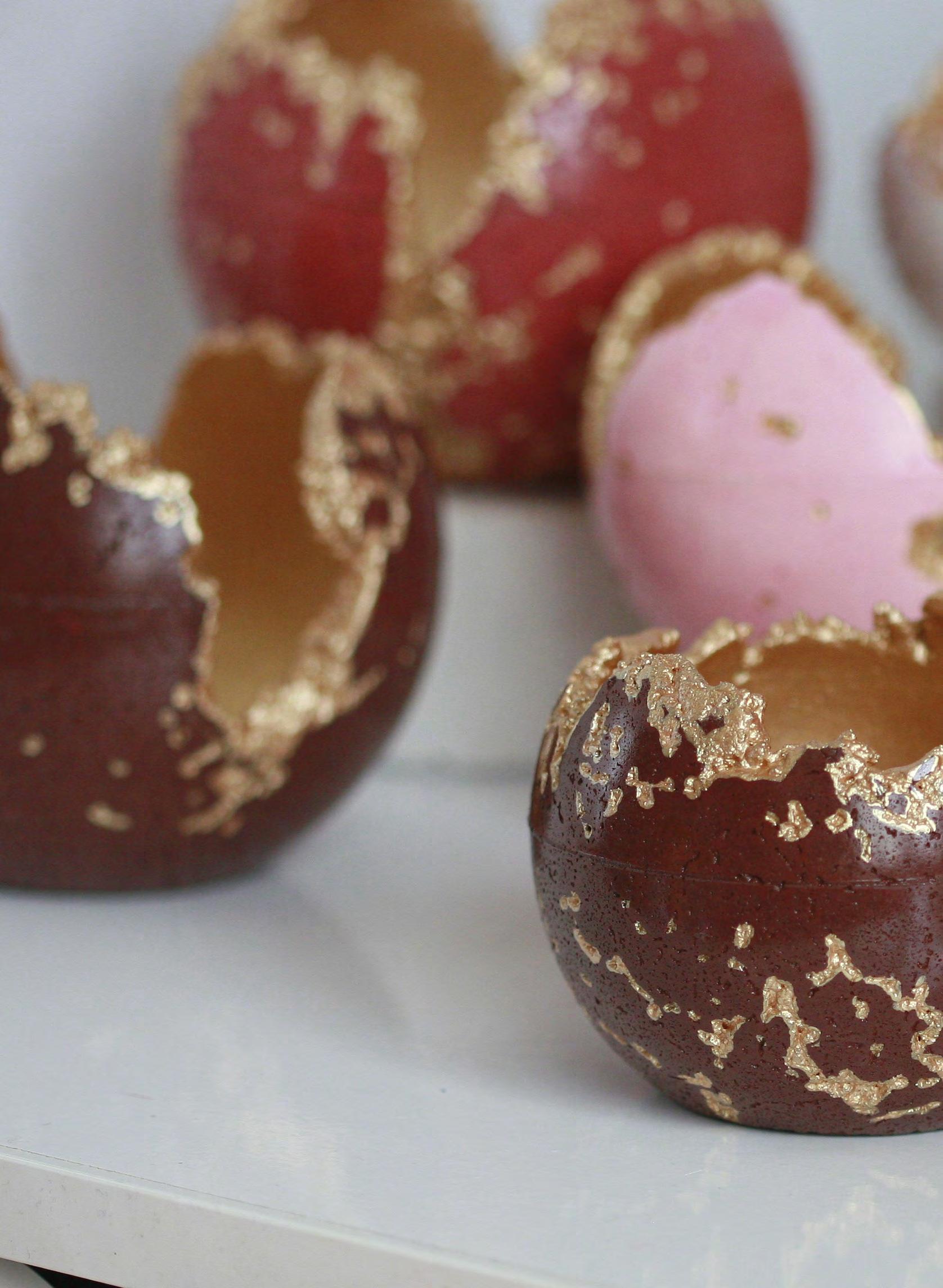
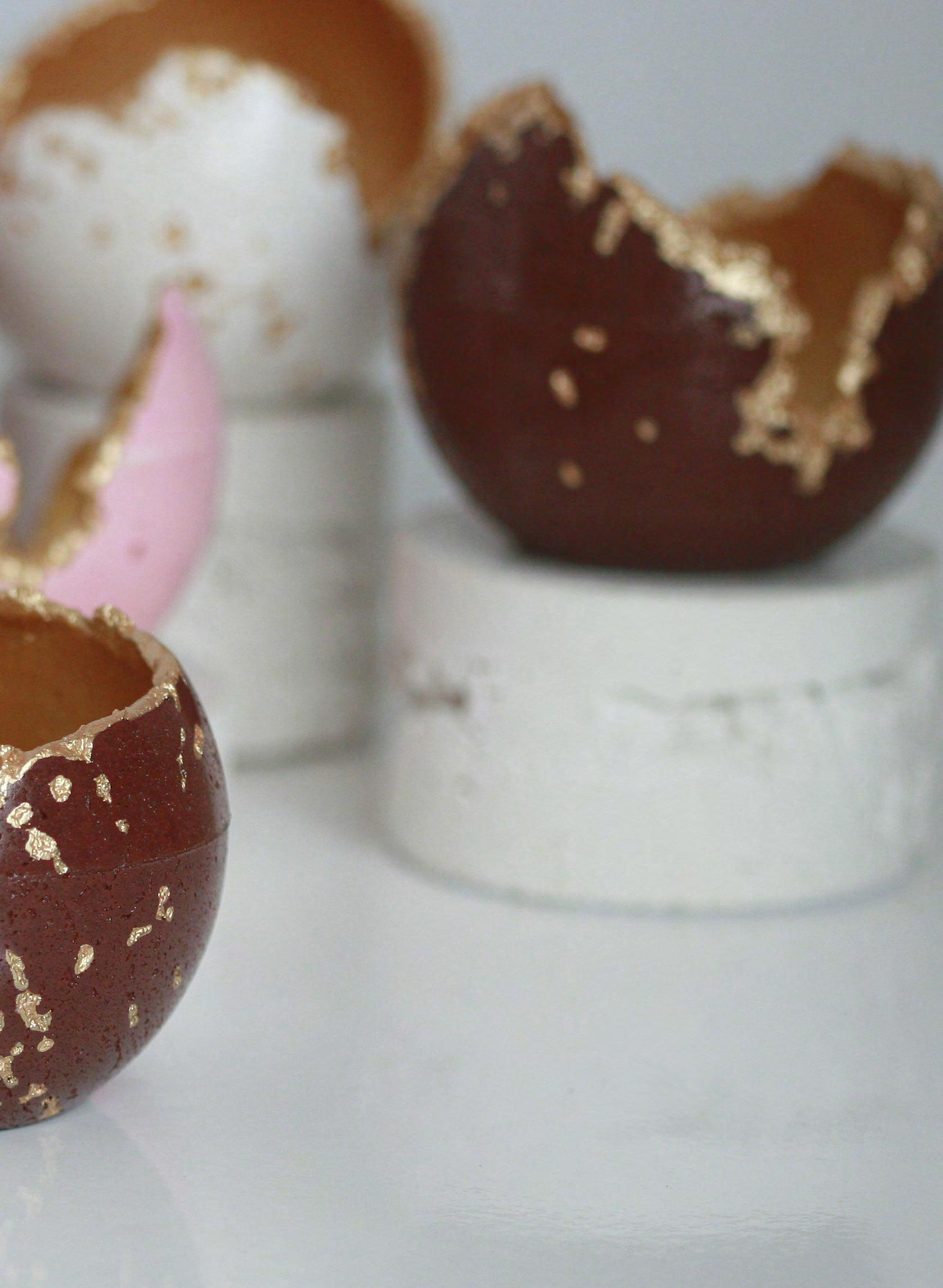
5.0 Financial Statements & Directors’ Report
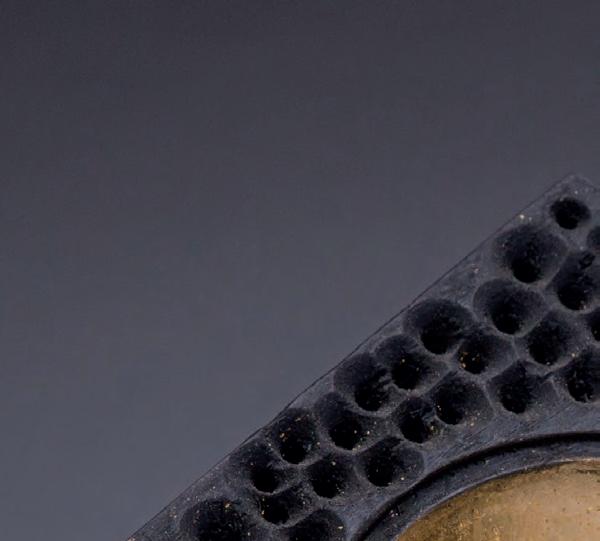
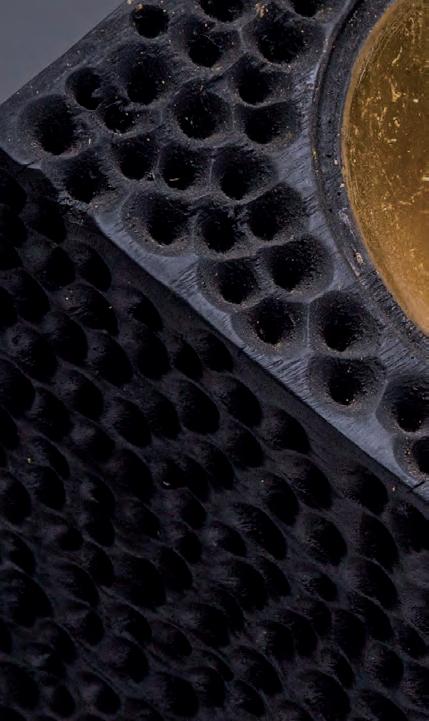
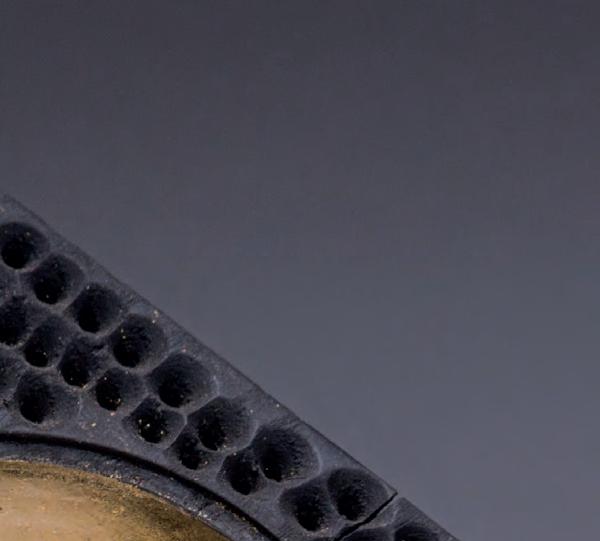

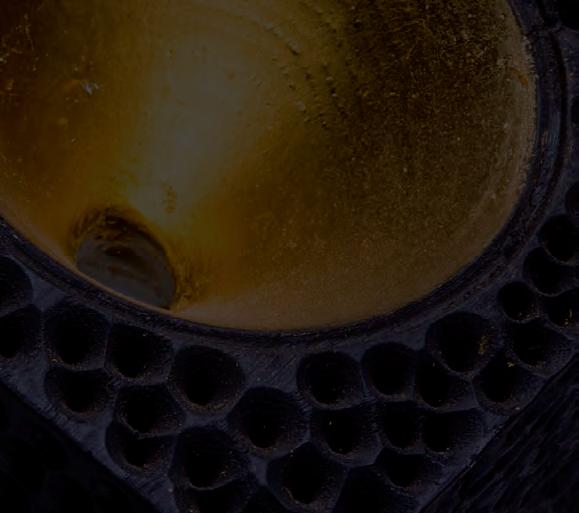

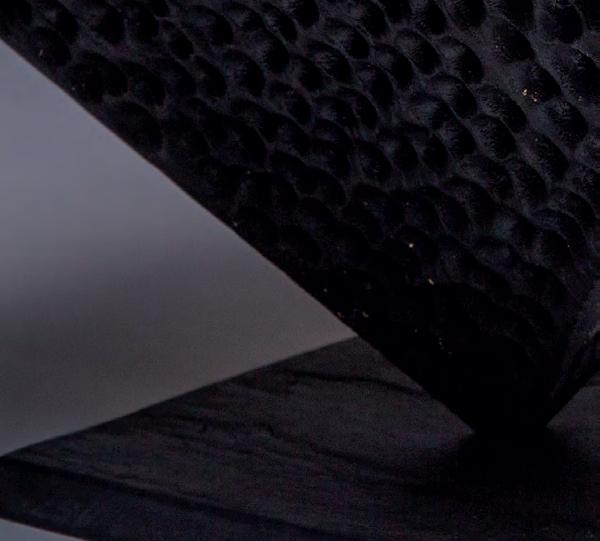
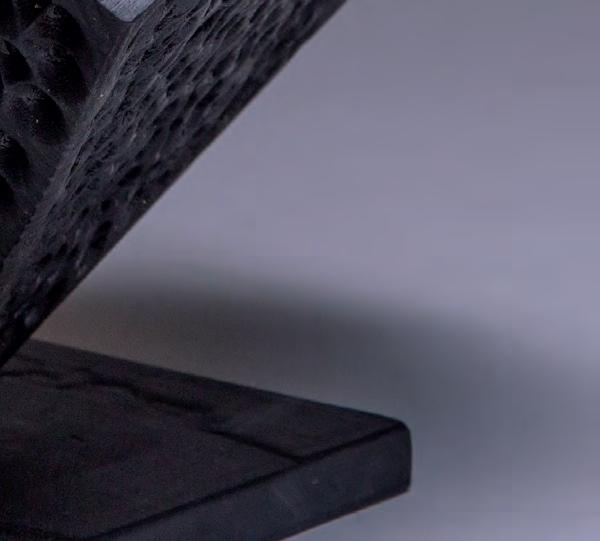
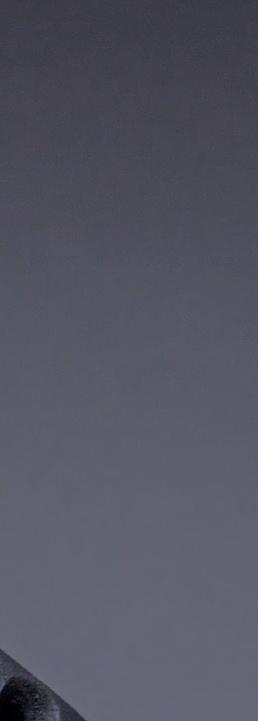
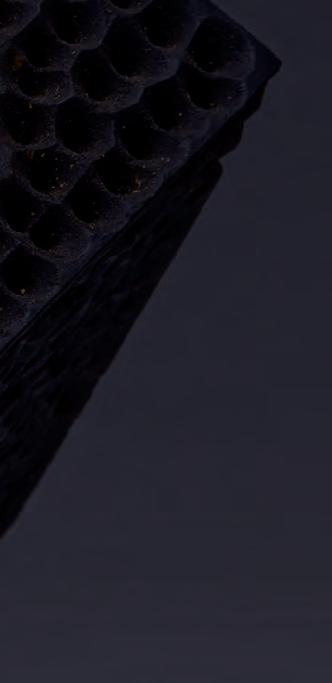


Directors
Peter Hynes (Chair)
Aoife Collins
Siobhan Riordan
Alan Meredith
Donal O’Neill
Alison Conneely
Company Secretary
Marian O’Sullivan
Registered number 56542
Independent Auditors
Crowe Ireland
Chartered Accountants and Statutory Audit Firm
40 Mespil Road
Dublin 4
D04 C2N4
Bankers
Allied Irish Banks plc
52 Baggot Street
Dublin 4
Solicitors
Beauchamps
Riverside Two
Sir John Rogerson’s Quay
Dublin 2
Anne Lanigan
Rhona Murphy
Caroline Reidy
Imelda Connolly
Cathy Burke
Jade Hogan
Registered Office Castle Yard, Kilkenny
For the year ended 31 December 2024
e Directors present their annual report and the audited nancial statements for the year ended 31 December 2024.
Directors’ Responsibilities Statement
e Directors are responsible for preparing the Directors’ Report and the nancial statements in accordance with Irish law and regulations. Irish company law requires the Directors to prepare the nancial statements for each nancial year. Under the law, the Directors have elected to prepare the nancial statements in accordance with the Companies Act 2014 and Financial Reporting Standard 102 ‘ e Financial Reporting Standard applicable in the UK and Republic of Ireland’.
Under company law, the Directors must not approve the nancial statements unless they are satis ed they give a true and fair view of the assets, liabilities and nancial position of the Company as at the nancial year end date, of the surplus or de cit for that nancial year and otherwise comply with the Companies Act 2014.
In preparing these nancial statements, the Directors are required to: select suitable accounting policies and then apply them consistently; make judgements and accounting estimates that are reasonable and prudent; state whether the nancial statements have been prepared in accordance with applicable accounting standards, identify those standards, and note the e ect and the reasons for any material departure from those standards; and prepare the nancial statements on the going concern basis unless it is inappropriate to presume that the Company will continue in business.
e Directors are responsible for ensuring that the Company keeps or causes to be kept adequate accounting records which correctly explain and record the transactions of the Company, enable at any time the assets, liabilities, nancial position and surplus or de cit of the Company to be determined with reasonable accuracy, enable them to ensure that the nancial statements and Directors’ Report comply with the Companies Act 2014 and enable the nancial statements to be audited. ey are also responsible for safeguarding the assets of the Company and hence for taking reasonable steps for the prevention and detection of fraud and other irregularities.
e Directors are responsible for the maintenance and integrity of the corporate and nancial information included on the Company’s website. Legislation in Republic of Ireland governing the preparation and dissemination of nancial statements may di er from legislation in other jurisdictions.
e Cra s Council of Ireland Company Limited by Guarantee (trading as Design and Cra s Council of Ireland), which is headquartered in Kilkenny, is the national agency for the commercial development of Irish designers and makers, stimulating innovation, championing design thinking and informing Government policy. e Cra s Council of Ireland Limited by Guarantee activities are funded by the Department of Enterprise, Trade and Employment via Enterprise Ireland.
For the year ended 31 December 2024
Business Review
e Directors are satis ed with the Company’s performance during the year. At the end of the year the Company has assets of €1,252,160 (2023: €1,388,978) and liabilities of €963,805 (2023: €1,099,349). e net assets of the company have decreased by €1,274 (2023: increased by €3,028) and the Directors are satis ed with the level of retained reserves at the year-end.
Results and Dividends
e de cit for the year, a er taxation, amounted to €21,821 (2023 – pro t €7,821).
e Directors do not recommend the declaration of a dividend.
Directors
e Directors who served during the year were:
Peter Hynes (Chair)
Aoife Collins (appointed 28 May 2024)
Siobhan Riordan (appointed 28 May 2024)
Alan Meredith (appointed 28 May 2024)
Donal O’Neill (appointed 28 May 2024)
Alison Conneely (appointed 28 May 2024) Anne Lanigan
Rhona Murphy Caroline Reidy Imelda Connolly Cathy Burke Jade Hogan
Niki Collier (resigned 28 May 2024)
Edel MacBride (resigned 28 May 2024)
Kim-Ling Morris (resigned 28 May 2024)
Berina Kelly (resigned 28 May 2024)
Accounting Records
e measures taken by the Directors to ensure compliance with the requirements of Sections 281 to 285 of the Companies Act 2014 with regard to the keeping of accounting records, are the employment of appropriately quali ed accounting personnel and the maintenance of computerised accounting systems. e Company’s accounting records are maintained at the Company’s registered o ce at Castle Yard, Kilkenny.
For the year ended 31 December 2024
e main activities of the Company remain unchanged with additional funding received in 2024 for Design and Educational activity. e Directors anticipate that any future developments would relate to these activities.
e Company has budgetary and nancial reporting procedures, supported by appropriate key performance indicators, to manage credit, liquidity and other nancial risk. All key nancial gures are monitored on an ongoing basis.
Each of the persons who are Directors at the time when this Directors’ Report is approved has con rmed that:
so far as the Director is aware, there is no relevant audit information of which the Company’s auditors are unaware, and the Director has taken all the steps that ought to have been taken as a Director in order to be aware of any relevant audit information and to establish that the Company’s auditors are aware of that information.
e auditors, Crowe Ireland, are eligible and have expressed a willingness to continue in o ce in accordance with section 383(2) of the Companies Act 2014. is report was approved by the Board and signed on its behalf.
Peter Hynes (Chair) Director
9th July 2025
Imelda Connolly Director 9th July 2025
to the Members of the Cra s Council of Ireland Company Limited by Guarantee T/A Design & Cra s Council of Ireland
We have audited the nancial statements of Cra s Council of Ireland Company Limited by Guarantee t/a Design and Cra s Council of Ireland (the ‘Company’) for the year ended 31 December 2024, which comprise the Income Statement, the Statement of Comprehensive Income, the Balance Sheet, the Statement of Cash Flows, the Statement of Changes in Equity and the notes to the nancial statements, including a summary of signi cant accounting policies set out in note 2. e nancial reporting framework that has been applied in their preparation is Irish law and Financial Reporting Standard 102 ‘ e Financial Reporting Standard applicable in the UK and Republic of Ireland’ issued in the United Kingdom by the Financial Reporting Council.
In our opinion, the nancial statements: give a true and fair view of the assets, liabilities and nancial position of the Company as at 31 December 2024 and of its surplus for the year then ended; have been properly prepared in accordance with Financial Reporting Standard 102 ‘ e Financial Reporting Standard applicable in the UK and Republic of Ireland’; and have been properly prepared in accordance with the requirements of the Companies Act 2014.
We conducted our audit in accordance with International Standards on Auditing (Ireland) (ISAs (Ireland)) and applicable law. Our responsibilities under those standards are further described in the Auditors’ responsibilities for the audit of the nancial statements section of our report. We are independent of the Company in accordance with the ethical requirements that are relevant to our audit of nancial statements in Ireland, including the Ethical Standard for Auditors (Ireland) issued by the Irish Auditing and Accounting Supervisory Authority (IAASA), and we have ful lled our other ethical responsibilities in accordance with these requirements.
We believe that the audit evidence we have obtained is su cient and appropriate to provide a basis for our opinion.
In auditing the nancial statements, we have concluded that the Directors’ use of the going concern basis of accounting in the preparation of the nancial statements is appropriate.
Based on the work we have performed, we have not identi ed any material uncertainties relating to events or conditions that, individually or collectively, may cast signi cant doubt on the Company’s ability to continue as a going concern for a period of at least twelve months from the date when the nancial statements are authorised for issue.
Our responsibilities and the responsibilities of the Directors with respect to going concern are described in the relevant sections of this report.
to the Members of the Cra s Council of Ireland Company Limited by Guarantee T/A Design & Cra s Council of Ireland (continued)
e Directors are responsible for the other information. e other information comprises the information included in the Annual Report, other than the nancial statements and our Auditors’ Report thereon. Our opinion on the nancial statements does not cover the other information and, except to the extent otherwise explicitly stated in our report, we do not express any form of assurance conclusion thereon.
Our responsibility is to read the other information and, in doing so, consider whether the other information is materially inconsistent with the nancial statements or our knowledge obtained in the audit, or otherwise appears to be materially misstated. If we identify such material inconsistencies or apparent material misstatements, we are required to determine whether there is a material misstatement in the nancial statements or a material misstatement of the other information. If, based on the work we have performed, we conclude that there is a material misstatement of this other information, we are required to report that fact.
We have nothing to report in this regard.
on the Other Matters Prescribed by the Companies Act 2014
In our opinion, based on the work undertaken in the course of the audit, we report that: the information given in the Directors’ Report for the nancial year for which the nancial statements are prepared is consistent with the nancial statements; and the Directors’ Report has been prepared in accordance with applicable legal requirements.
We have obtained all the information and explanations which, to the best of our knowledge and belief, are necessary for the purposes of our audit.
In our opinion the accounting records of the Company were su cient to permit the nancial statements to be readily and properly audited, and the nancial statements are in agreement with the accounting records.
Based on the knowledge and understanding of the Company and its environment obtained in the course of the audit, we have not identi ed any material misstatements in the Directors’ Report.
e Companies Act 2014 requires us to report to you if, in our opinion, the requirements of any of sections 305 to 312 of the Act, which relate to disclosures of directors’ remuneration and transactions are not complied with by the Company. We have nothing to report in this regard.
to the Members of the Cra s Council of Ireland Company Limited by Guarantee T/A Design & Cra s Council of Ireland (continued)
Responsibilities
As explained more fully in the Directors’ Responsibilities Statement on page 95, the Directors are responsible for the preparation of the nancial statements in accordance with the applicable nancial reporting framework that give a true and fair view, and for such internal control as the Directors determine is necessary to enable the preparation of nancial statements that are free from material misstatement, whether due to fraud or error.
In preparing the nancial statements, the Directors are responsible for assessing the Company’s ability to continue as a going concern, disclosing, as applicable, matters related to going concern and using the going concern basis of accounting unless the management either intends to liquidate the Company or to cease operations, or has no realistic alternative but to do so.
Our objectives are to obtain reasonable assurance about whether the nancial statements as a whole are free from material misstatement, whether due to fraud or error, and to issue an Auditors’ Report that includes our opinion. Reasonable assurance is a high level of assurance, but is not a guarantee that an audit conducted in accordance with ISAs (Ireland) will always detect a material misstatement when it exists. Misstatements can arise from fraud or error and are considered material if, individually or in the aggregate, they could reasonably be expected to in uence the economic decisions of users taken on the basis of these nancial statements.
A further description of our responsibilities for the audit of the nancial statements is located on the IAASA’s website at: https://iaasa.ie/publications/description-of-the-auditors-responsibilities-forthe-audit-of-the- nancial- statements/. is description forms part of our Auditors’ Report.
The Purpose of Our Audit Work and to Whom We Owe Our Responsibilities is report is made solely to the Company’s members, as a body, in accordance with Section 391 of the Companies Act 2014. Our audit work has been undertaken so that we might state to the Company’s members those matters we are required to state to them in an Auditors’ Report and for no other purpose. To the fullest extent permitted by law, we do not accept or assume responsibility to anyone other than the Company and the Company’s members, as a body, for our audit work, for this report, or for the opinions we have formed.
Signed by: George Kennington
for and on behalf of:
Crowe Ireland
Chartered Accountants and Statutory Audit Firm 40 Mespil Road, Dublin 4, D04 C2N4
9th July 2025
For the year ended 31 December 2024
ere are no items of other comprehensive income for 2024 or 2023 other than the (loss)/pro t for the year.
For the year ended 31 December 2024
e notes on pages 107–117form part of these nancial statements.
as at 31 December 2024
e nancial statements were approved and authorised for issue by the Board:
Peter Hynes (Chair)
Imelda Connolly Director Director
9th July 2025 9th July 2025
e notes on pages 107–117form part of these nancial statements.
For the year ended 31 December 2024
e notes on pages 107–117form part of these nancial statements.
For the year ended 31 December 2024
For the year ended 31 December 2024
1. General Information
e Cra s Council of Ireland Company Limited by Guarantee (“CLG”), which is headquartered in Kilkenny, is the national agency for the commercial development of Irish designers and makers, stimulating innovation, championing design thinking and informing Government policy. e Cra s Council of Ireland CLG activities are predominantly funded by the Department of Enterprise, Trade and Employment via Enterprise Ireland. e company registration number is 56542 and its registered o ce is Castle Yard, Kilkenny.
e Company is a company limited by guarantee incorporated and domiciled in Ireland. e Company is tax resident in Ireland.
2. Accounting Policies
2.1 Basis of Preparation of Financial Statements
e nancial statements have been prepared in accordance with Financial Reporting Standard 102, the Financial Reporting Standard applicable in the UK and the Republic of Ireland and Irish statute comprising of the Companies Act 2014.
e preparation of nancial statements in compliance with FRS 102 requires the use of certain critical accounting estimates. It also requires management to exercise judgment in applying the Company’s accounting policies (see note 3).
2.2 Foreign Currency Translation
Functional and presentation currency
e Company’s functional and presentational currency is Euros.
Transactions and balances
Foreign currency transactions are translated into the functional currency using the spot exchange rates at the dates of the transactions.
At each period end foreign currency monetary items are translated using the closing rate. Nonmonetary items measured at historical cost are translated using the exchange rate at the date of the transaction and non-monetary items measured at fair value are measured using the exchange rate when fair value was determined.
Foreign exchange gains and losses resulting from the settlement of transactions and from the translation at period-end exchange rates of monetary assets and liabilities denominated in foreign currencies are recognised in the Income Statement except when deferred in other comprehensive income as qualifying cash ow hedges.
2.3 Revenue
e income shown in the income and expenditure account represents amounts invoiced during the period and grants received during the year.
2.4 Operating Leases: The Company as Lessee Rentals paid under operating leases are charged to the Income Statement on a straight-line basis over the lease term.
Bene ts received and receivable as an incentive to sign an operating lease are recognised on a straightline basis over the lease term unless another systematic basis is representative of the time pattern of the lessee’s bene t from the use of the leased asset.
For the year ended 31 December 2024
Accounting Policies (continued)
2.5 Government Grants
Grants are accounted under the accruals model as permitted by FRS 102. Grants relating to expenditure on tangible xed assets are credited to the Income Statement at the same rate as the depreciation on the assets to which the grant relates. e deferred element of grants is included in creditors as deferred income.
Grants of a revenue nature are recognised in the Income Statement in the same period as the related expenditure.
2.6 Interest Income
Interest income is recognised in the Income Statement using the e ective interest method.
2.7 Pensions
De ned contribution pension plan
e Company operates a de ned contribution plan for its employees. A de ned contribution plan is a pension plan under which the Company pays xed contributions into a separate entity. Once the contributions have been paid, the Company has no further payment obligations.
e contributions are recognised as an expense in the Income Statement when they fall due. Amounts not paid are shown in accruals as a liability in the Balance Sheet. e assets of the plan are held separately from the Company in independently administered funds.
e Company operates a de ned contribution PRSA scheme for certain employees. e Company operates two contributory, unfunded de ned bene t schemes which are now closed to new members. Details are set out in note 15 of the nancial statements.
2.8
Tax is recognised in the Income Statement except that a charge attributable to an item of income and expense recognised as other comprehensive income or to an item recognised directly in equity is also recognised in other comprehensive income or directly in equity respectively.
e current income tax charge is calculated on the basis of tax rates and laws that have been enacted or substantively enacted by the balance sheet date in the countries where the Company operates and generates income.
2.9
Tangible xed assets under the cost model are stated at historical cost less accumulated depreciation and any accumulated impairment losses. Historical cost includes expenditure that is directly attributable to bringing the asset to the location and condition necessary for it to be capable of operating in the manner intended by management.
e Company adds to the carrying amount of an item of xed assets the cost of replacing part of such an item when that cost is incurred, if the replacement part is expected to provide incremental future bene ts to the Company. e carrying amount of the replaced part is derecognised. Repairs and maintenance are charged to the Income Statement during the period in which they are incurred.
Depreciation is charged so as to allocate the cost of assets less their residual value over their estimated useful lives, using the straight-line method.
For the year ended 31 December 2024
Depreciation is provided on the following basis:
Long term leasehold property — 15 years
Workshop equipment — 20 years
O ce equipment
— 3 years
Computer equipment — 5 years
Other xed assets — 5 years
e assets’ residual values, useful lives and depreciation methods are reviewed, and adjusted prospectively if appropriate, or if there is an indication of a signi cant change since the last reporting date.
Gains and losses on disposals are determined by comparing the proceeds with the carrying amount and are recognised in the Income Statement.
2.10 Valuation of Investments
Investments in subsidiaries are measured at cost less accumulated impairment. Where merger relief is applicable, the cost of the investment in a subsidiary undertaking is measured at the nominal value of the shares issued together with the fair value of any additional consideration paid.
Investments in unlisted company shares, whose market value can be reliably determined, are remeasured to market value at each balance sheet date. Gains and losses on remeasurement are recognised in the Income Statement for the period. Where market value cannot be reliably determined, such investments are stated at historic cost less impairment.
Investments in listed company shares are remeasured to market value at each balance sheet date. Gains and losses on remeasurement are recognised in the Income Statement for the period.
2.11 Debtors
Short-term debtors are measured at transaction price, less any impairment. Loans receivable are measured initially at fair value, net of transaction costs, and are measured subsequently at amortised cost using the e ective interest method, less any impairment.
2.12 Cash and Cash Equivalents
Cash is represented by cash in hand and deposits with nancial institutions repayable without penalty on notice of not more than 24 hours. Cash equivalents are highly liquid investments that mature in no more than three months from the date of acquisition and that are readily convertible to known amounts of cash with insigni cant risk of change in value.
In the Statement of Cash Flows, cash and cash equivalents are shown net of bank overdra s that are repayable on demand and form an integral part of the Company’s cash management.
2.13 Creditors
Short-term creditors are measured at the transaction price. Other nancial liabilities, including bank loans, are measured initially at fair value, net of transaction costs, and are measured subsequently at amortised cost using the e ective interest method.
2.14 Financial Instruments
e Company has elected to apply the provisions of Section 11 “Basic Financial Instruments” of FRS 102 to all of its nancial instruments.
Financial instruments are recognised in the Company’s Balance Sheet when the Company becomes party to the contractual provisions of the instrument.
For the year ended 31 December 2024
Accounting Policies (continued)
Financial assets and liabilities are o set, with the net amounts presented in the nancial statements, when there is a legally enforceable right to set o the recognised amounts and there is an intention to settle on a net basis or to realise the asset and settle the liability simultaneously.
Basic nancial assets
Basic nancial assets, which include trade and other receivables, cash and bank balances, are initially measured at their transaction price including transaction costs and are subsequently carried at their amortised cost using the e ective interest method, less any provision for impairment, unless the arrangement constitutes a nancing transaction, where the transaction is measured at the present value of the future receipts discounted at a market rate of interest.
Discounting is omitted where the e ect of discounting is immaterial. e Company’s cash and cash equivalents, trade and most other receivables due with the operating cycle fall into this category of nancial instruments.
Other nancial assets
Other nancial assets, which includes investments in equity instruments which are not classi ed as subsidiaries, associates or joint ventures, are initially measured at fair value, which is normally the recognised transaction price. Such assets are subsequently measured at fair value with the changes in fair value being recognised in the pro t or loss. Where other nancial assets are not publicly traded, hence their fair value cannot be measured reliably, they are measured at cost less impairment.
At the end of each reporting period nancial assets measured at amortised cost are assessed for objective evidence of impairment. If an asset is impaired the impairment loss is the di erence between the carrying amount and the present value of the estimated cash ows discounted at the asset’s original e ective interest rate. e impairment loss is recognised in pro t or loss.
Financial assets are impaired when events, subsequent to their initial recognition, indicate the estimated future cash ows derived from the nancial asset(s) have been adversely impacted. e impairment loss will be the di erence between the current carrying amount and the present value of the future cash ows at the asset(s) original e ective interest rate.
If there is a favourable change in relation to the events surrounding the impairment loss then the impairment can be reviewed for possible reversal. e reversal will not cause the current carrying amount to exceed the original carrying amount had the impairment not been recognised. e impairment reversal is recognised in the pro t or loss.
Financial liabilities and equity instruments are classi ed according to the substance of the contractual arrangements entered into. An equity instruments any contract that evidences a residual interest in the assets of the Company a er the deduction of all its liabilities.
Basic nancial liabilities, which include trade and other payables, bank loans and other loans are initially measured at their transaction price a er transaction costs. When this constitutes a nancing transaction, whereby the debt instrument is measured at the present value of the future receipts discounted at a market rate of interest. Discounting is omitted where the e ect of discounting is immaterial.
Debt instruments are subsequently carried at their amortised cost using the e ective interest rate method.
For the year ended 31 December 2024
Trade creditors are obligations to pay for goods and services that have been acquired in the ordinary course of business from suppliers. Trade creditors are classi ed as current liabilities if the payment is due within one year. If not, they represent non-current liabilities. Trade creditors are initially recognised at their transaction price and subsequently are measured at amortised cost using the e ective interest method. Discounting is omitted where the e ect of discounting is immaterial.
Other nancial instruments
Derivatives, including forward exchange contracts, futures contracts and interest rate swaps, are not classi ed as basic nancial instruments. ese are initially recognised at fair value on the date the derivative contract is entered into, with costs being charged to the pro t or loss. ey are subsequently measured at fair value with changes in the pro t or loss.
Debt instruments that do not meet the conditions as set out in FRS 102 paragraph 11.9 are subsequently measured at fair value through the pro t or loss. is recognition and measurement would also apply to nancial instruments where the performance is evaluated on a fair value basis as with a documented risk management or investment strategy.
Derecognition of financial instruments
Derecognition of nancial assets
Financial assets are derecognised when their contractual right to future cash ow expire, or are settled, or when the Company transfers the asset and substantially all the risks and rewards of ownership to another party. If signi cant risks and rewards of ownership are retained a er the transfer to another party, then the Company will continue to recognise the value of the portion of the risks and rewards retained.
Derecognition of nancial liabilities
Financial liabilities are derecognised when the Company’s contractual obligations expire or are discharged or cancelled.
3. Judgements in Applying Accounting Policies and Key Sources of Estimation Uncertainty e preparation of these nancial statements requires management to make judgements, estimates and assumptions that a ect the application of policies and reported amounts of assets and liabilities, income and expenses.
Judgements and estimates are continually evaluated and are based on historical experiences and other factors, including expectations of future events that are believed to be reasonable under the circumstances.
e Company makes estimates and assumptions concerning the future. e resulting accounting estimates, will by de nition, seldom equal the related actual results. e estimates and assumptions that have a signi cant risk of causing a material adjustment to the carrying amounts of the assets and liabilities within the next nancial year are discussed below.
(a) Establishing lives for depreciation purposes of property, plant and equipment
Long-lived assets, consisting primarily of property, plant and equipment, comprise a signi cant portion of the total assets. e annual depreciation charge depends primarily on the estimated lives of each type of assets and estimates of residual values. e Directors regularly review these asset lives and change them as necessary to re ect current thinking on remaining lives in light of prospective economic utilisation and physical condition of the assets concerned. Changes in asset lives can have a signi cant impact on depreciation and amortisation charges for the period. Detail of the useful lives is included in the accounting policies.
For the year ended 31 December 2024
4. Income An analysis of income by class of business is as follows: Enterprise Ireland
5. Surplus on Ordinary Activities Before Taxation e operating surplus is stated a er charging:
6. Employees
Capitalised employee costs during the year amounted to €NIL (2023 – €NIL). e average monthly number of employees, including the Directors, during the year was as follows:
were 11 Directors in 2024 (2023: 10).
For the year ended 31 December 2024
7. Directors’ Remuneration
Key Management Remuneration
Key management personnel include the directors and the senior management team for whom the total remuneration cost was €595,266 (2023: €563,995).
For the year ended 31 December 2024
Subsidiary Undertakings
e following were subsidiary undertakings of the Company:
Subsidiary undertaking:
Design and Cra s Fair Company Limited by Guarantee
Cra s Council of Ireland is the sole contributor to Showcase Design and Cra s Fair Company Limited by Guarantee.
e aggregate of the share capital and reserves as at 30 April 2024 and the pro t or loss for the year ended on that date for the subsidiary undertakings were as follows:
Subsidiary undertaking:
Cra
For the year ended 31 December 2024
assets measured at fair value through income and expenditure account comprise cash at bank and in hand.
Financial assets measured at amortised cost comprise trade debtors, amounts owed by joint ventures amounts owed by group undertakings and other debtors.
Financial liabilities measured at amortised cost comprise trade creditors.
For the year ended 31 December 2024
e company is limited by guarantee and consequently does not have share capital.
On 15 December 1986 the then Minister for Industry and Commerce established the Cra s Council of Ireland Sta Superannuation Scheme 1986 and on 11 April 1990 the then Minister for Industry and Commerce established the Cra s Council of Ireland Limited Spouses and Children’s Contributory Pension Scheme 1990. ese schemes are administered by the Cra s Council of Ireland Company Limited by Guarantee on behalf of the Minister.
ese two pension schemes are now closed to new members. ese two schemes are contributory unfunded de ned bene t schemes. Contributions deducted from sta over the years are used to fund ongoing pension liabilities.
e Directors believe that the State has a responsibility to the Company and the members of the scheme to meet the obligations of the Scheme as they arise.
e Directors believe that the Company has an asset of an equal amount to any unfunded deferred liability for pensions on the basis of the assumptions detailed below and a number of past events. ese events include the statutory basis for the establishment of the superannuation schemes and the policy and practice currently in place in relation to funding public service pensions including contributions by employees to the annual estimates process. e company has no evidence that this funding policy will not continue to meet such sums in accordance with current practice.
Based on the above the Company has accounted for the contributions as if it were a de ned contribution scheme.
Details of the pensions deducted from employees, employer contributions and the bene ts paid to former employees during the year are as follows:
Costs of pension contributions recoverable from the state at year end total €167,708 (2023: €124,357).
In addition to the above the Company operates de ned contribution pension schemes (PRSA) in respect of employees not eligible to enter the above scheme. e assets of the PRSA schemes are held separately from those of the company in independently administered funds. e pension costs represent contributions payable by the company to the fund and amounted to €11,167 (2023: €15,969).
16. Deferred Tax Asset
ere is a potential tax asset of €30,533 (2023: €27,788) arising from trading losses. ese losses are o setable against potential future taxable trading surpluses.
For the year ended 31 December 2024
17. Commitments Under Operating Leases
At 31 December 2024 the Company had future minimum lease payments due under non-cancellable operating leases for each of the following periods:
18. Related Party Transactions
At the beginning of the year Showcase Design and Cra s Fair Company Limited by Guarantee owed €187,793 to Cra s Council of Ireland. DCCI provided subsidies of €48,800 and made sales of €2,016 to Showcase. A balance of €200,000 was owed to the Company at the Balance Sheet date.
From time to time, Directors of Cra s Council of Ireland Limited may be involved in other membership organisations that may have transactions with Cra s Council of Ireland Limited with no bene t accruing to the Directors.
19. Post Balance Sheet Events
ere have been no signi cant events a ecting the Company since the year end.
20. Approval of Financial Statements
e Board of Directors approved these nancial statements for issue on 9th July 2025.
Design
Atelier TypoGraphic Design (atelier.ie)
Cover Image
Designer Linda Wilson from Limerick stands among her colourful knitwear on the last day of Showcase 2024 at the RDS. Photographer: Leon Farrell, Photocall Ireland
Image Credits
Leon Farrell, Photocall Ireland
Sasko Lazarov, Photocall Ireland
Finbarr O’Rourke Photography
Peter Varga, Humans of Dublin Photography
Karen Cox Photography
Andres Poveda Photography
Claire Dunne Photography
Daniel Lewis Photographer Limited
Dillon Photography Limited
Dylan Vaughan
Eimear Lynch
Karen Cox Photography
Marc O’Sullivan Photography
Design & Crafts Council Ireland
Castle Yard, Kilkenny, R95 CAA6, Ireland
T. +353 ( 0 ) 56 776 1804
dcci.ie

















Design & Crafts Council Ireland
Castle Yard
Kilkenny, R95 CAA6
Ireland
T. +353 ( 0 ) 56 776 1804
